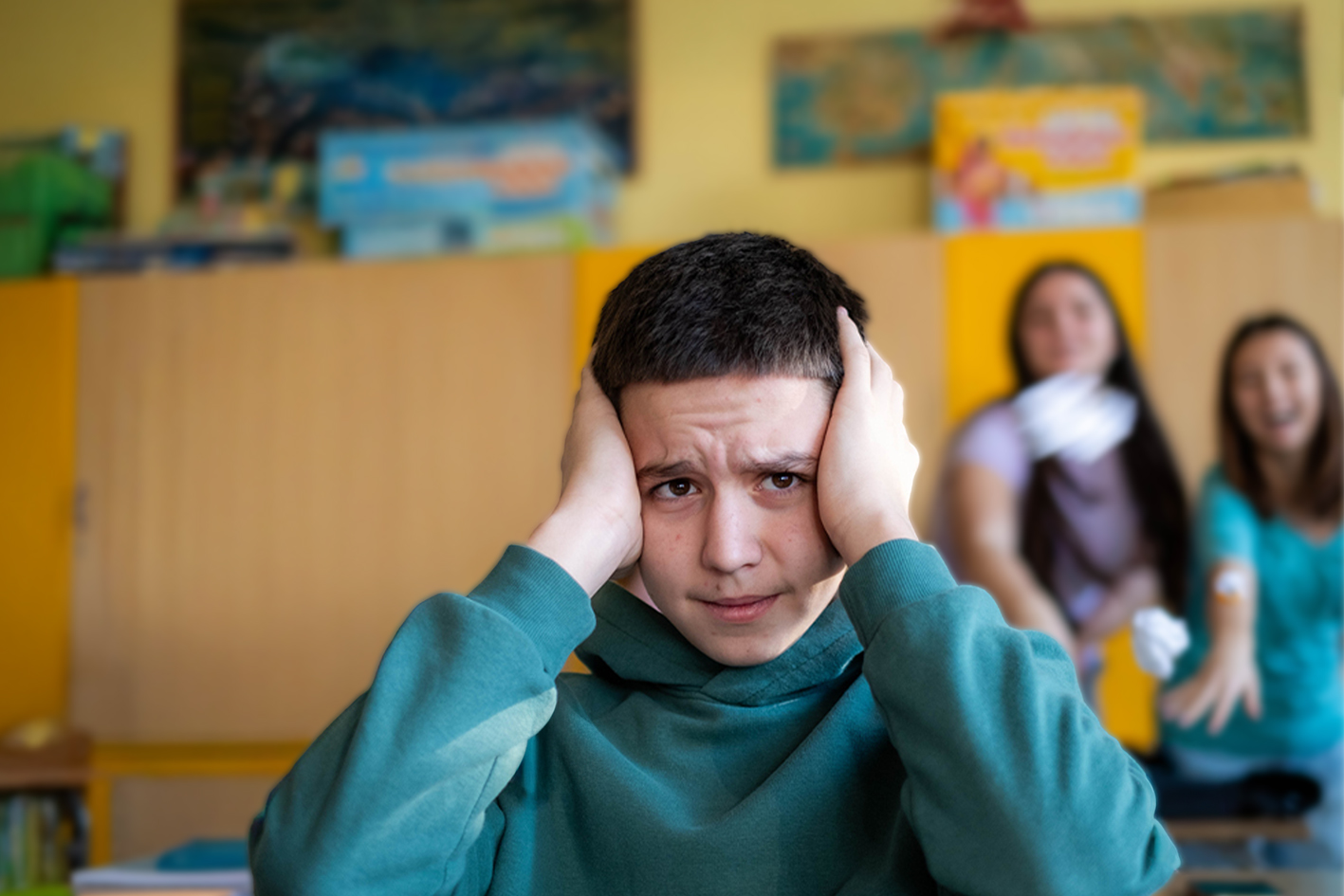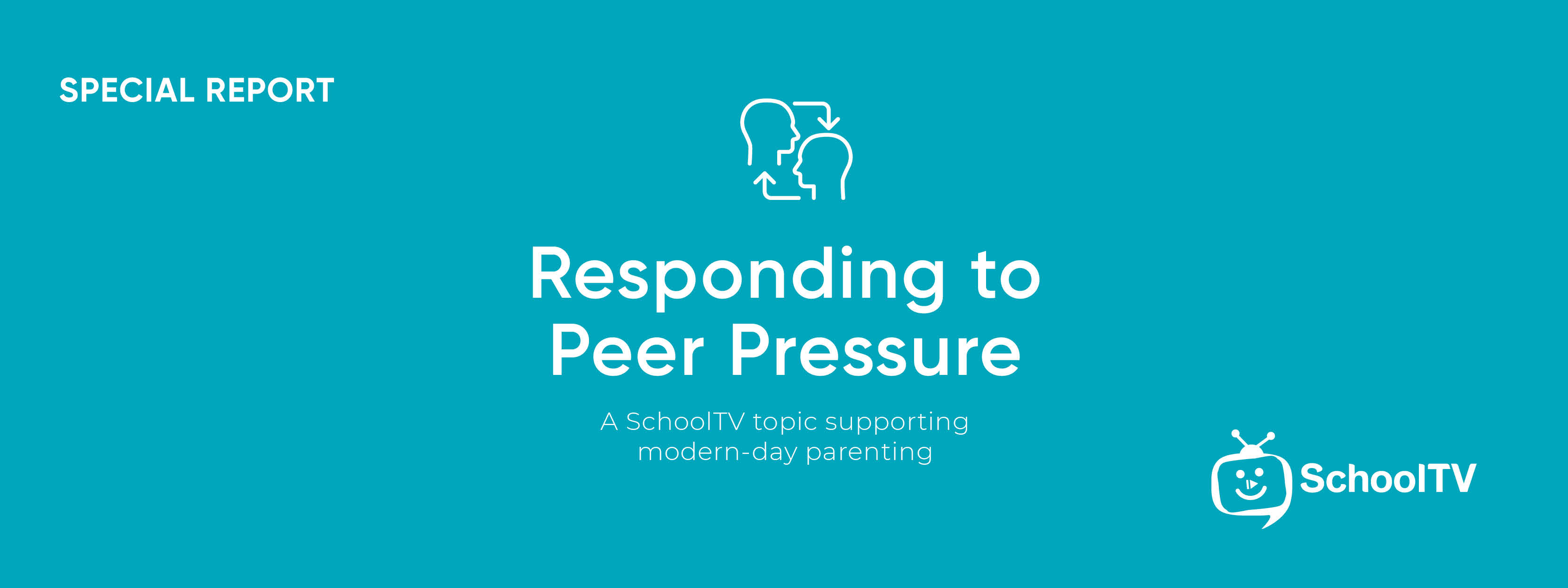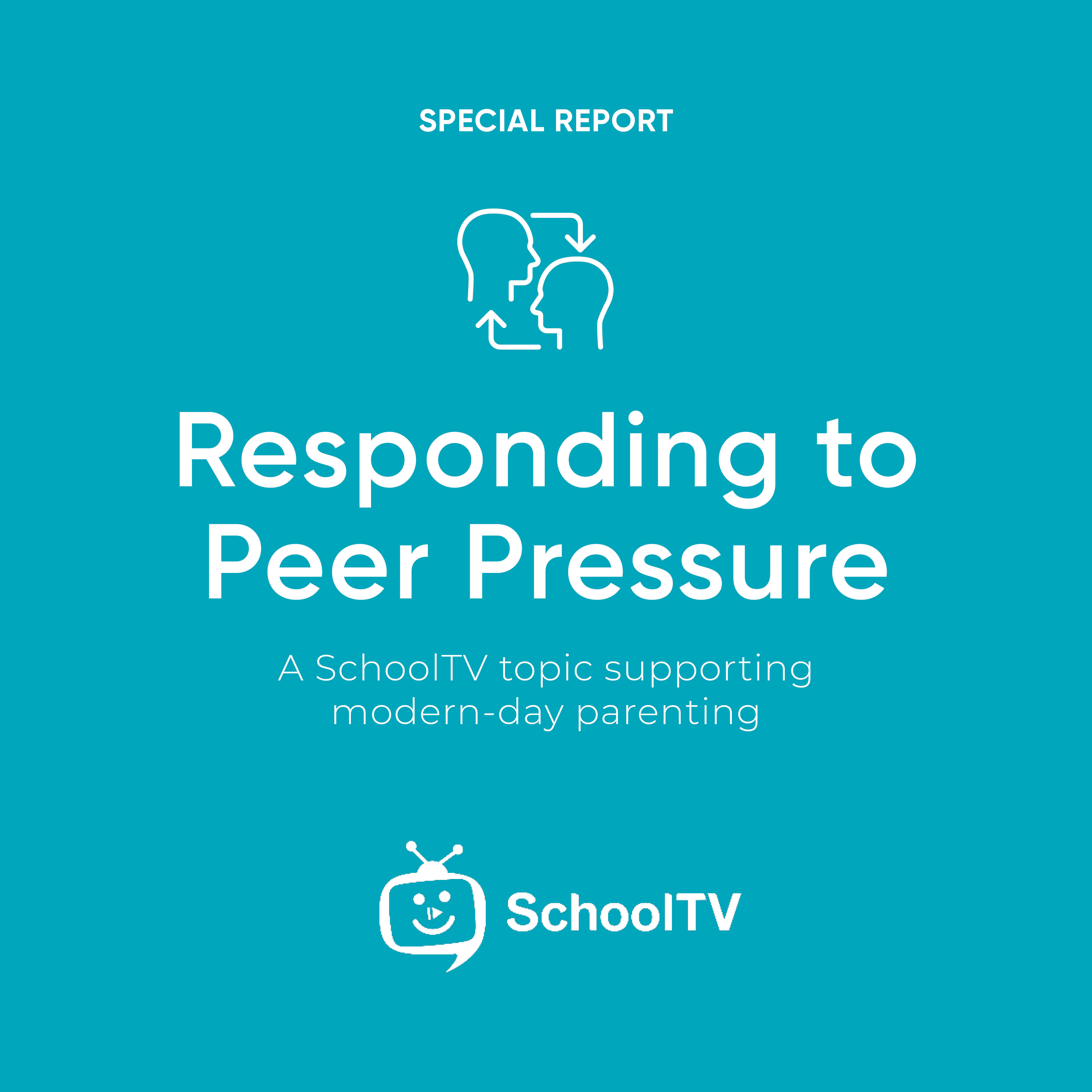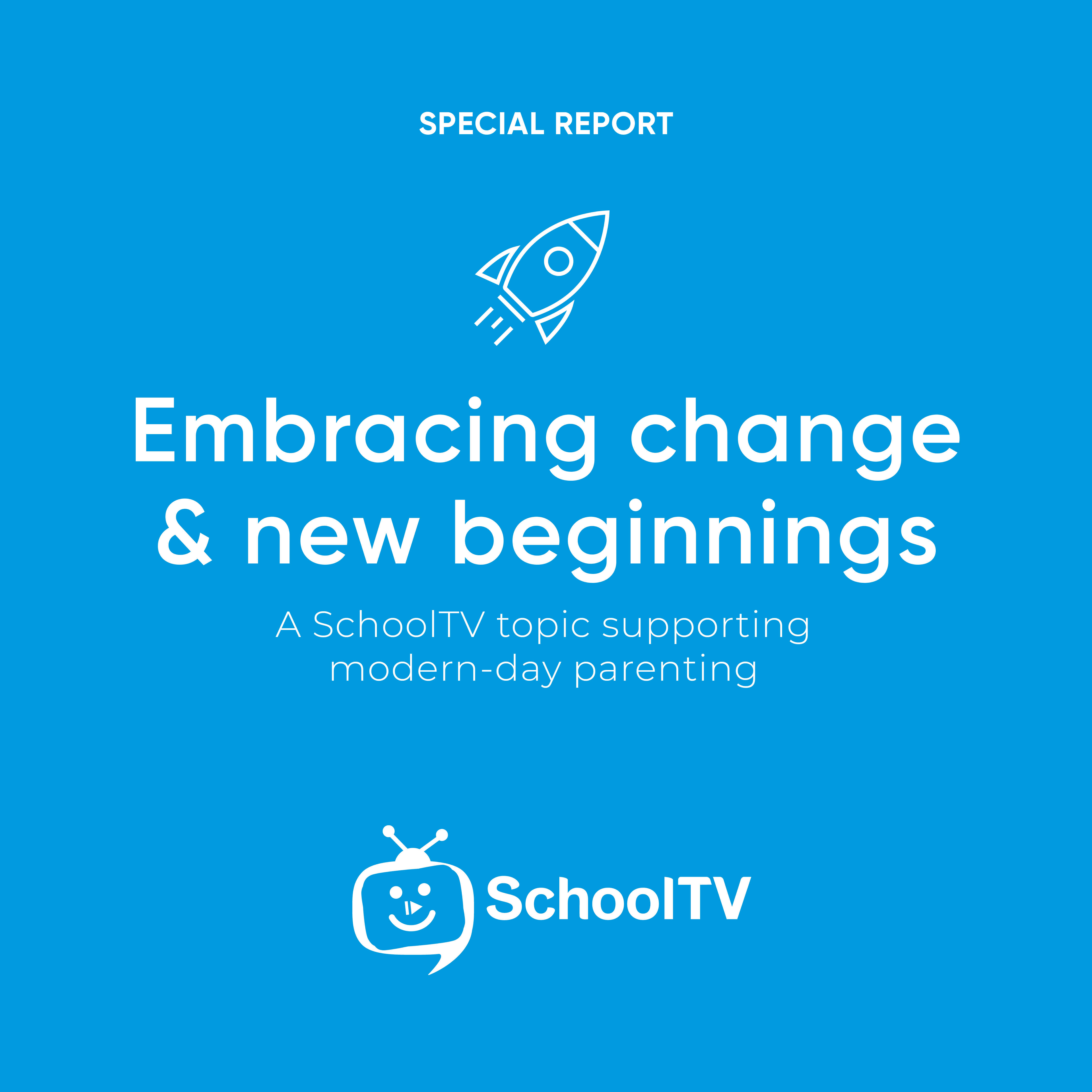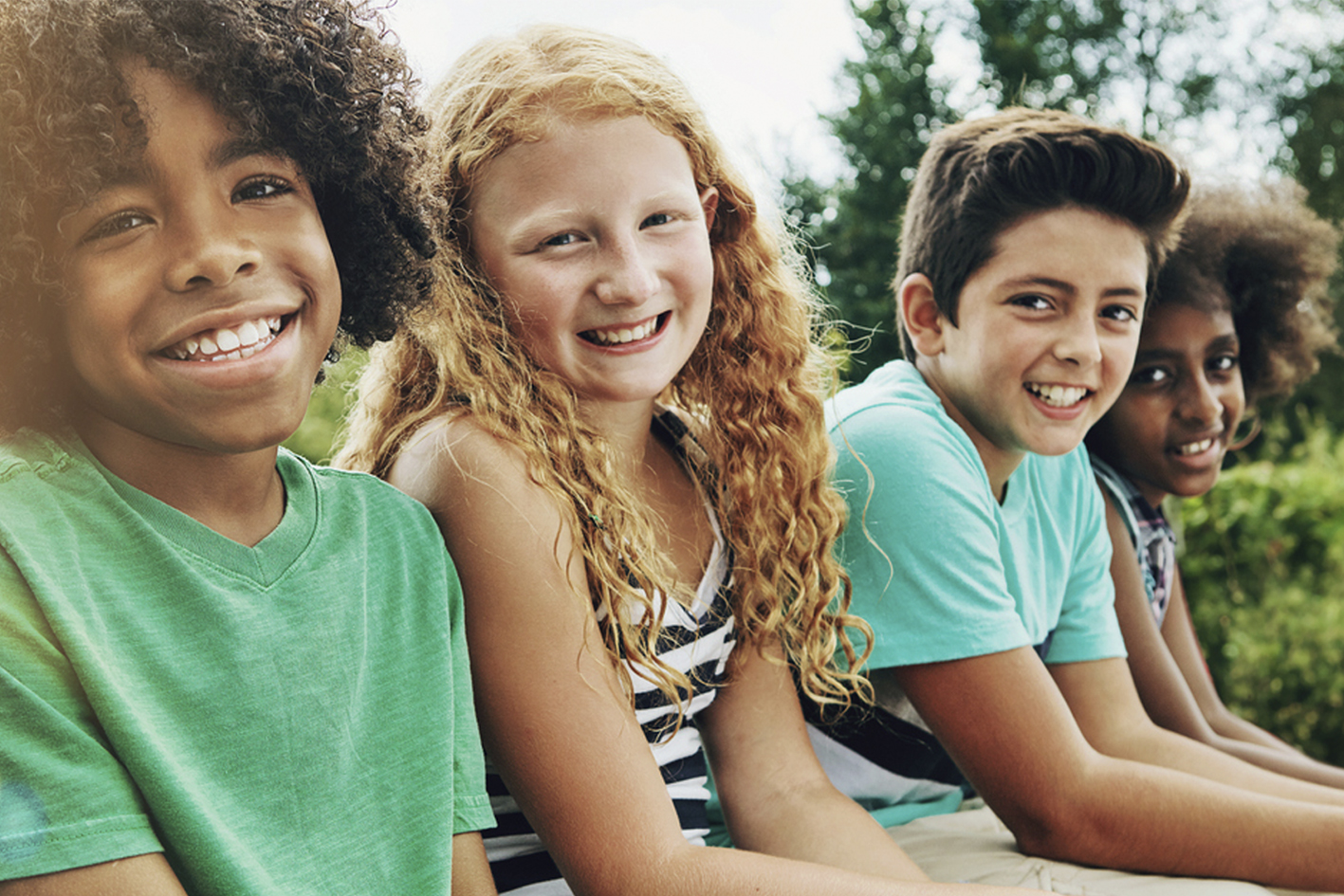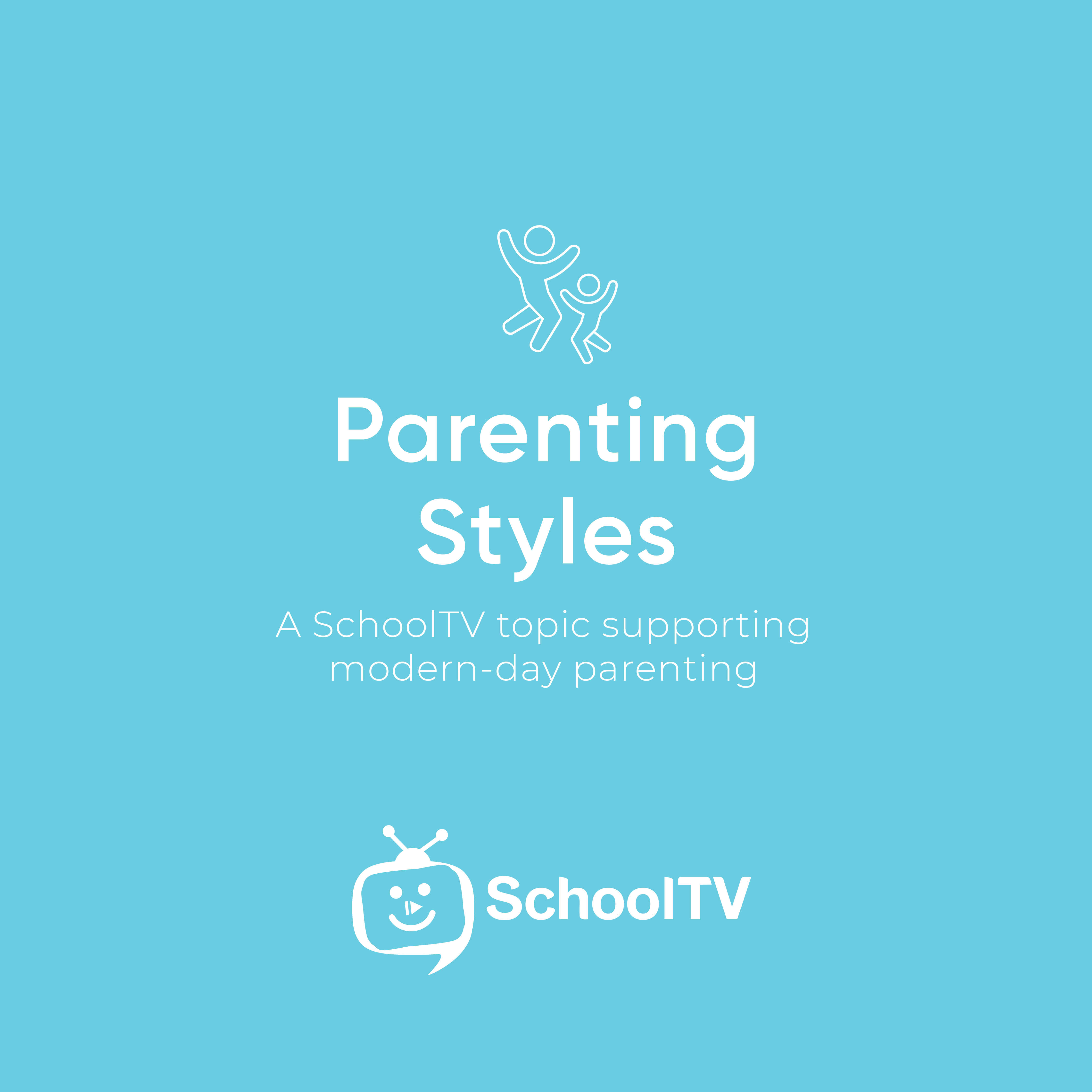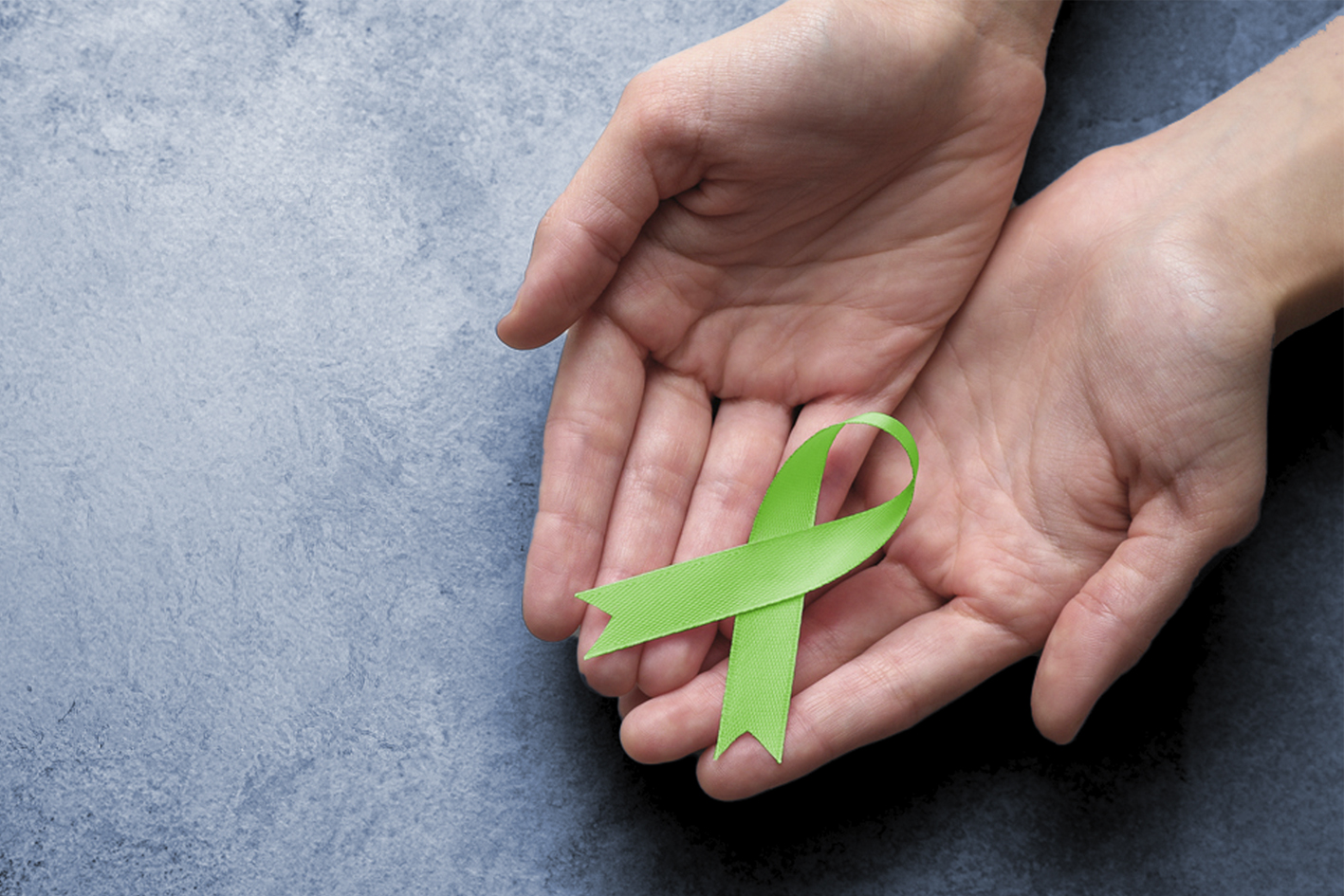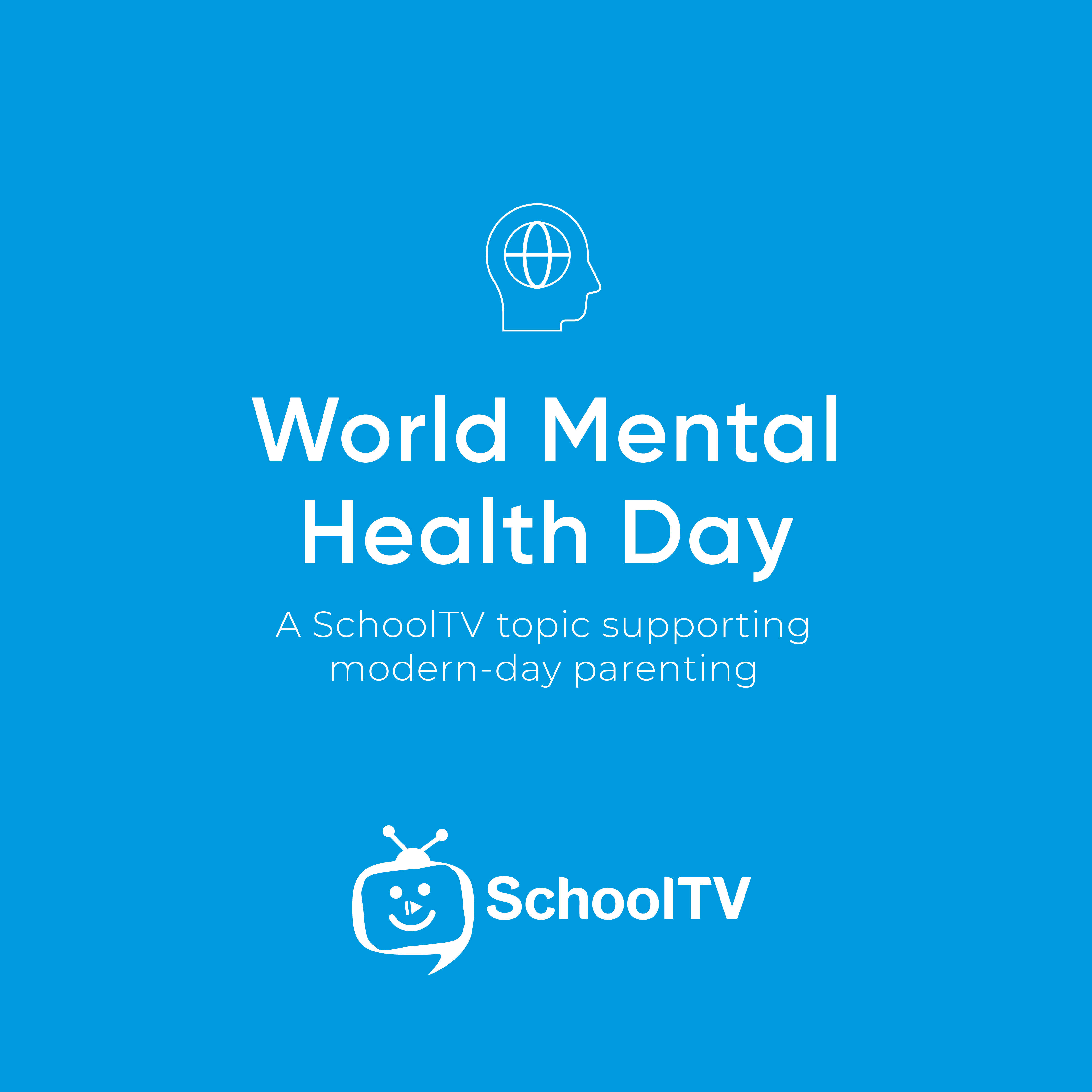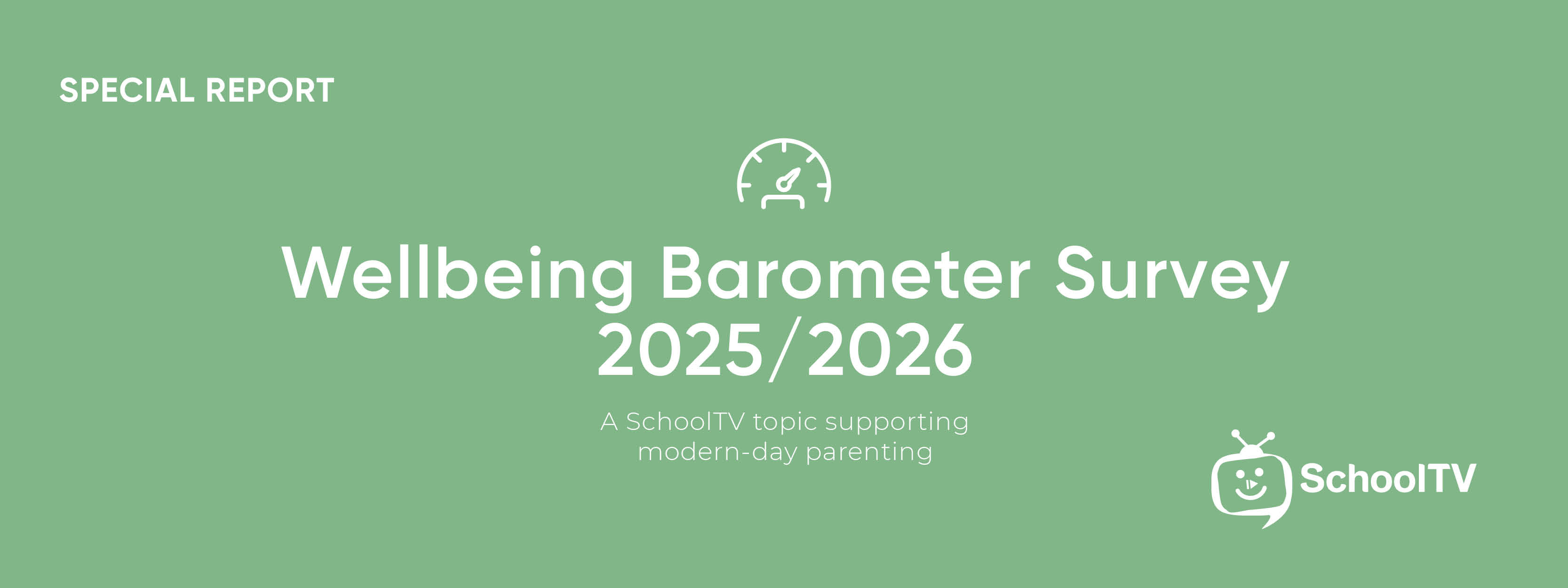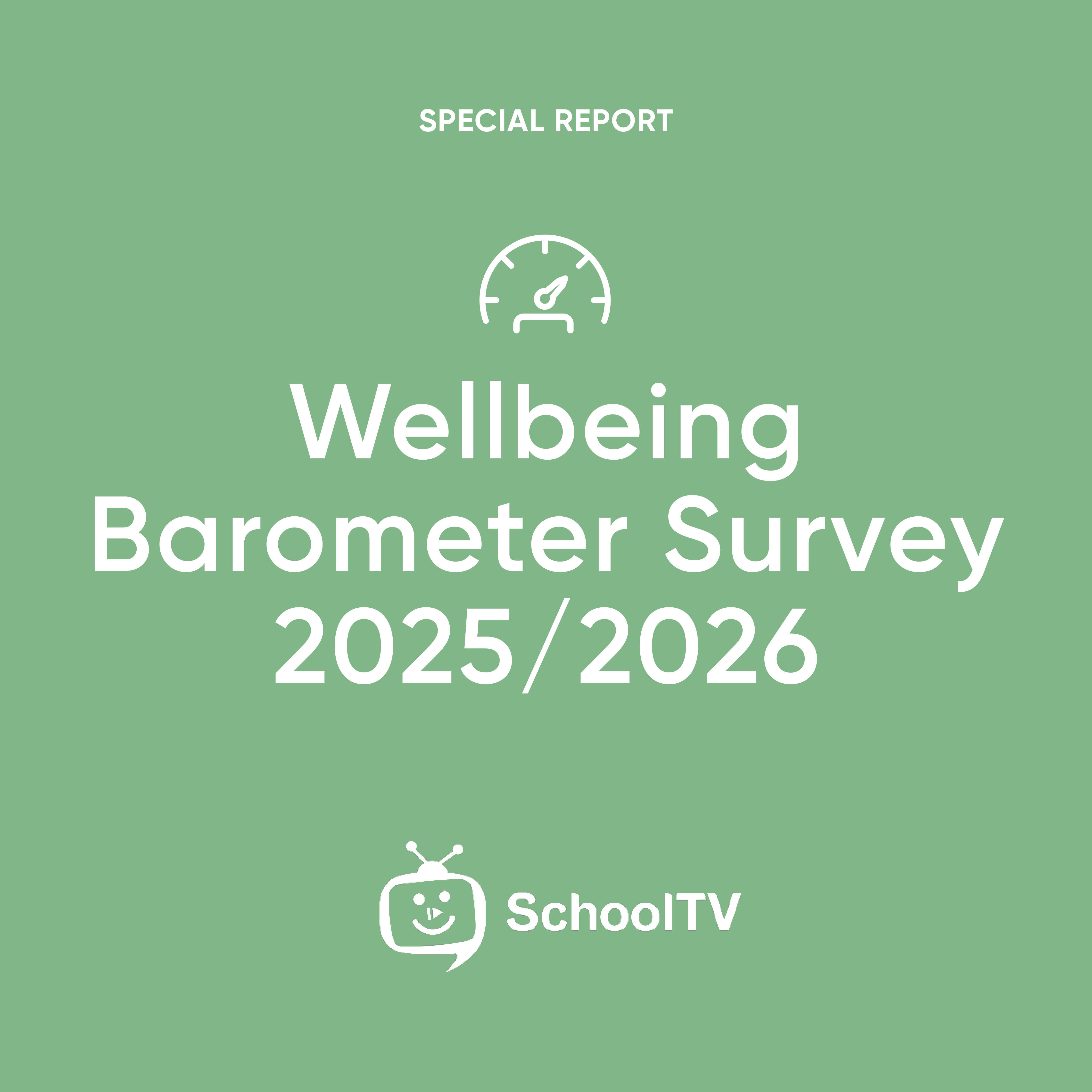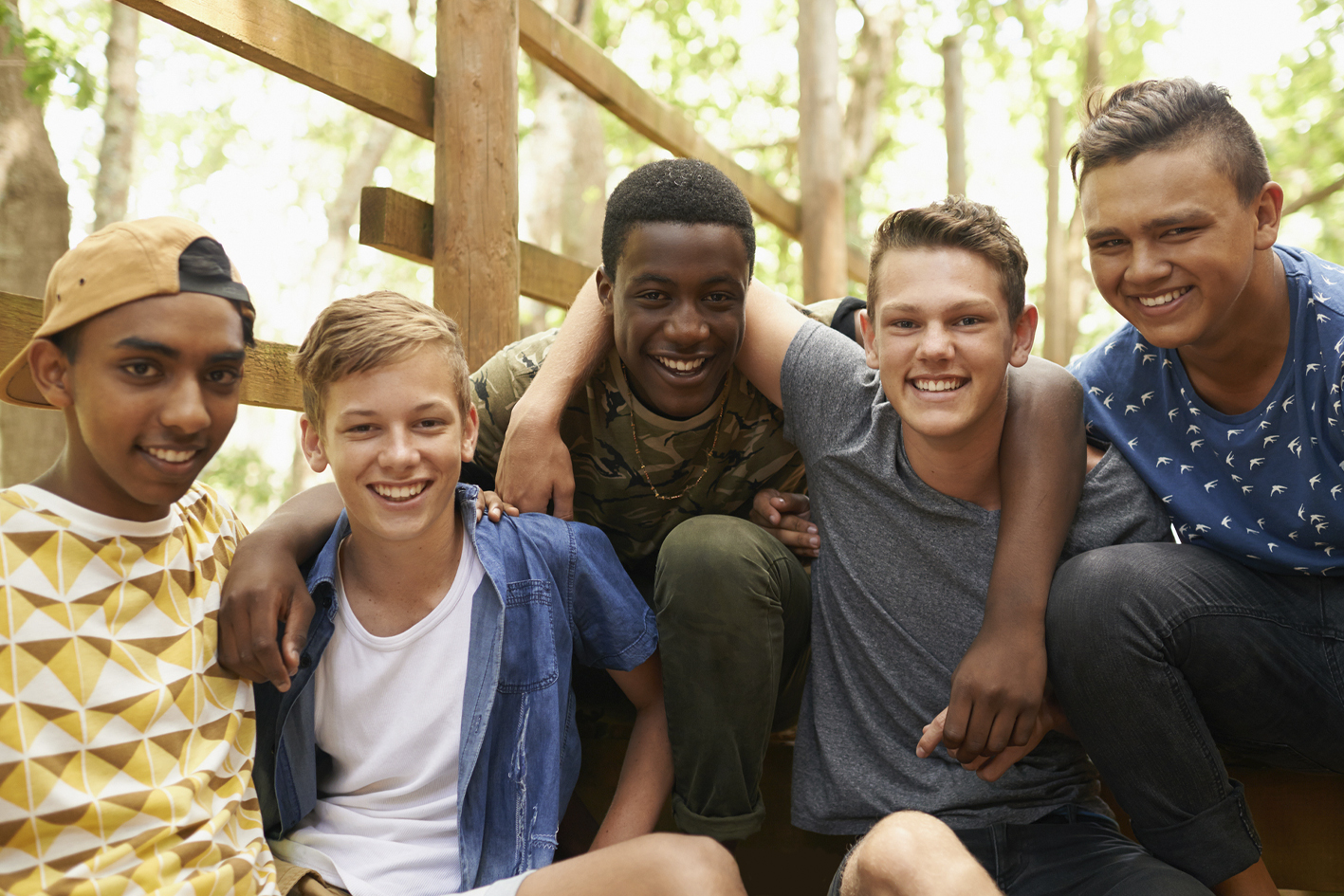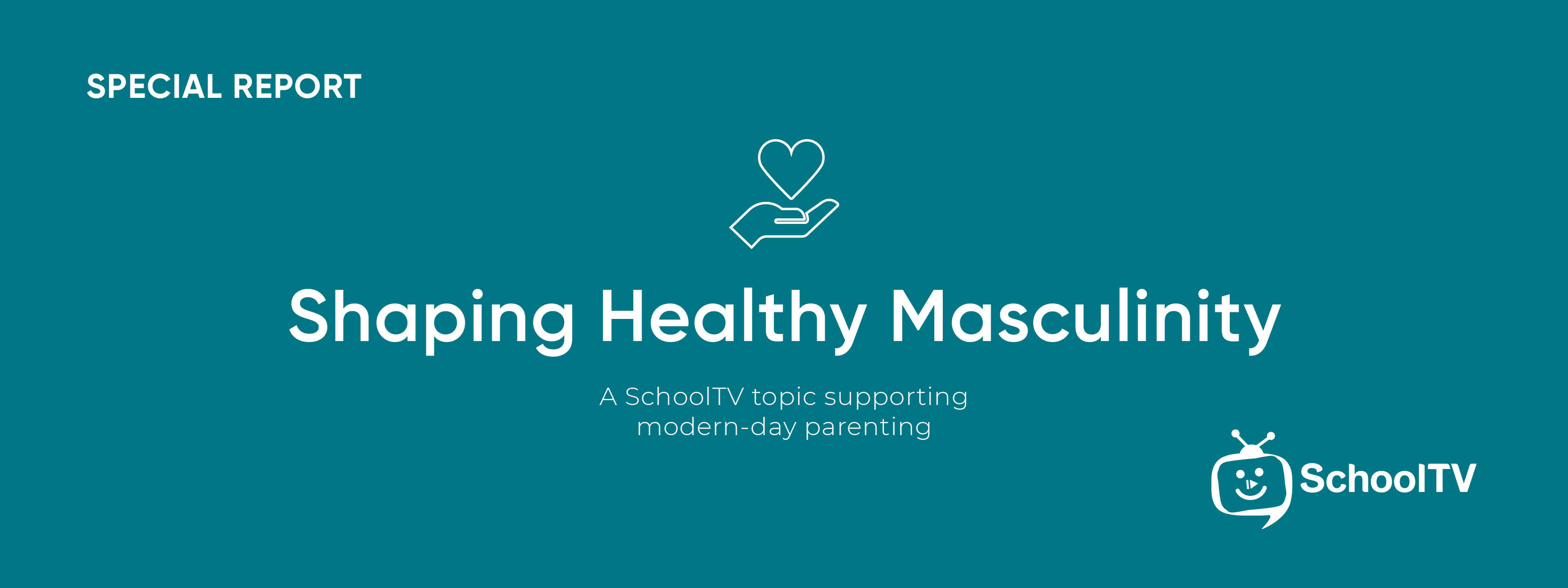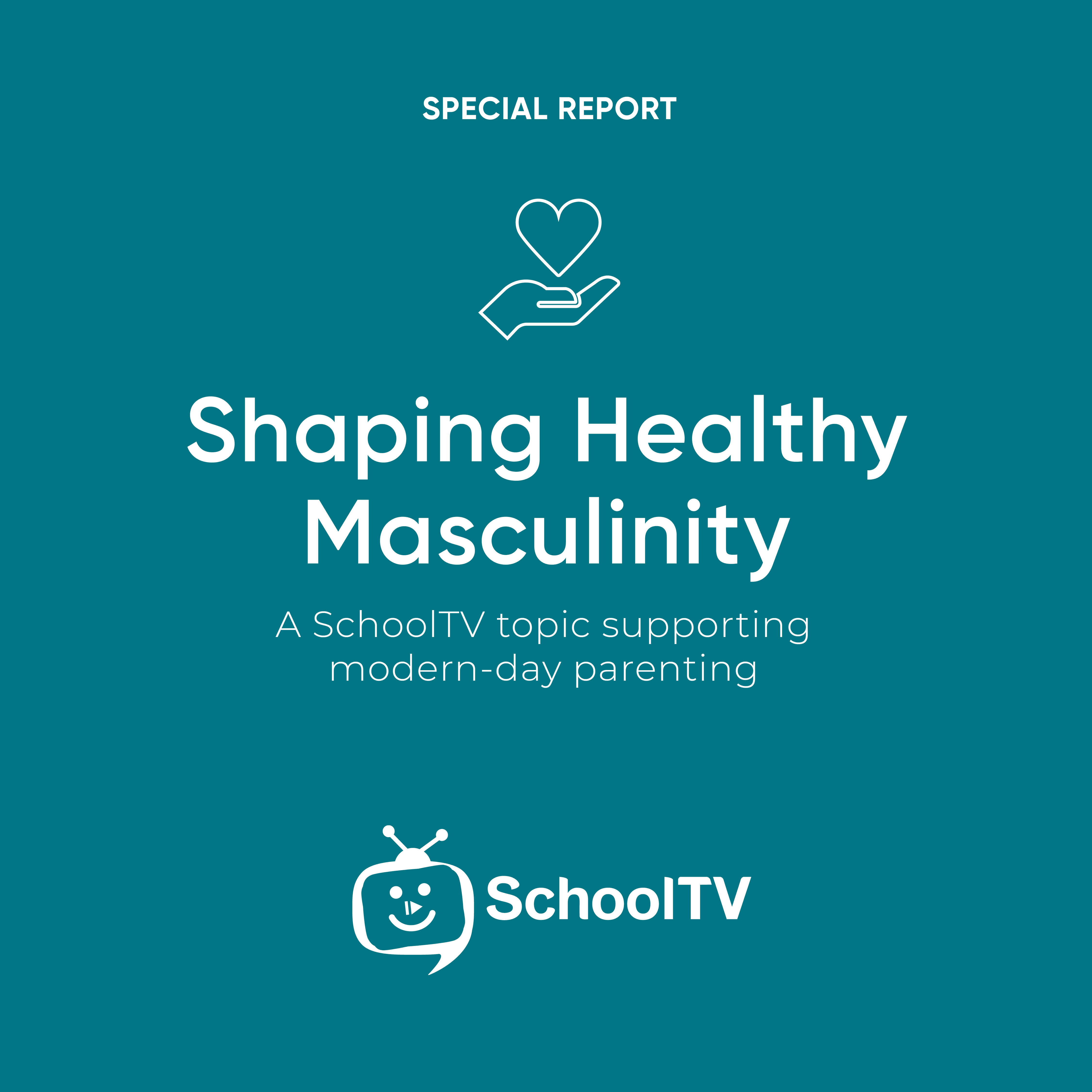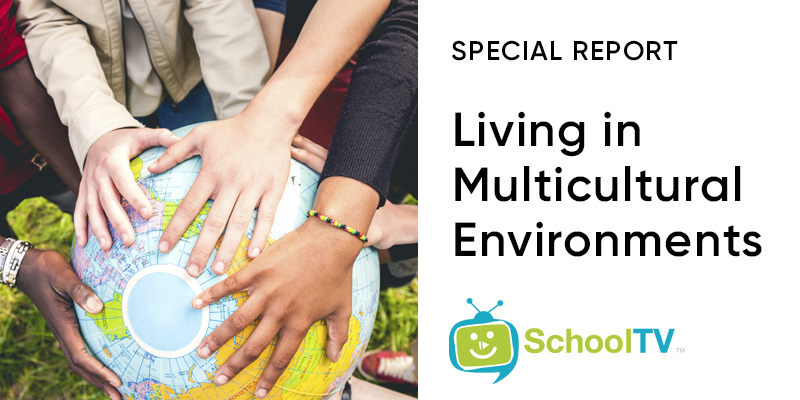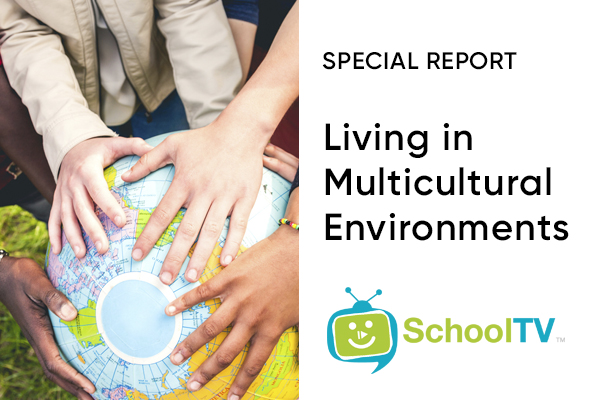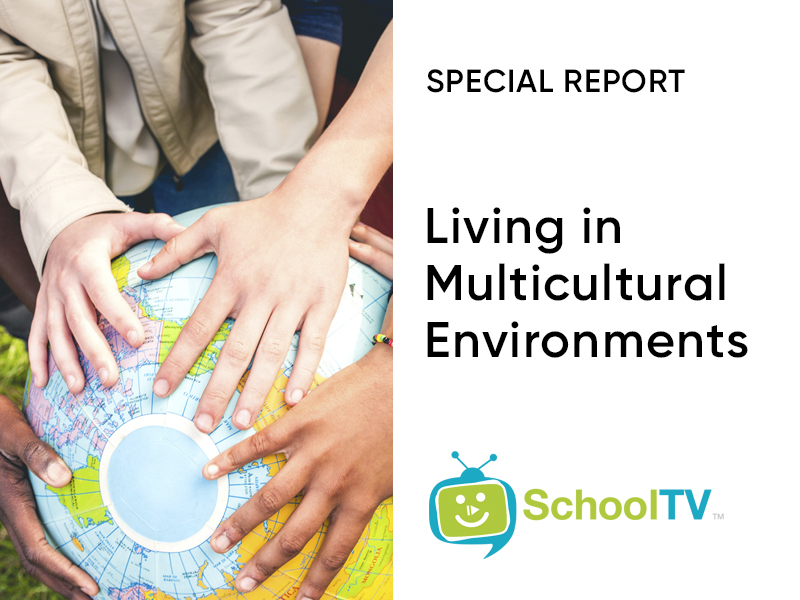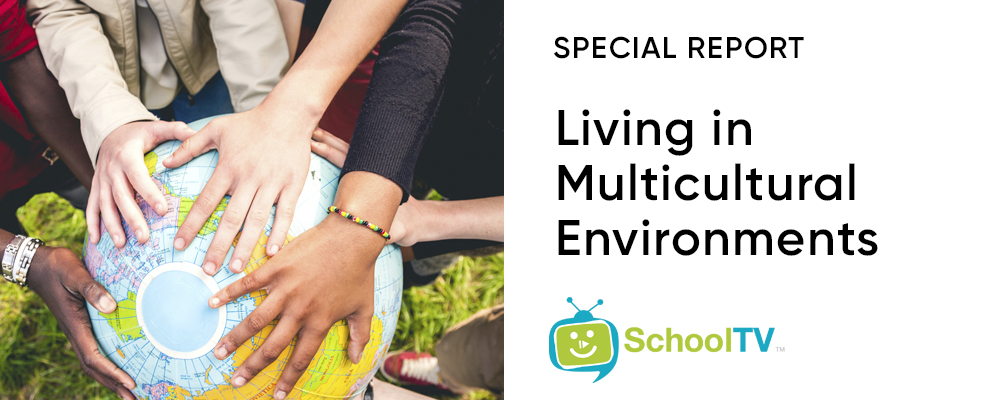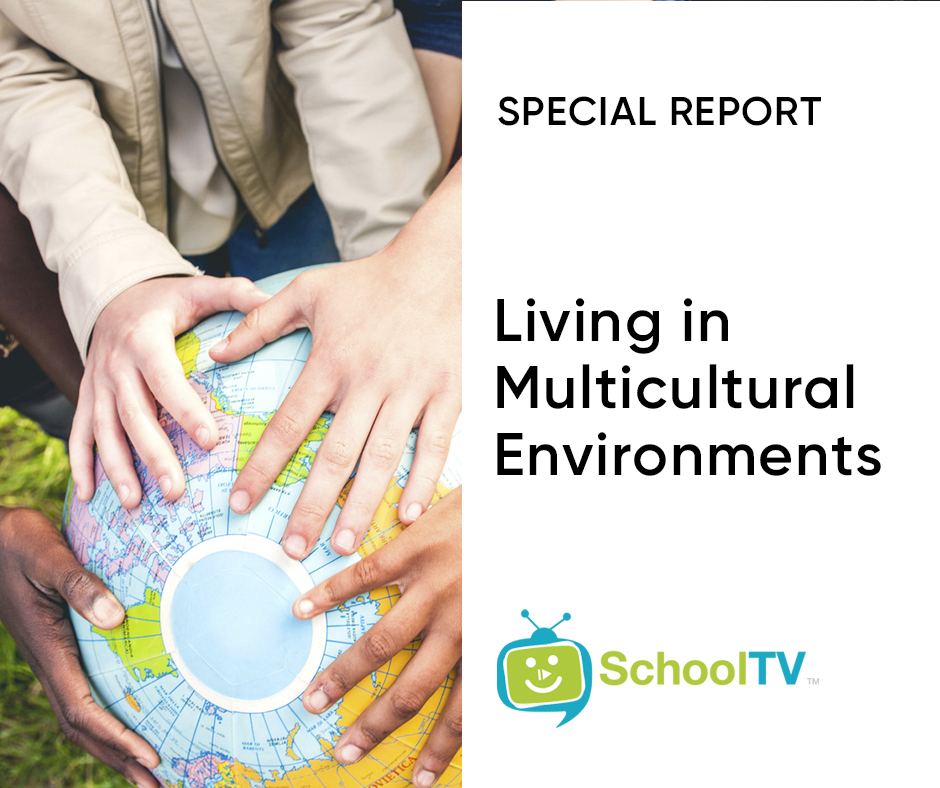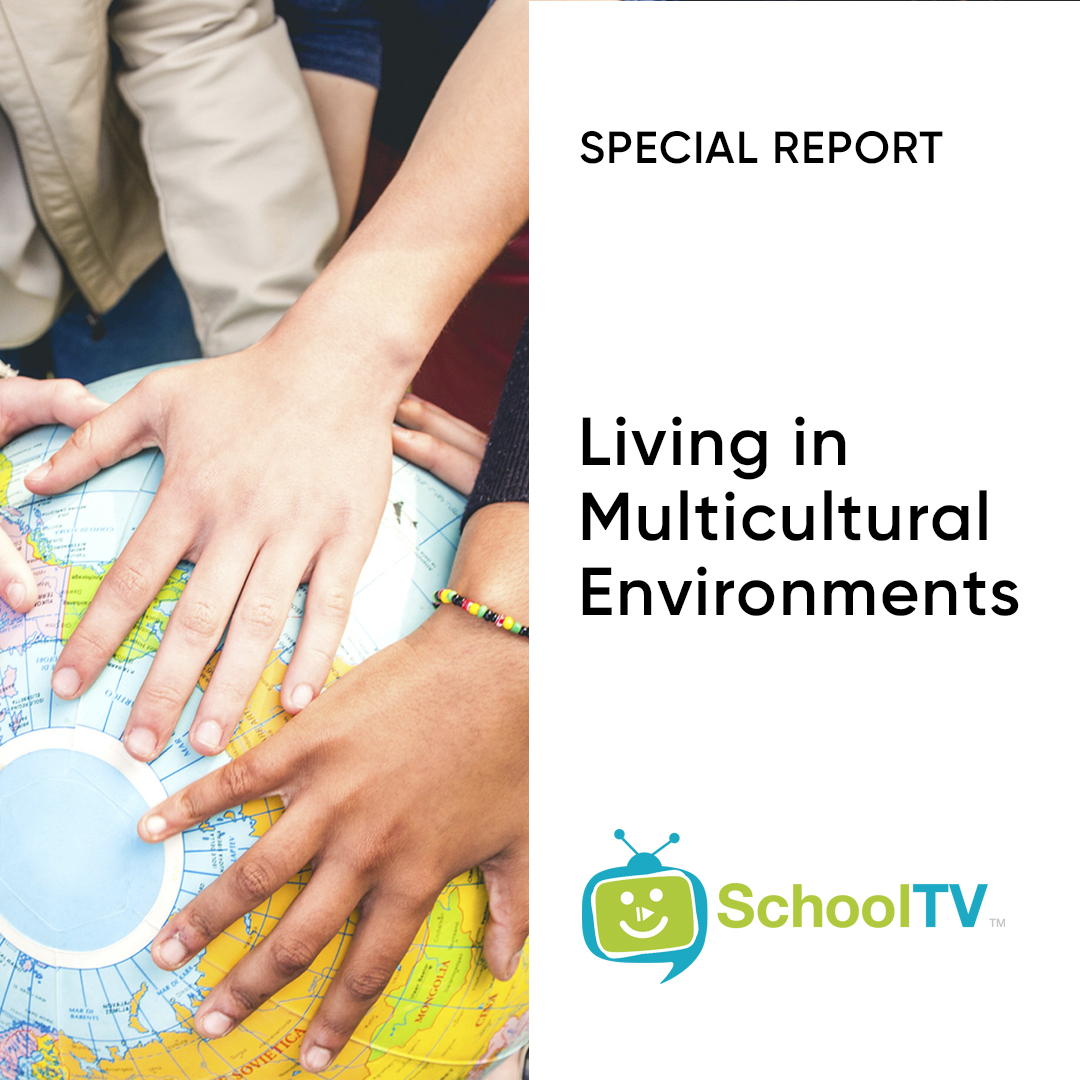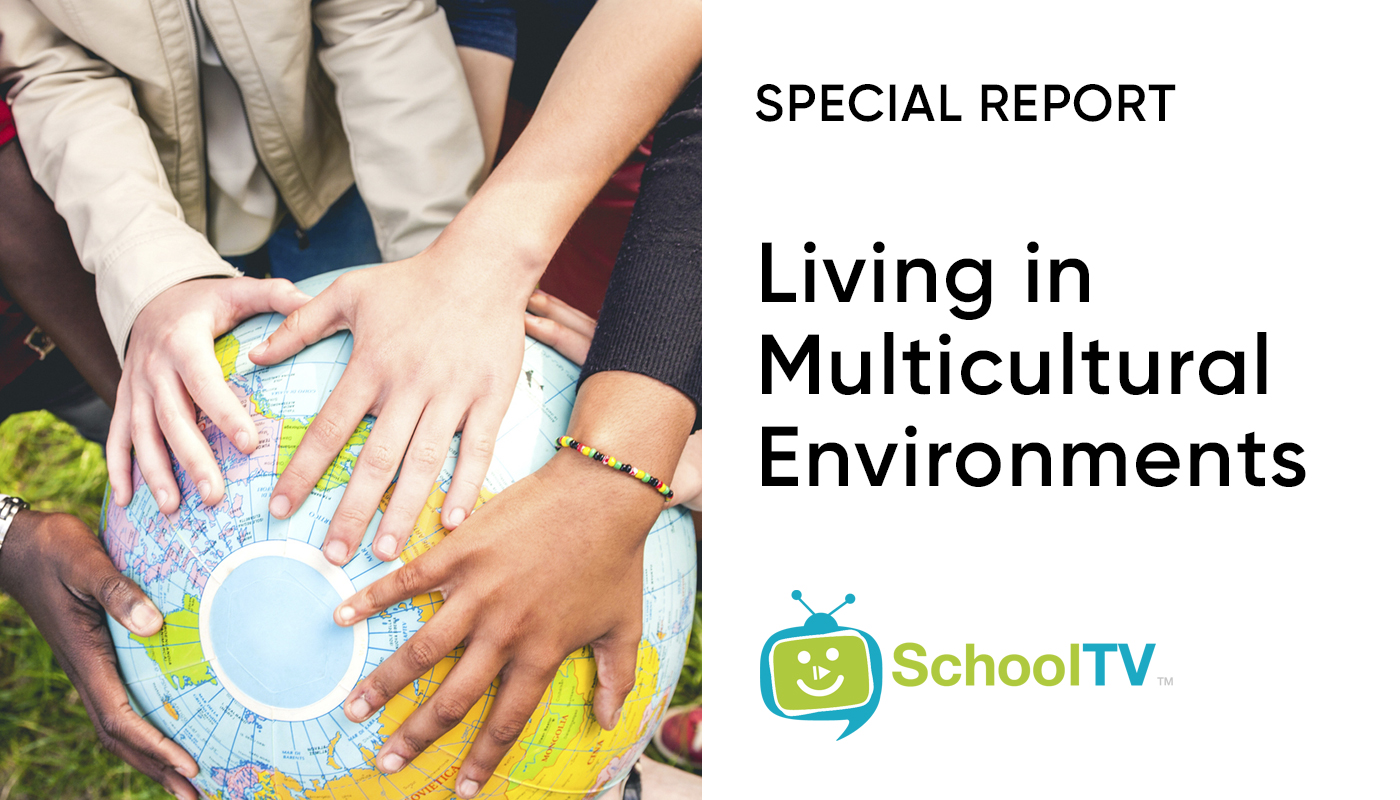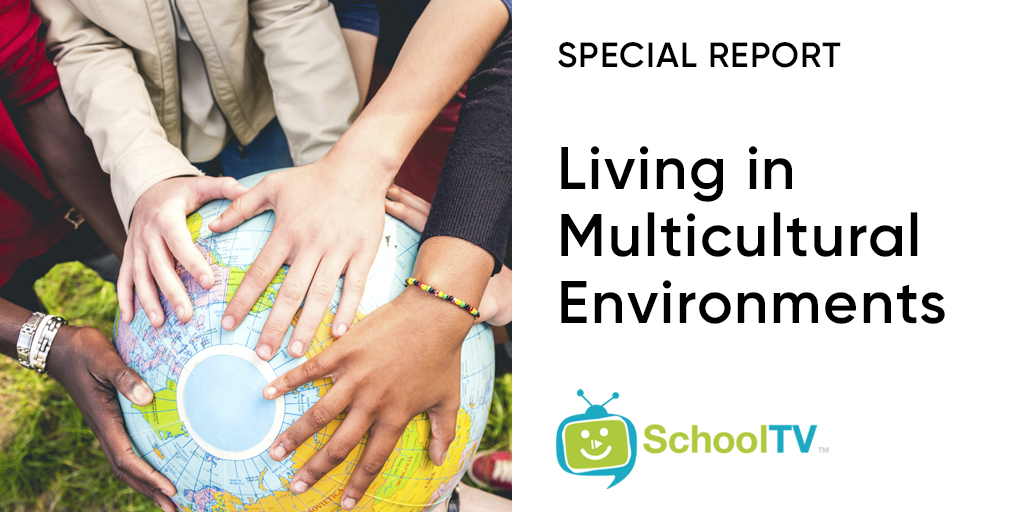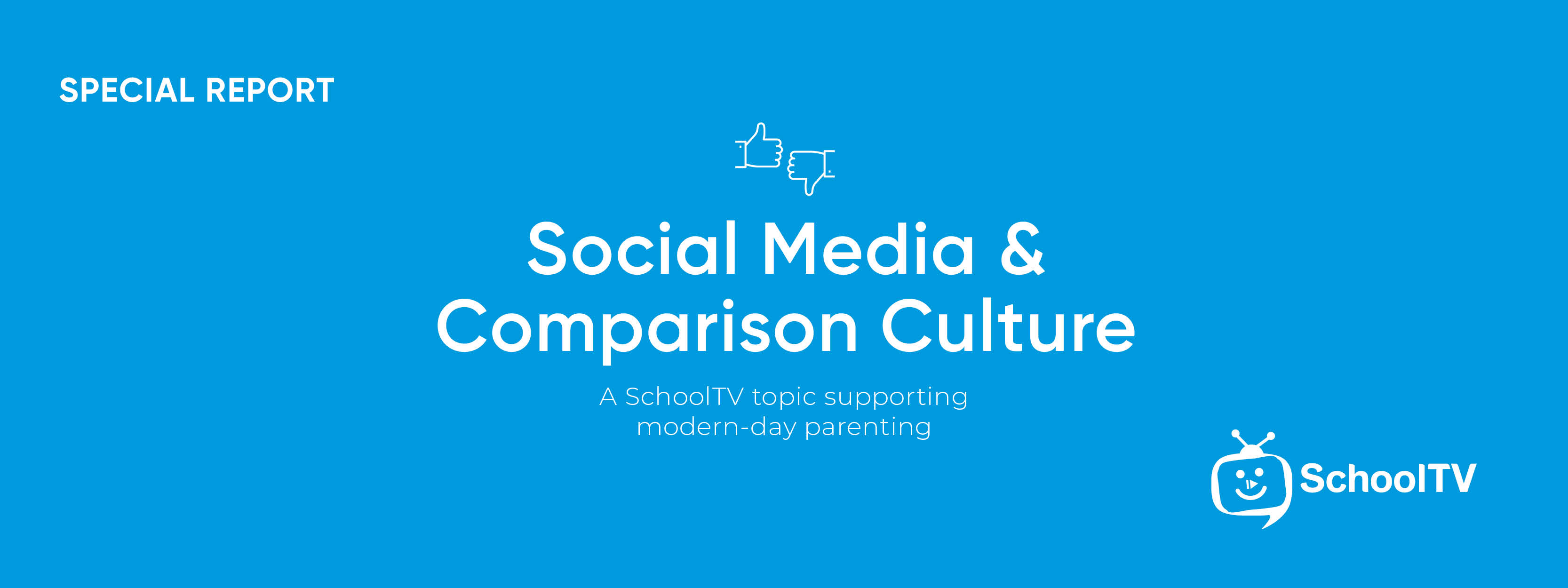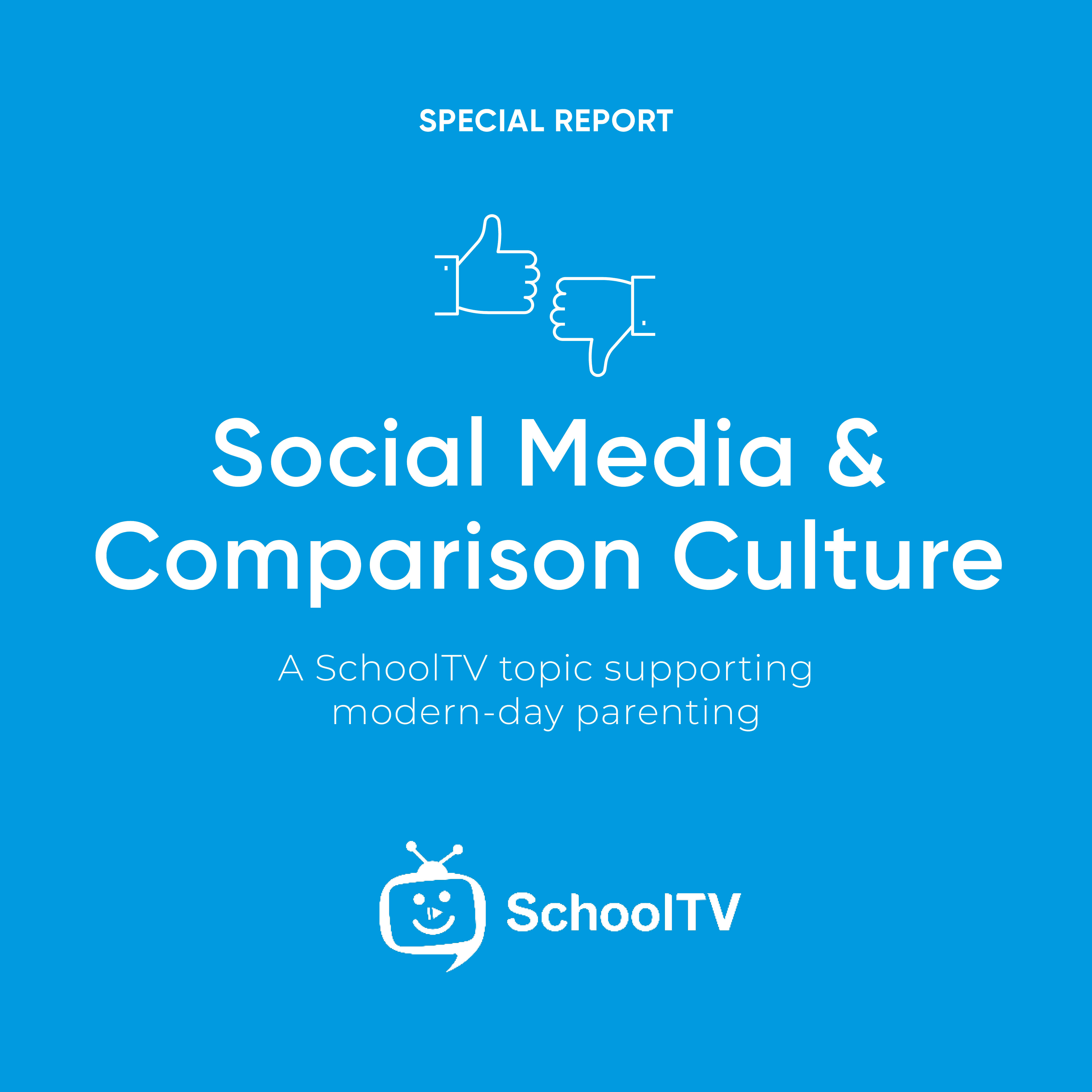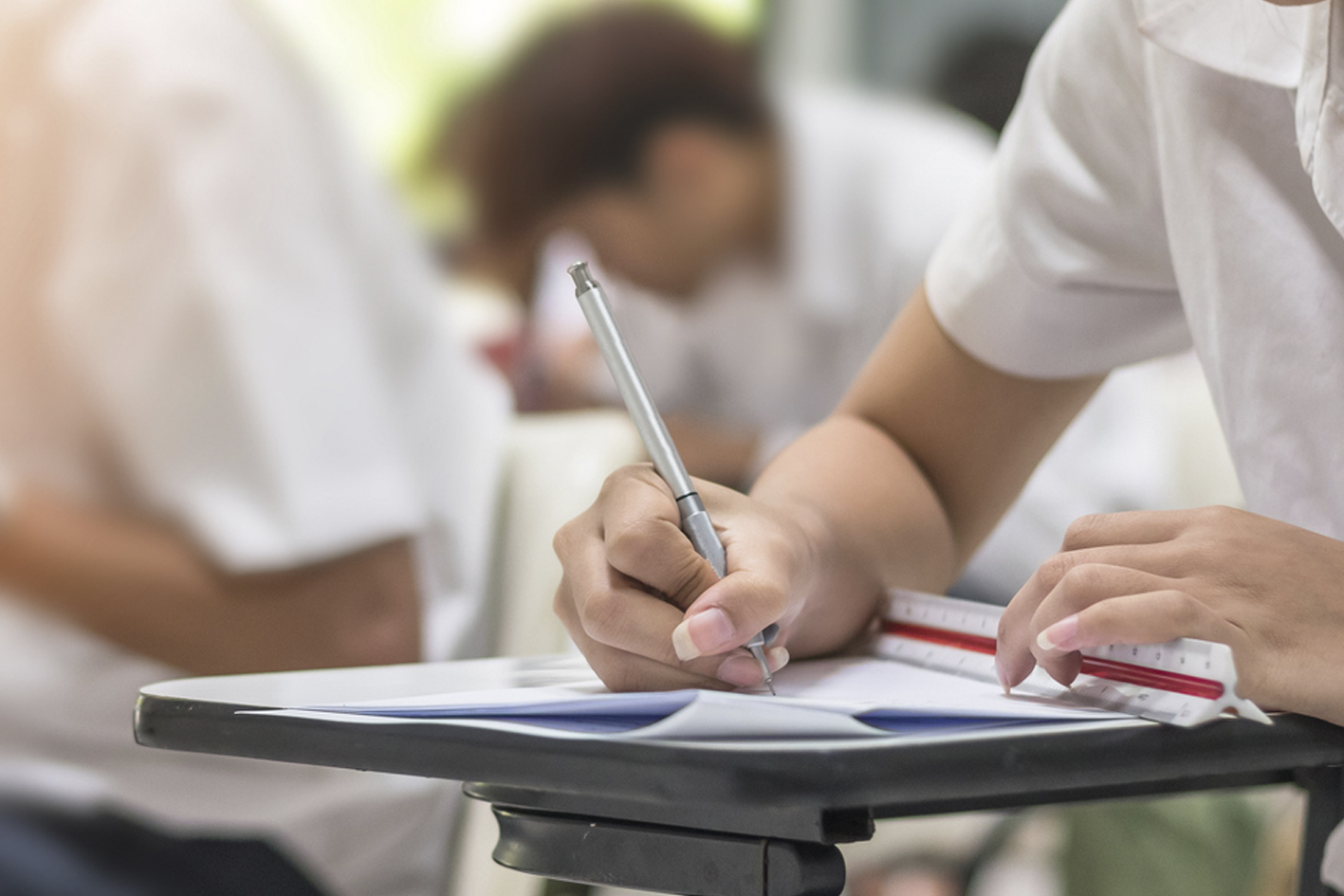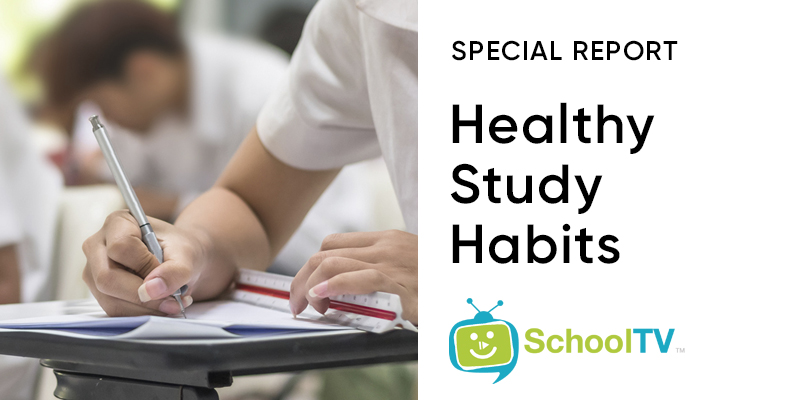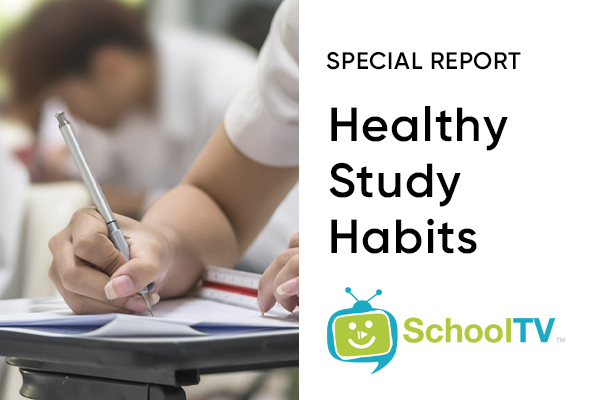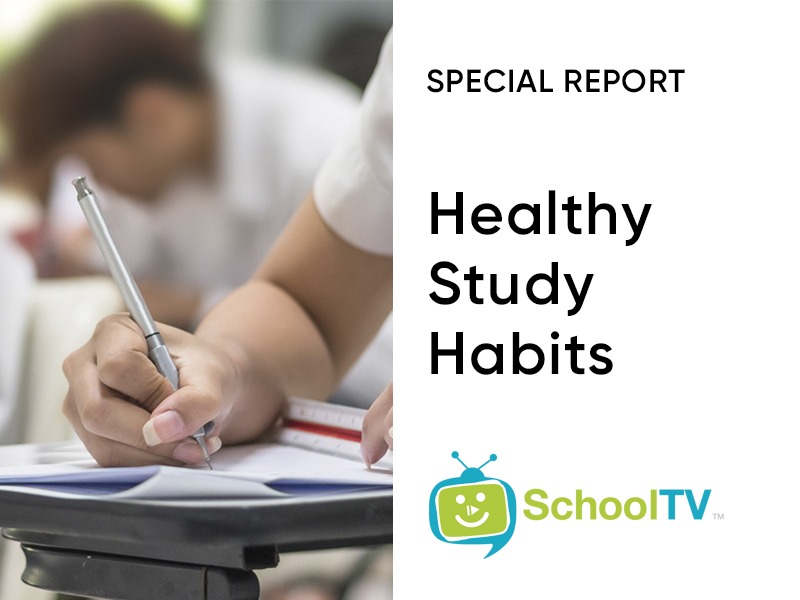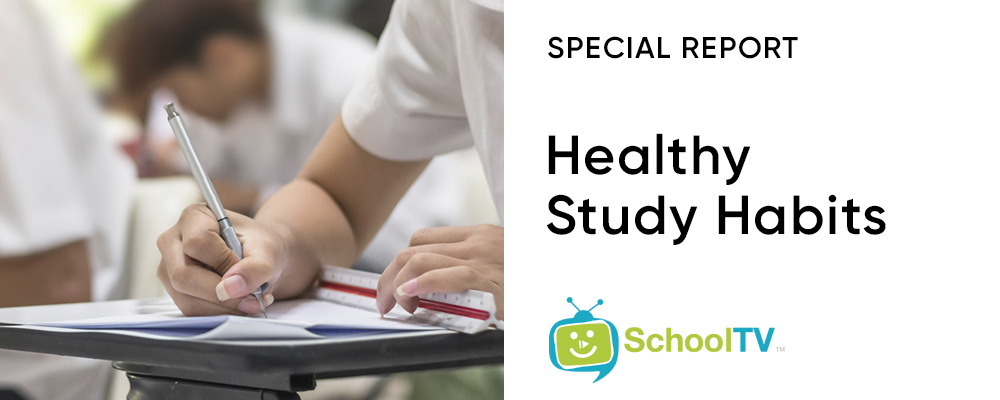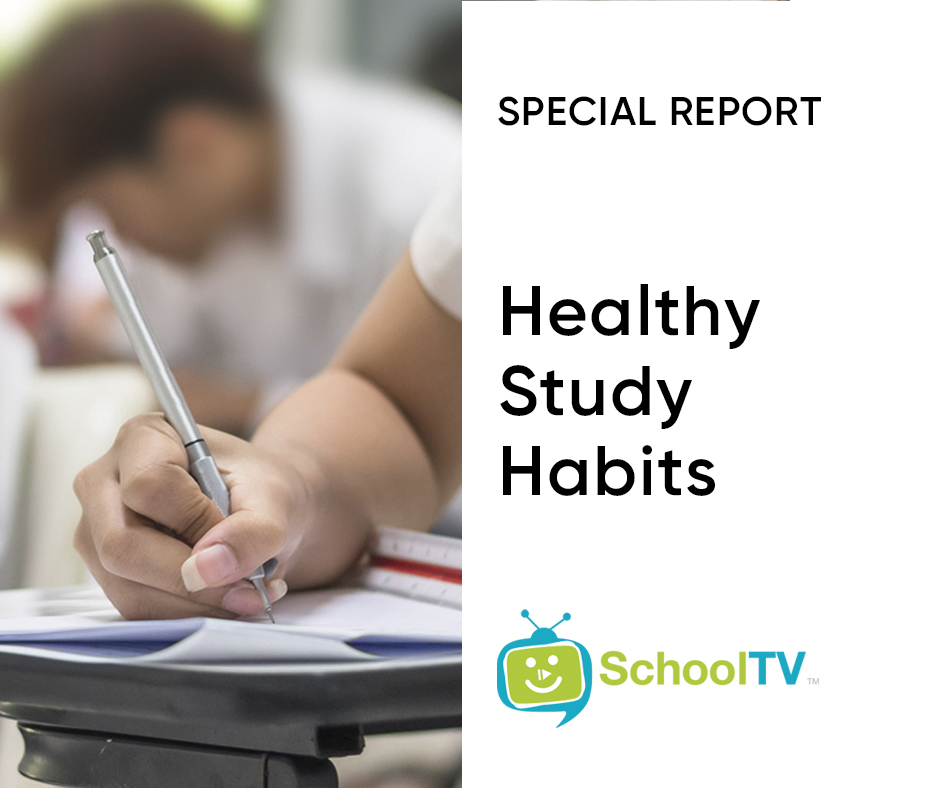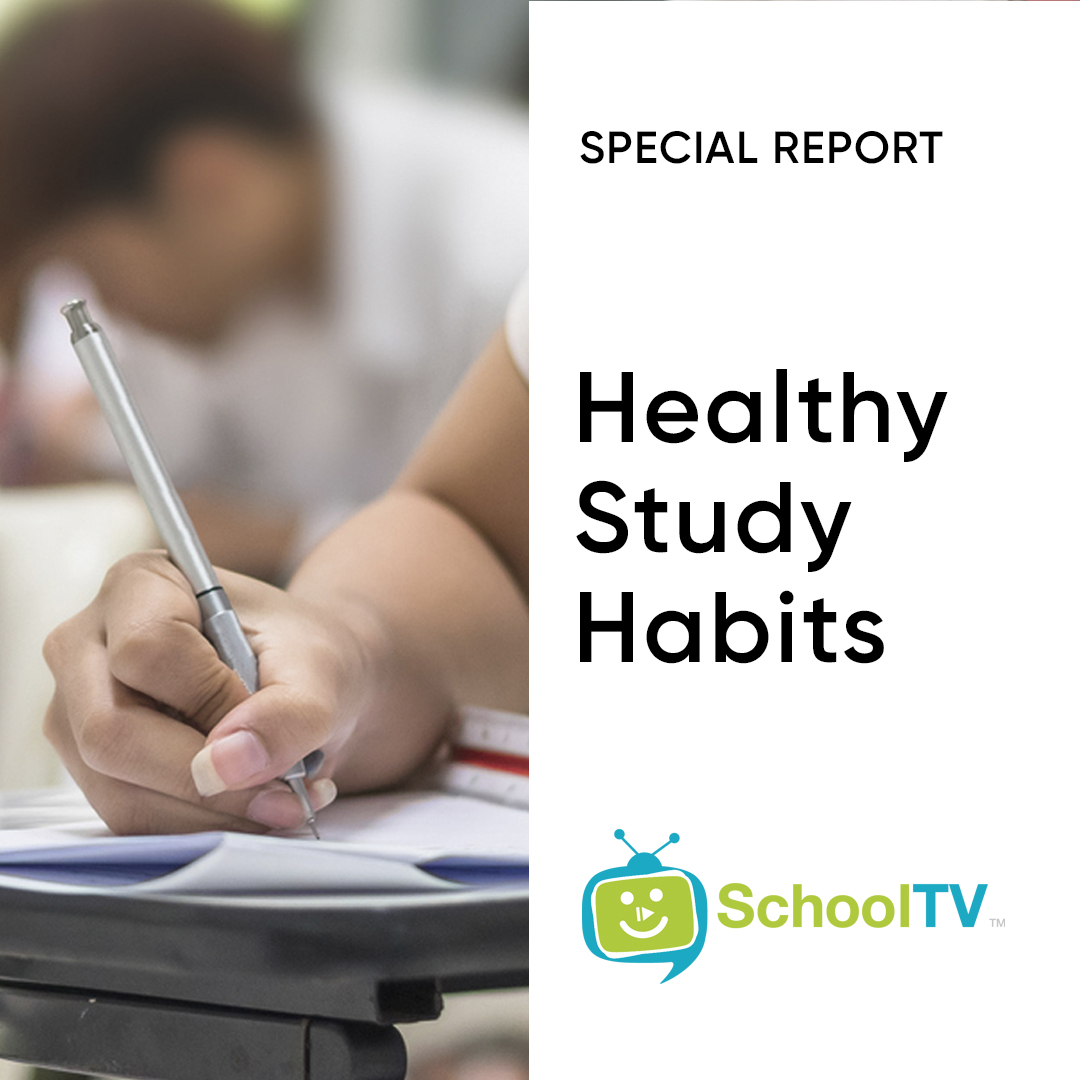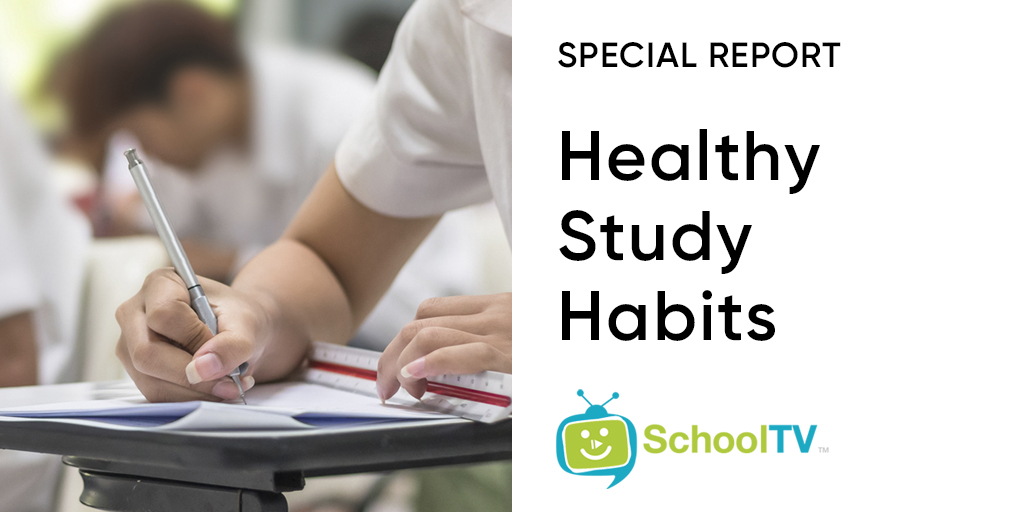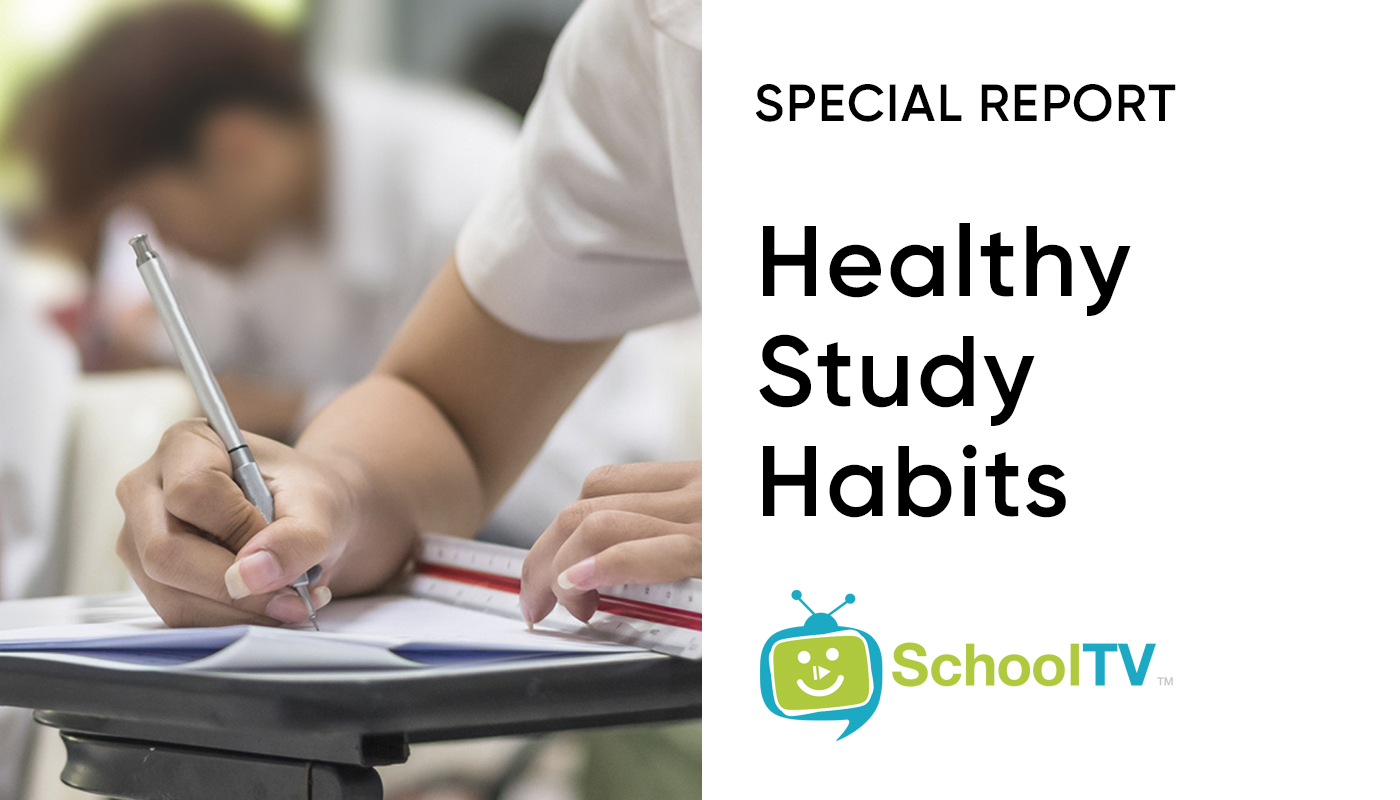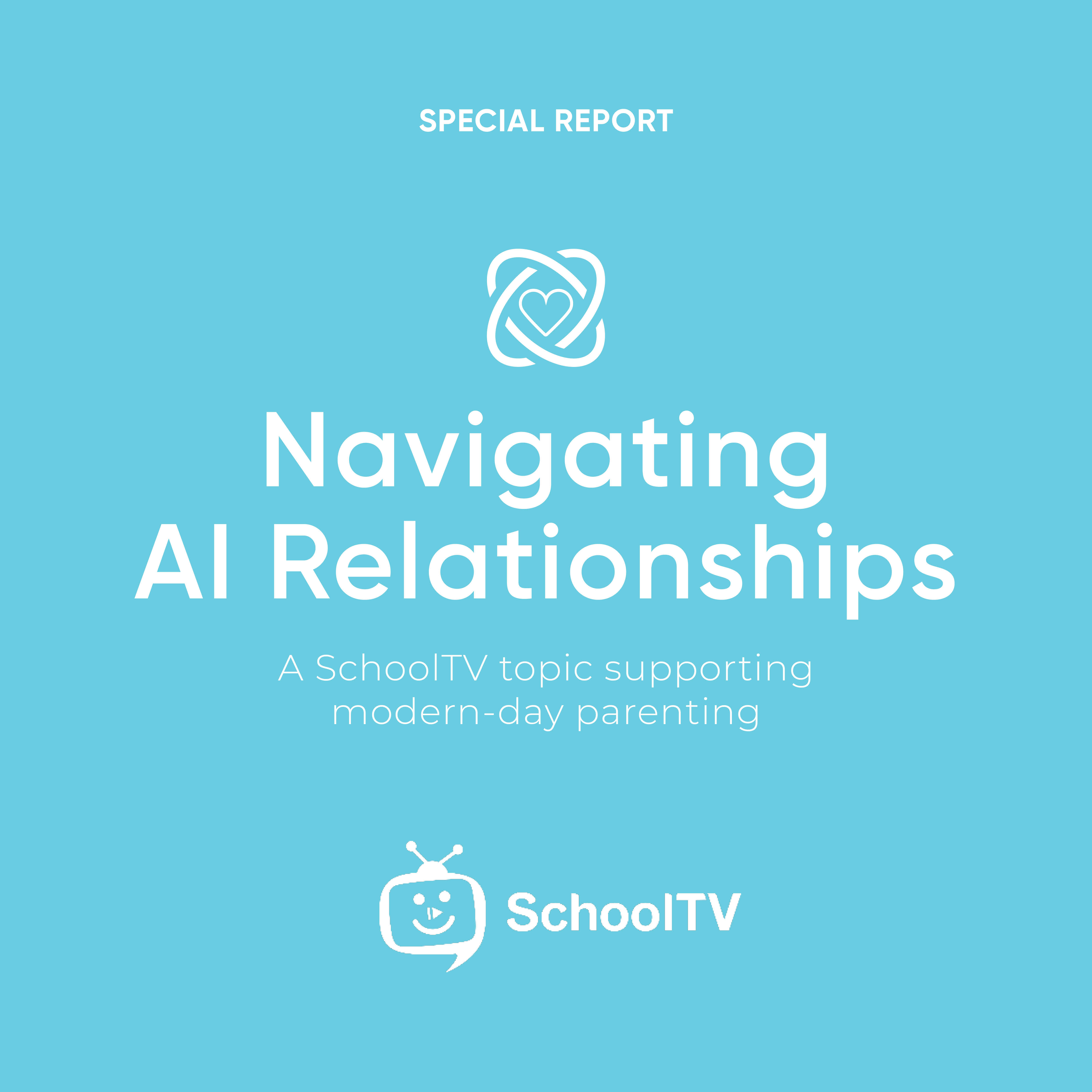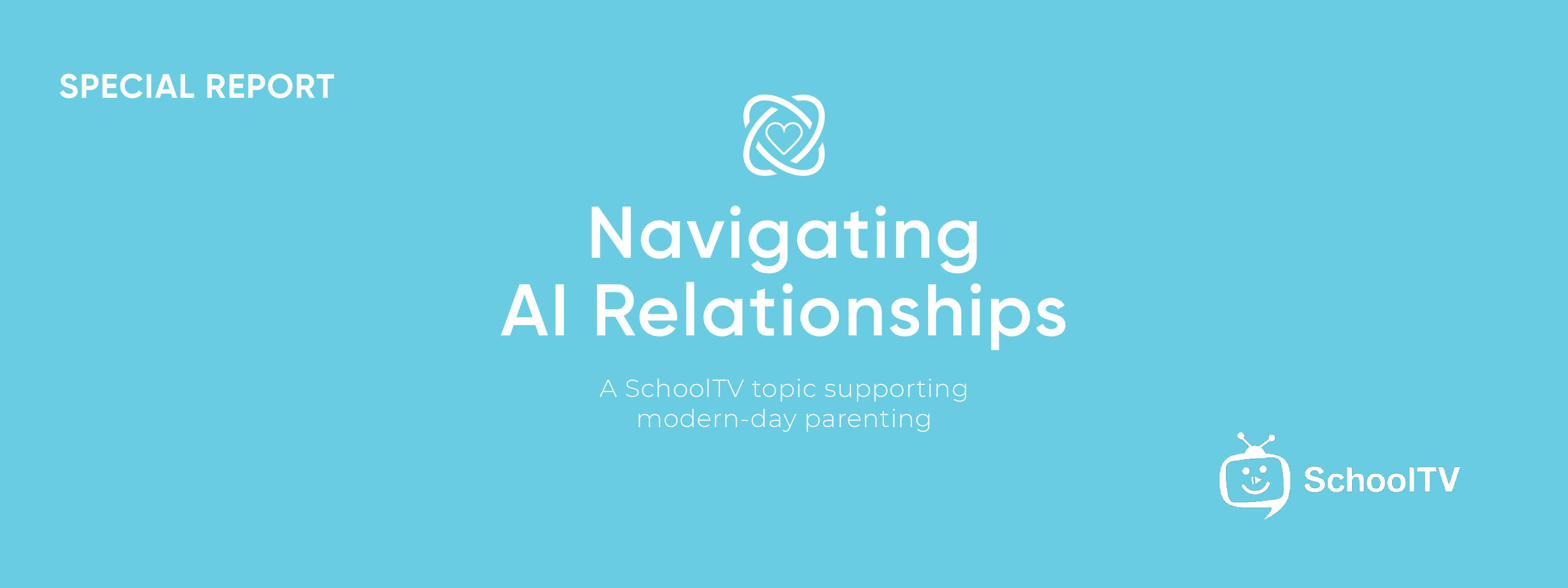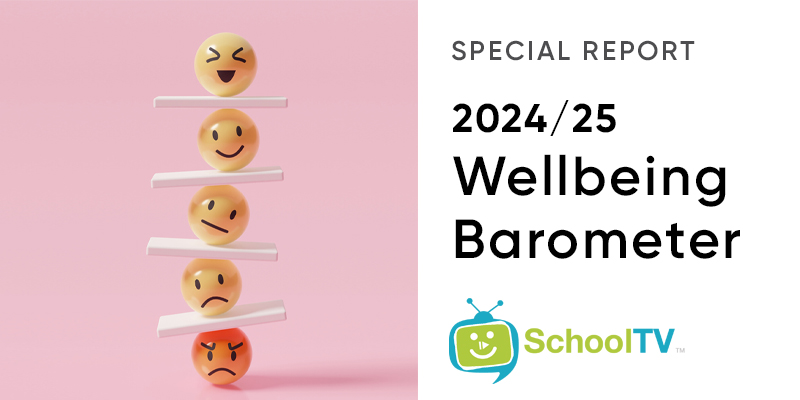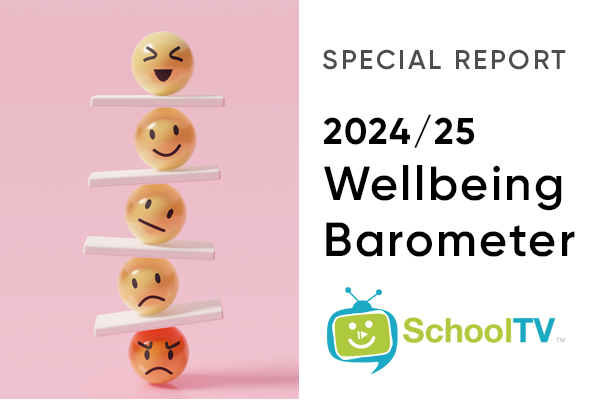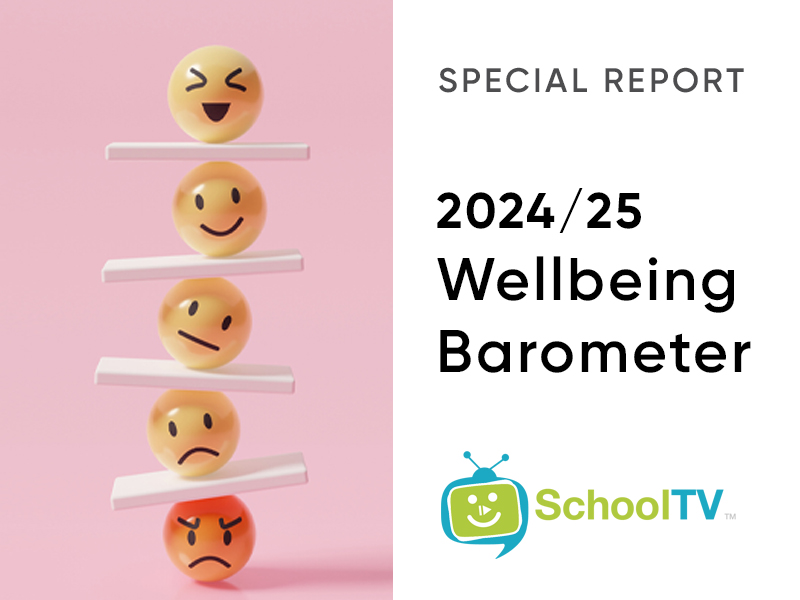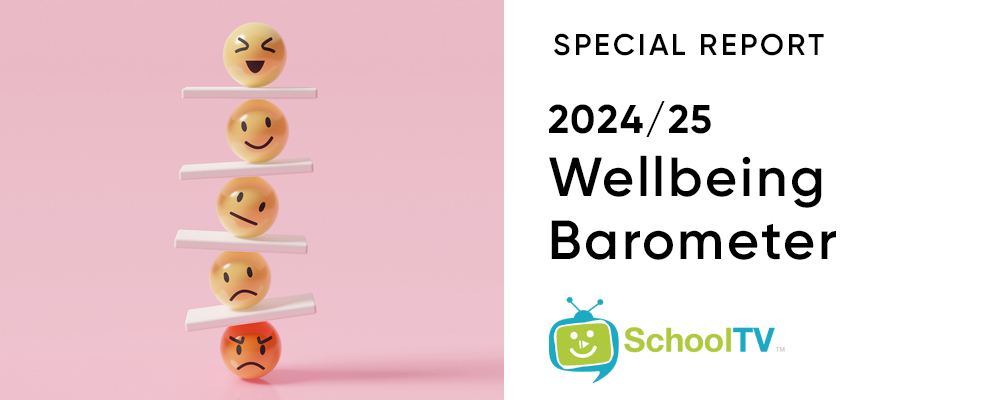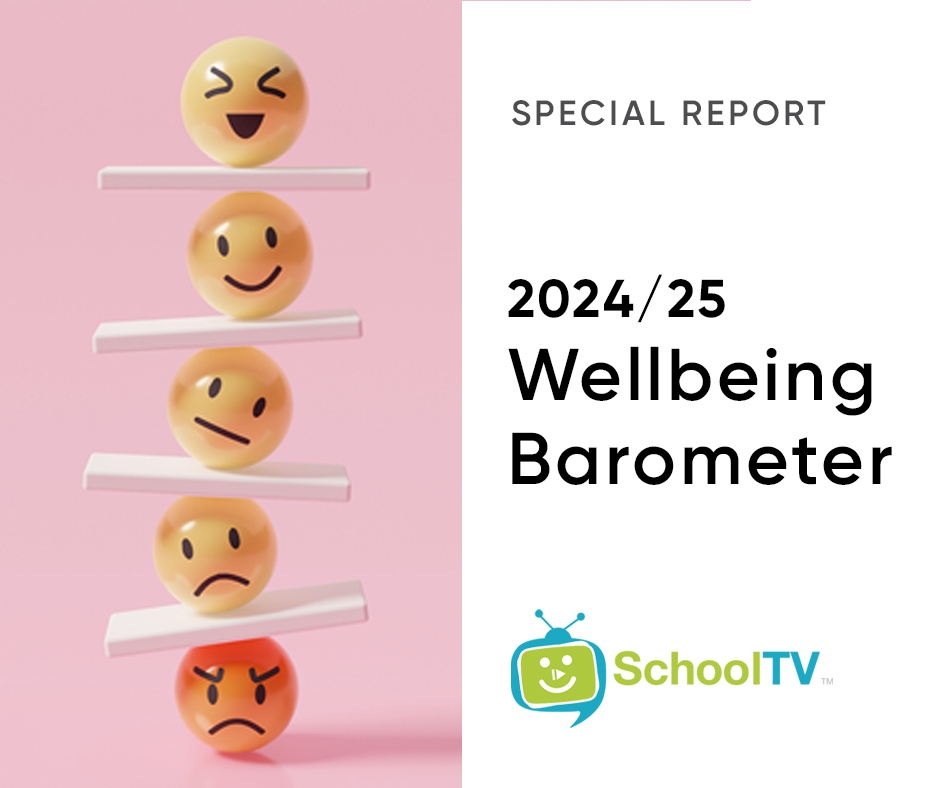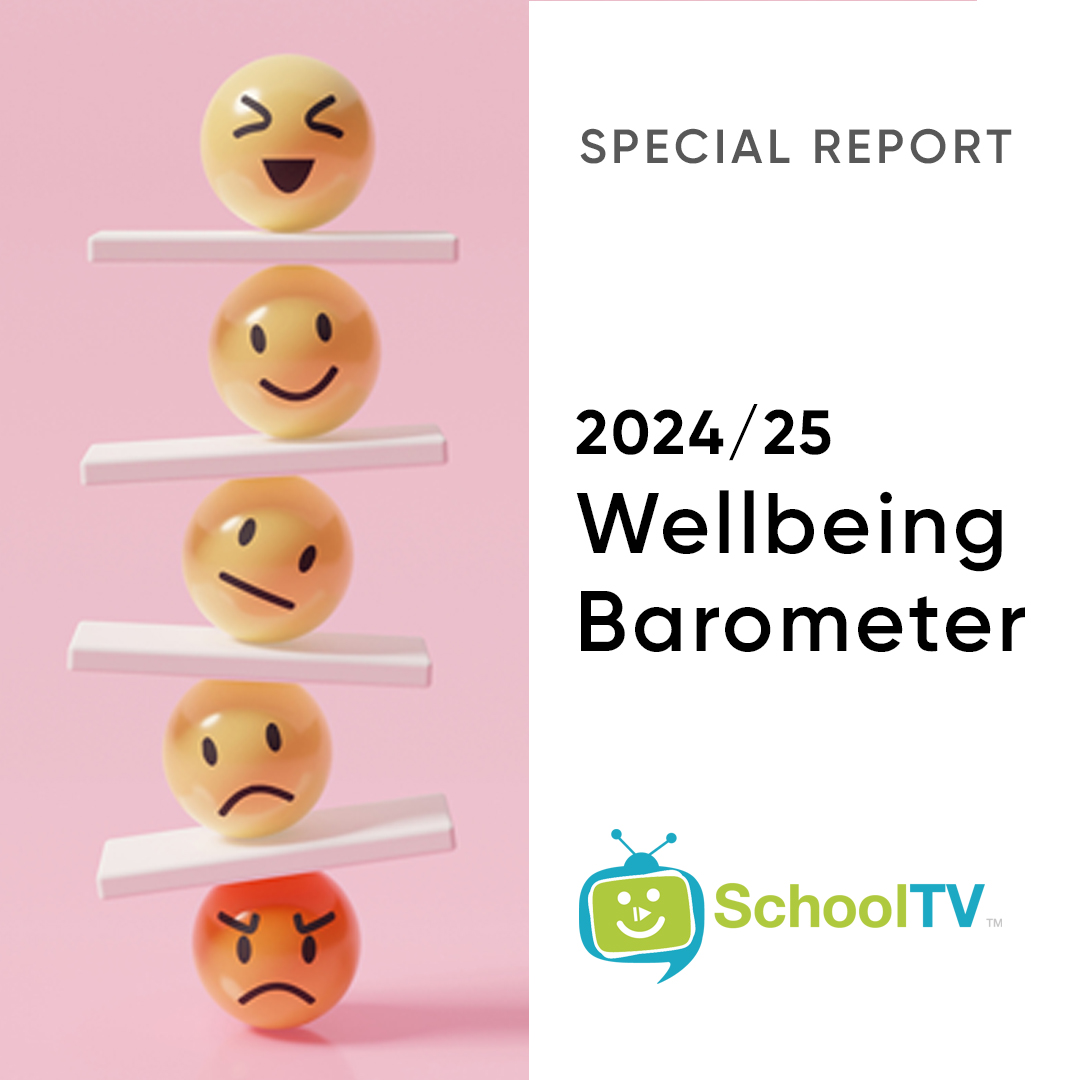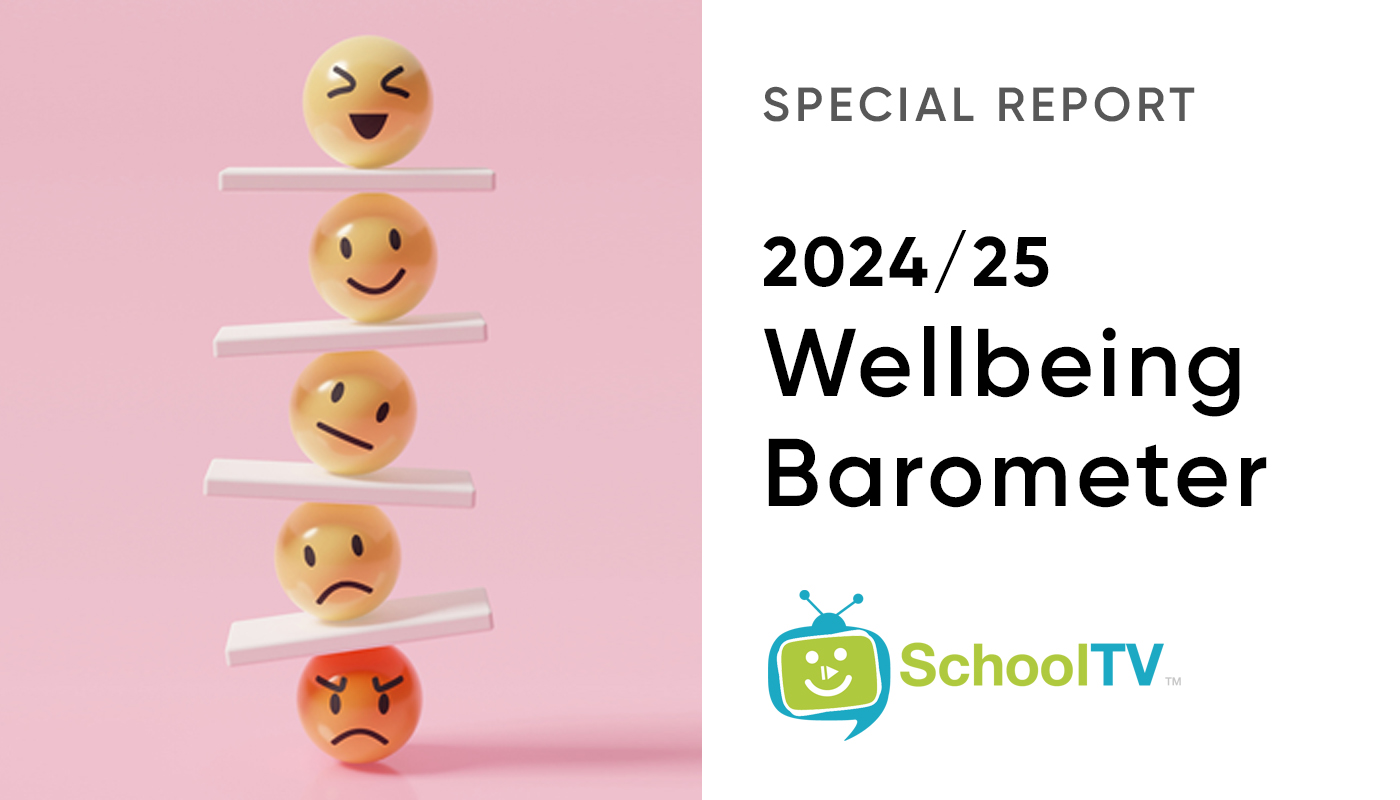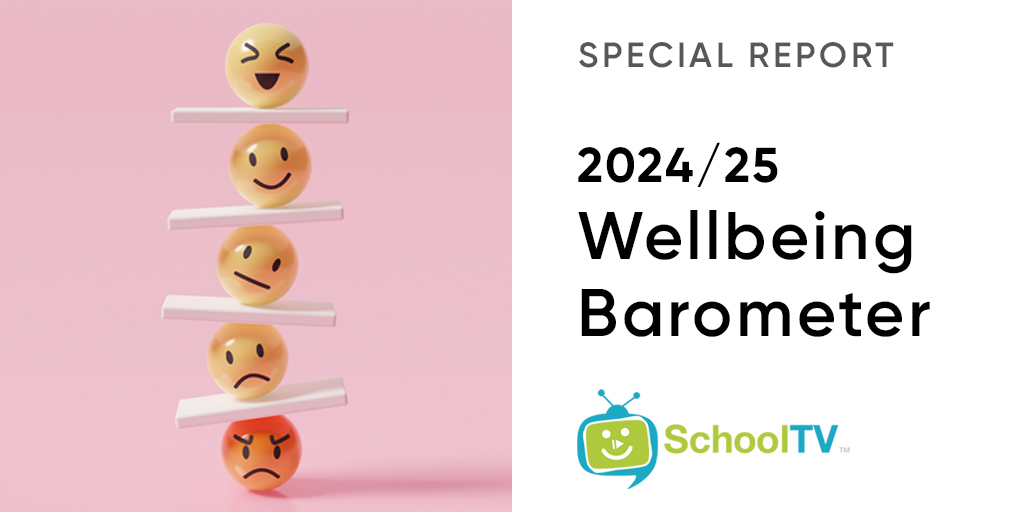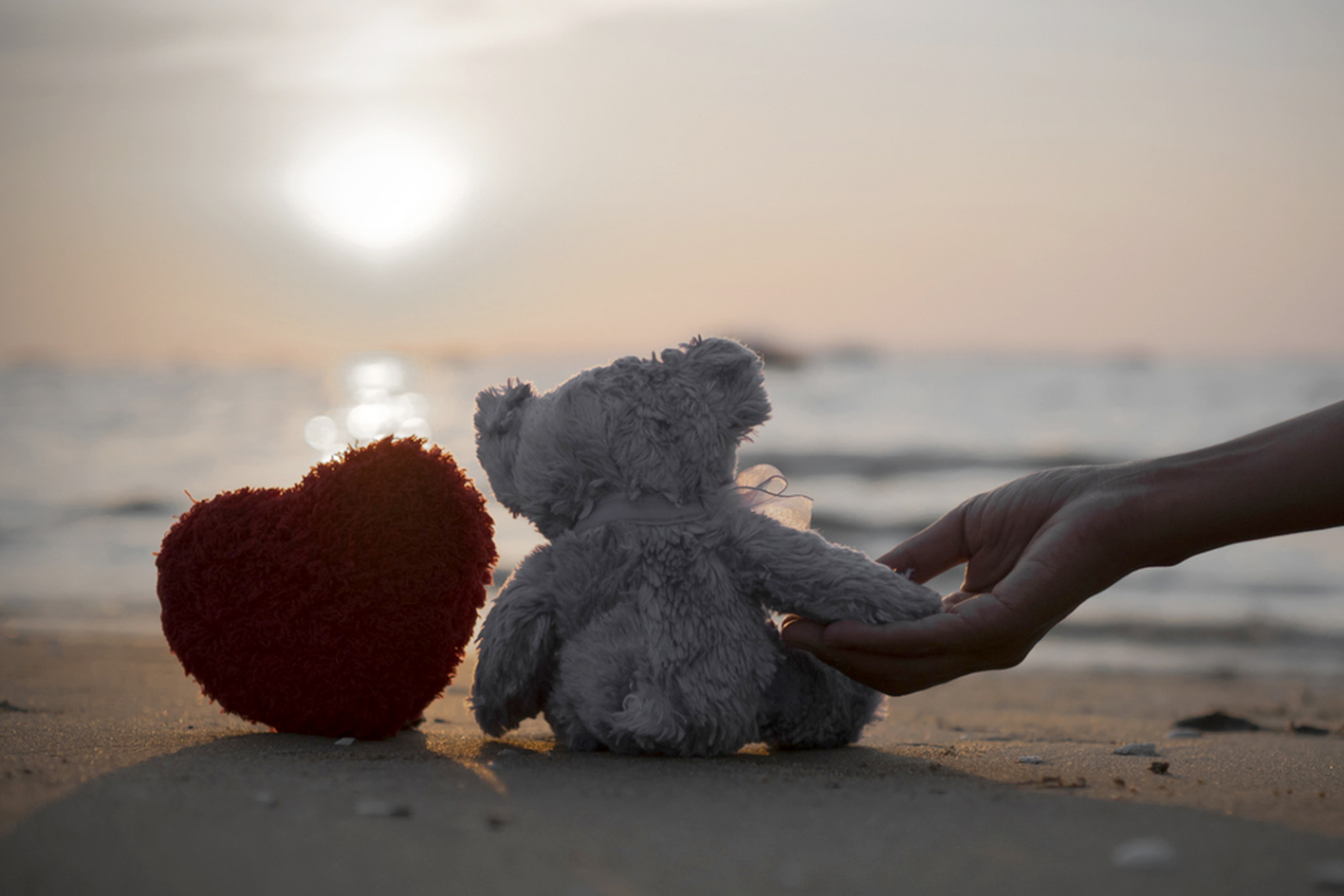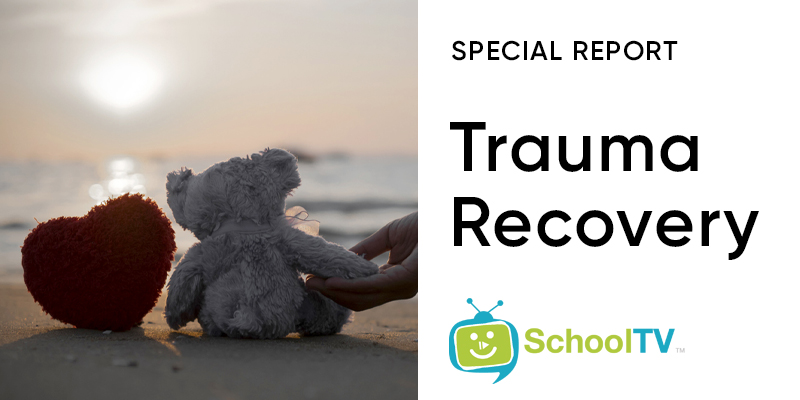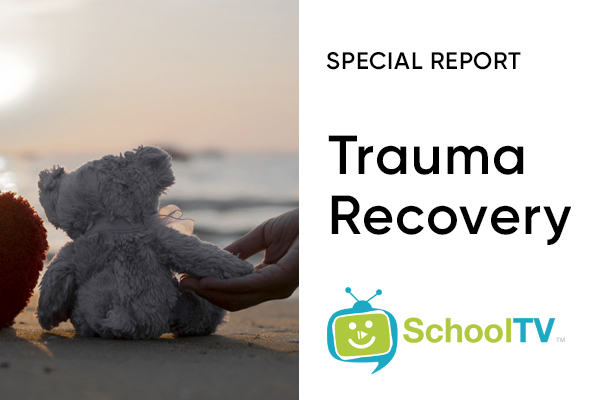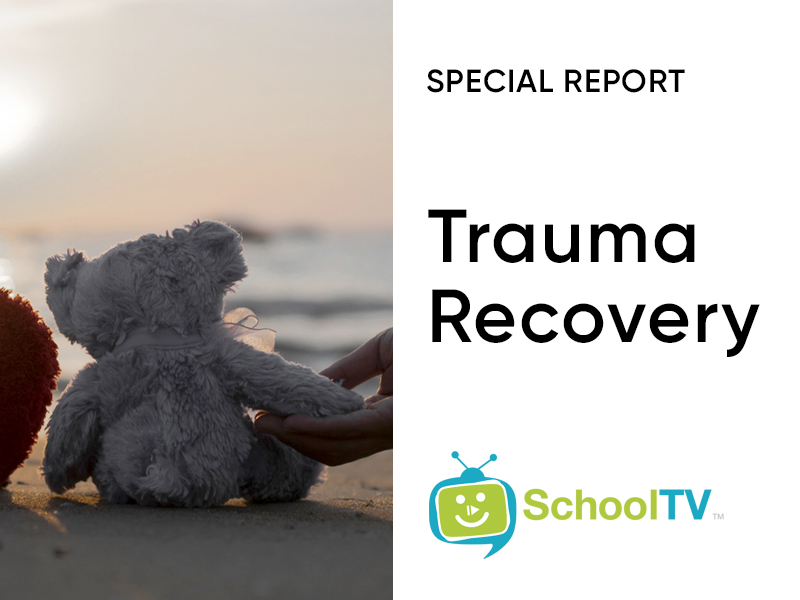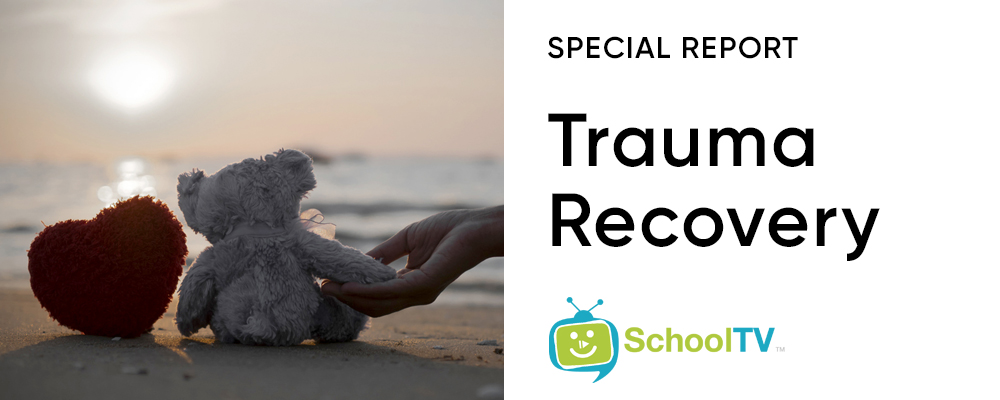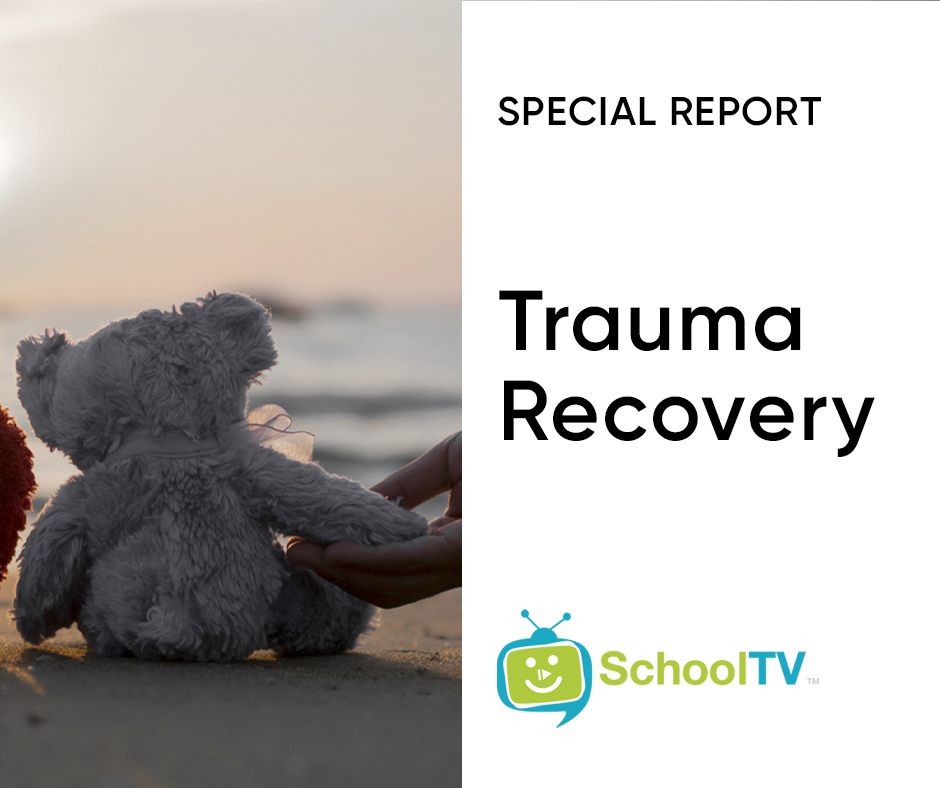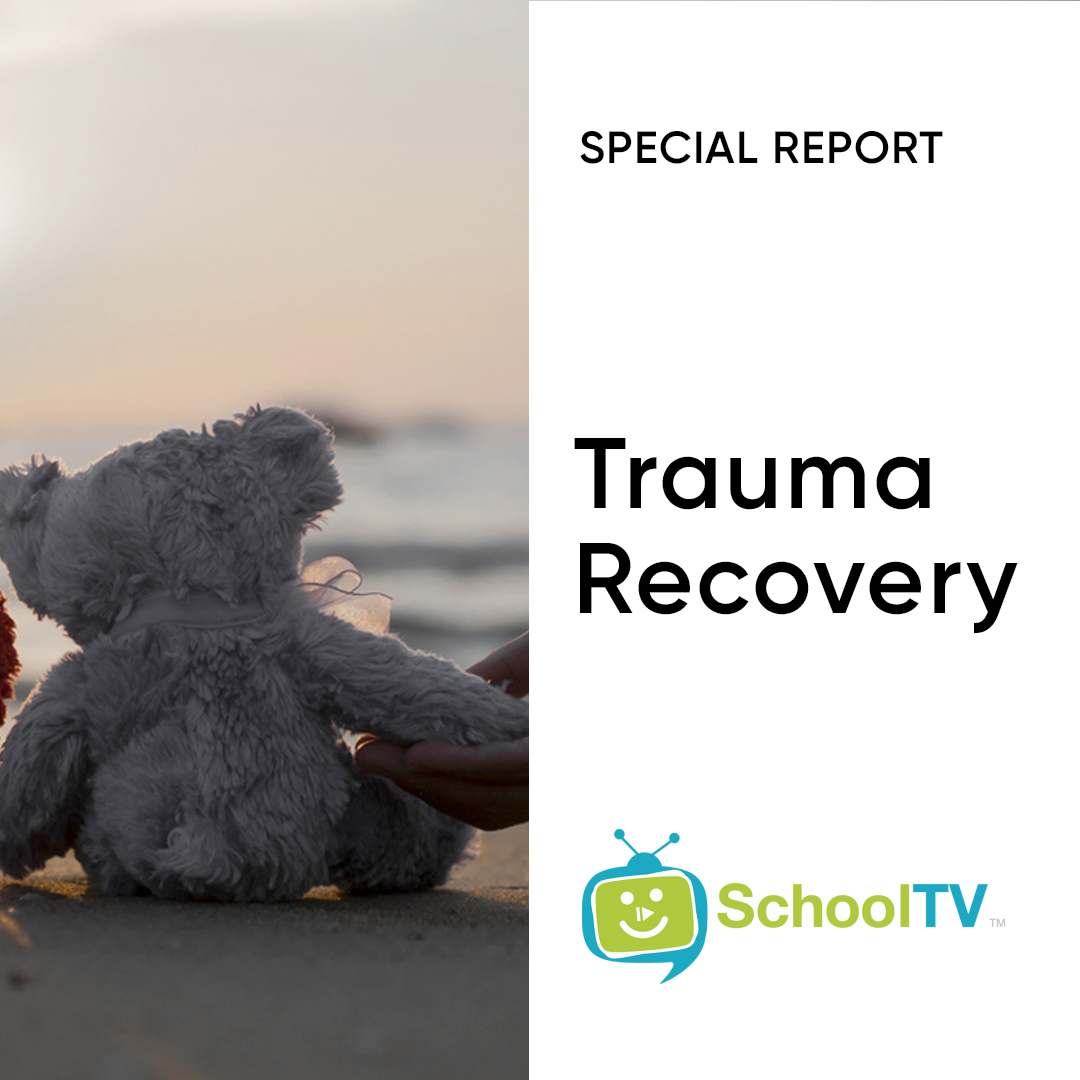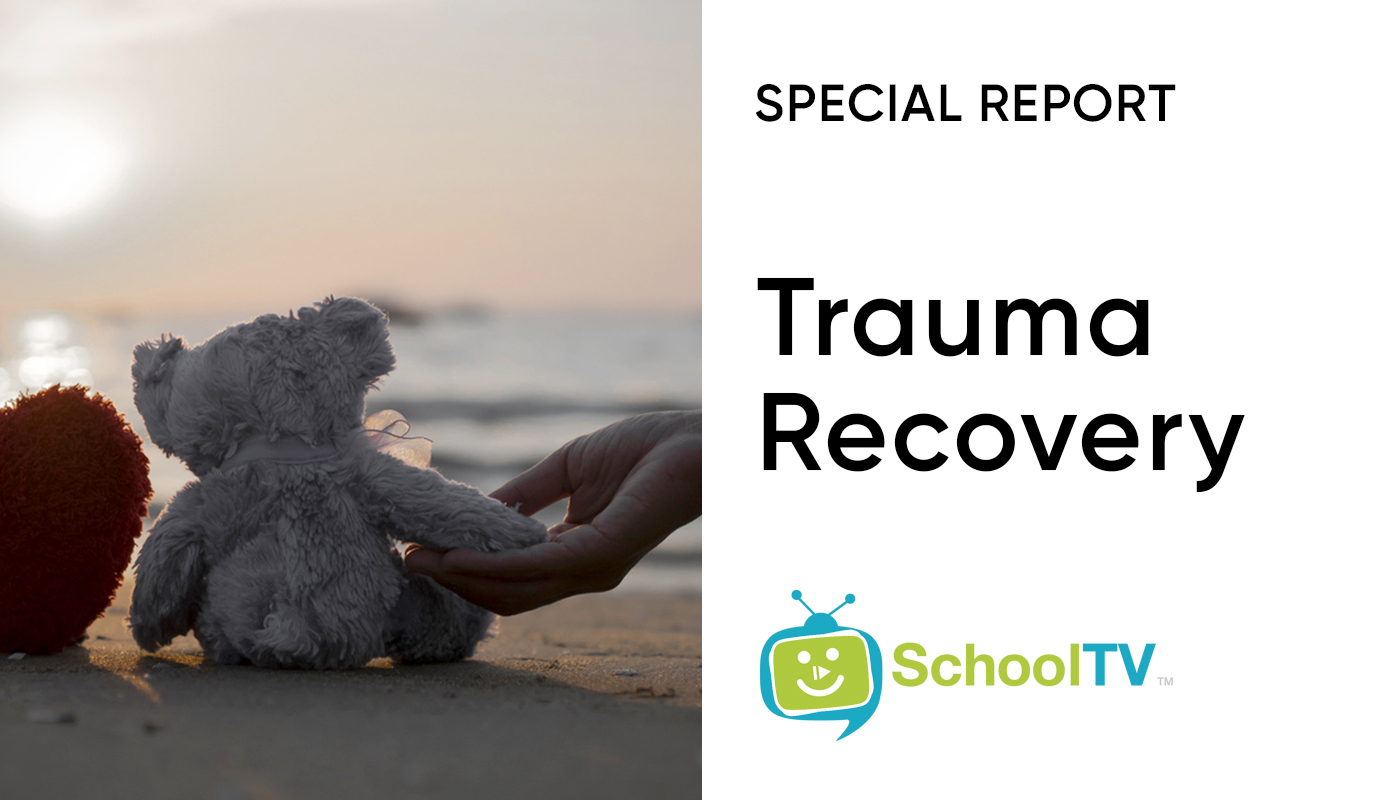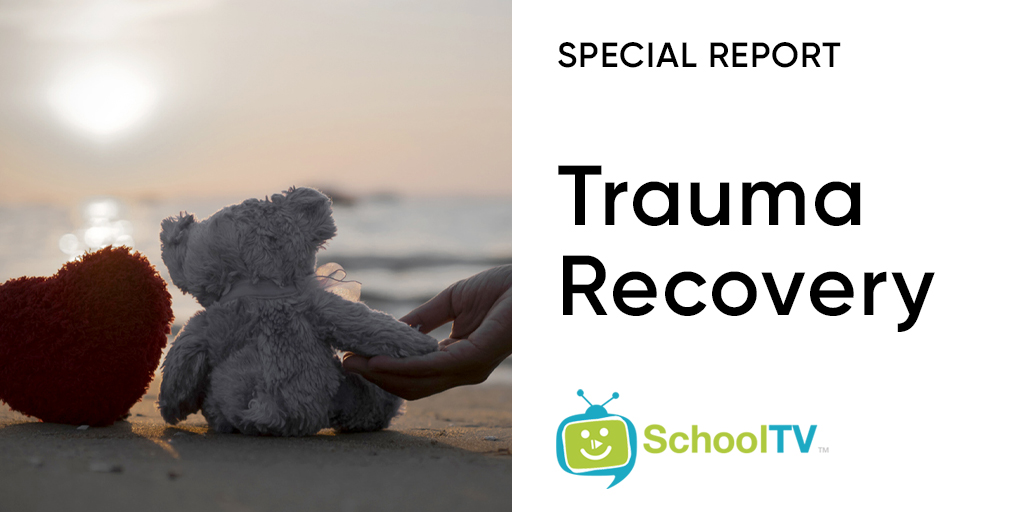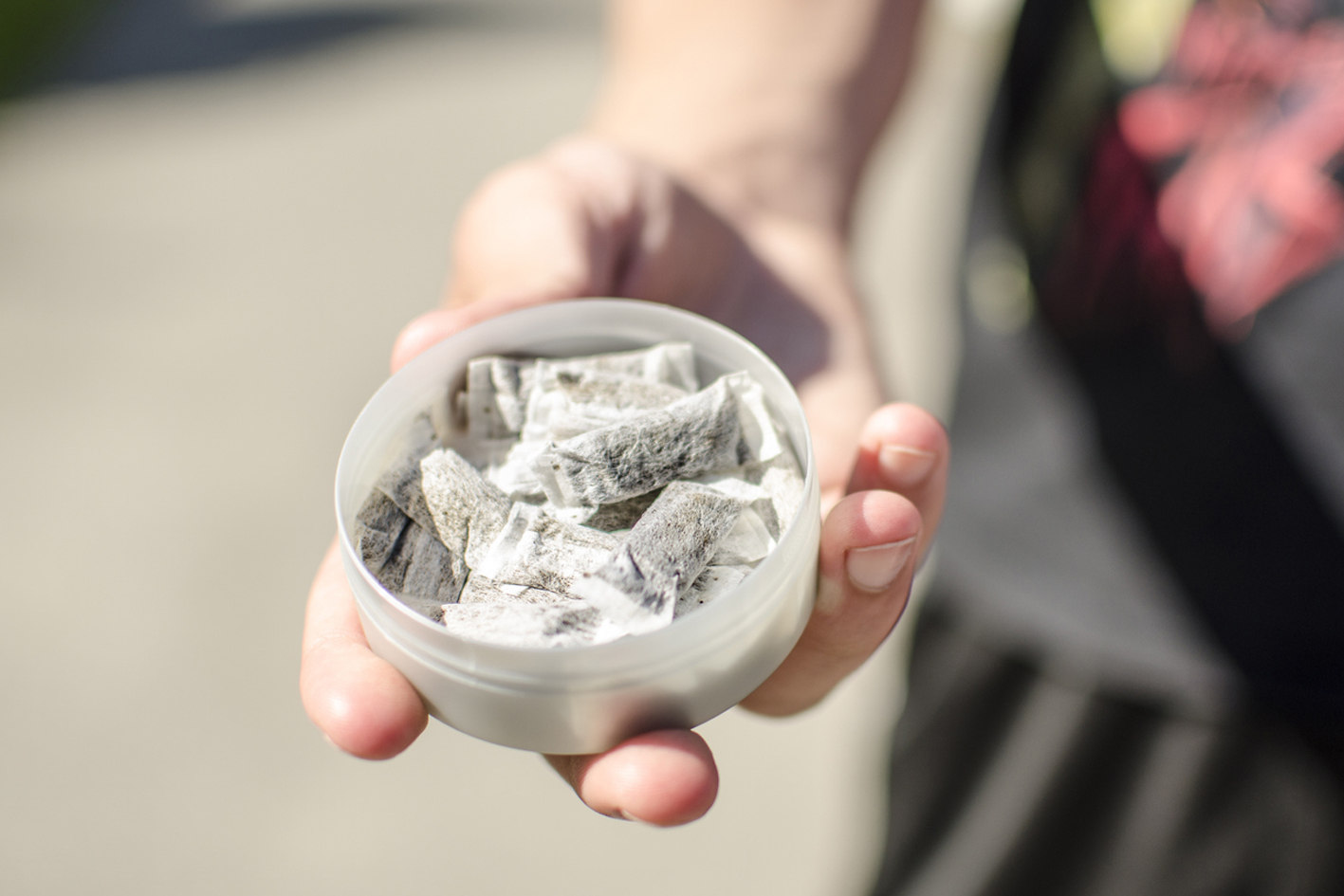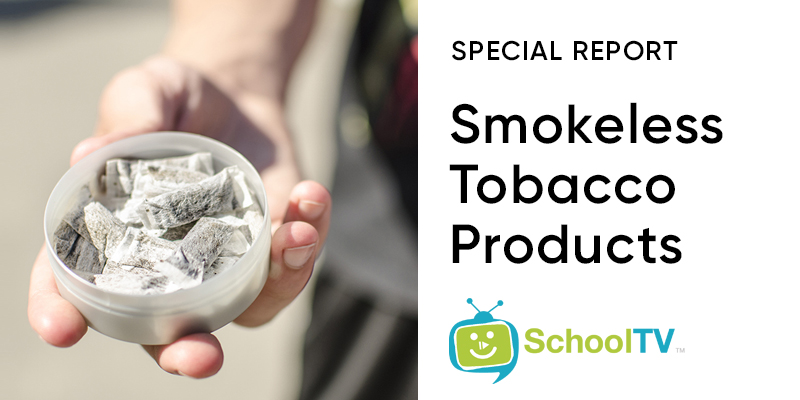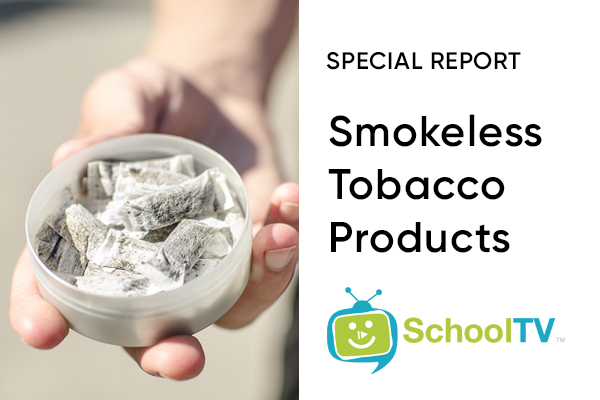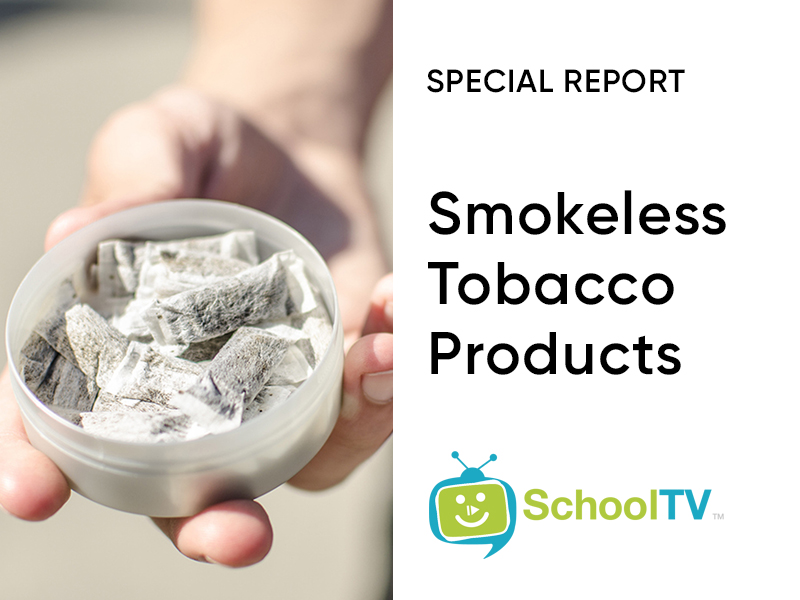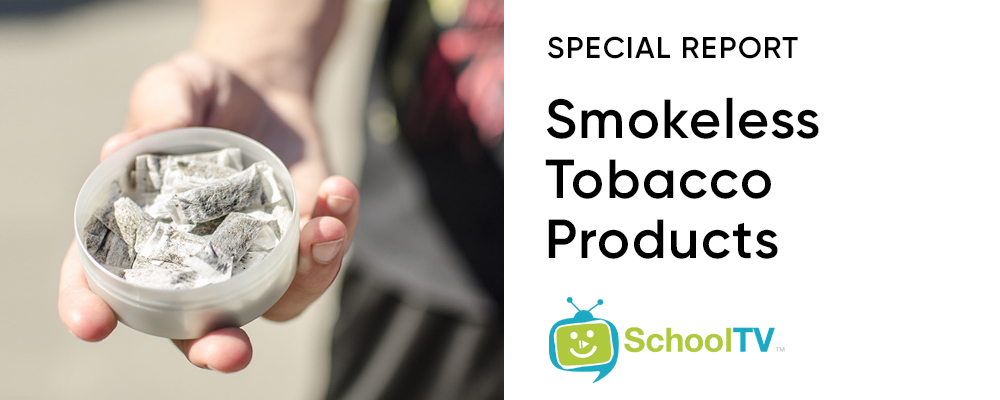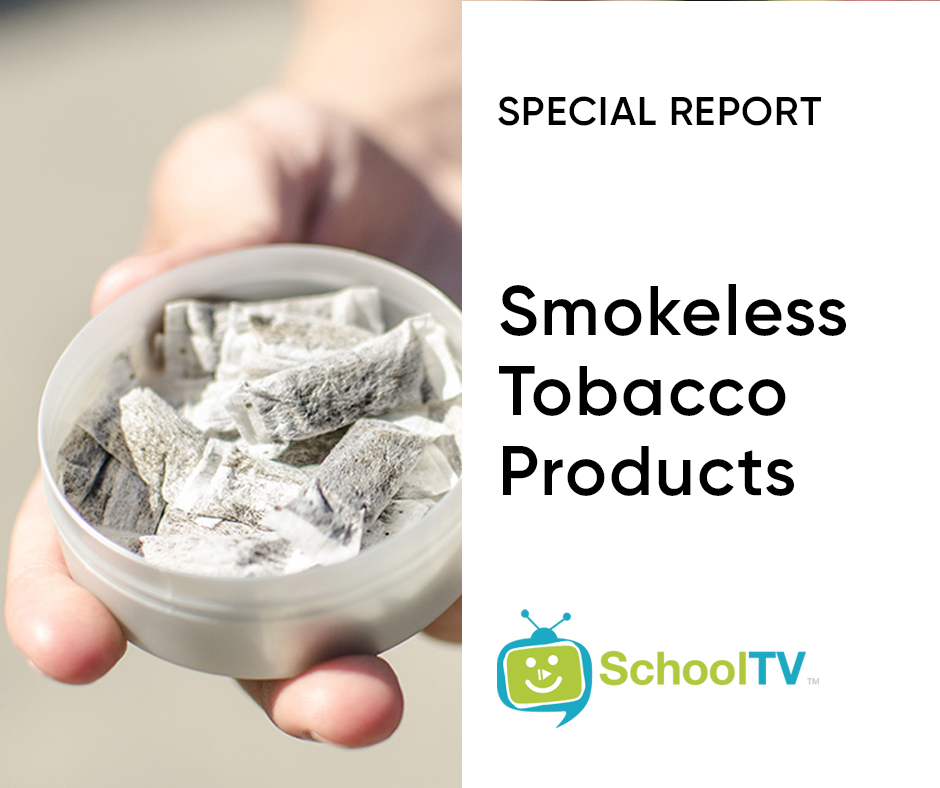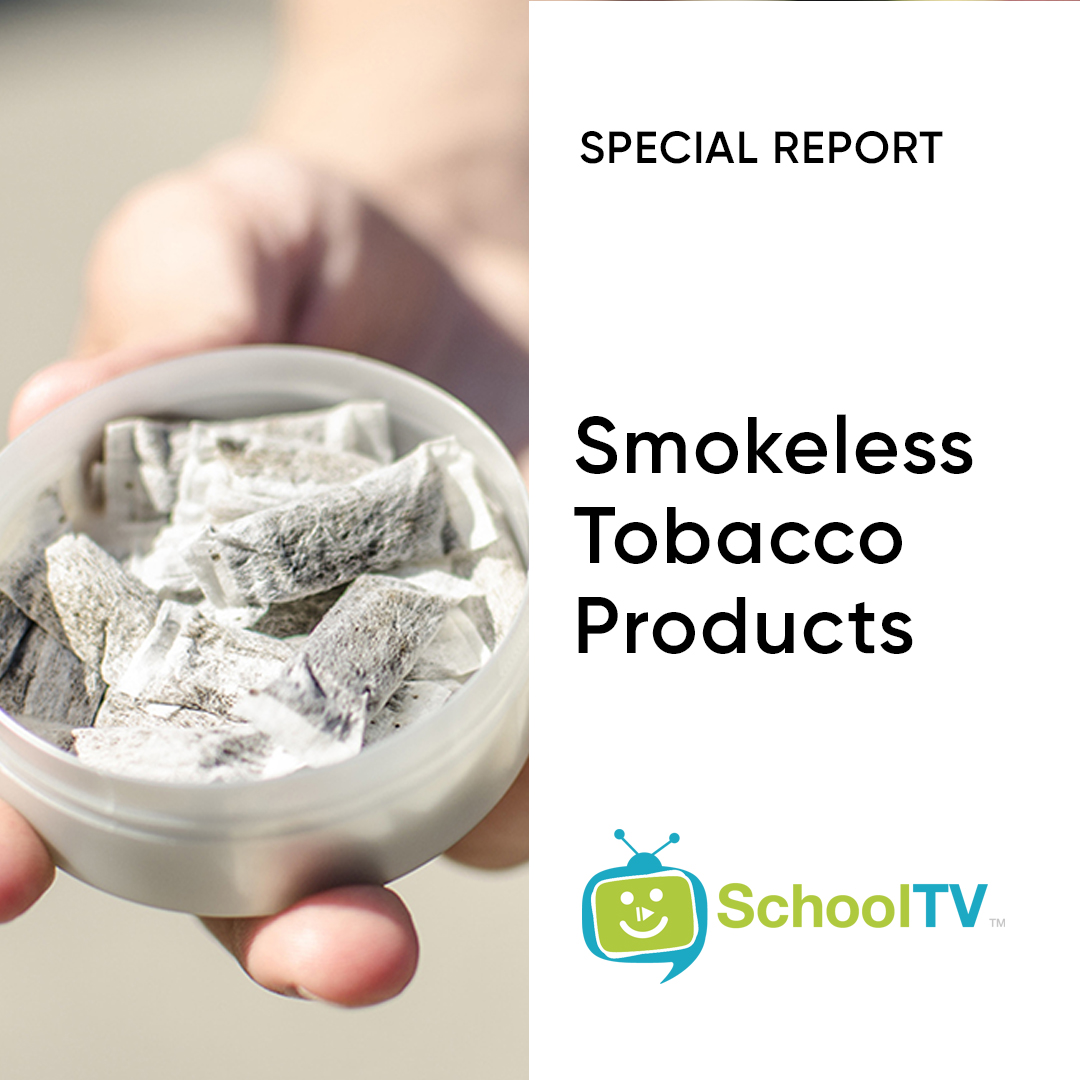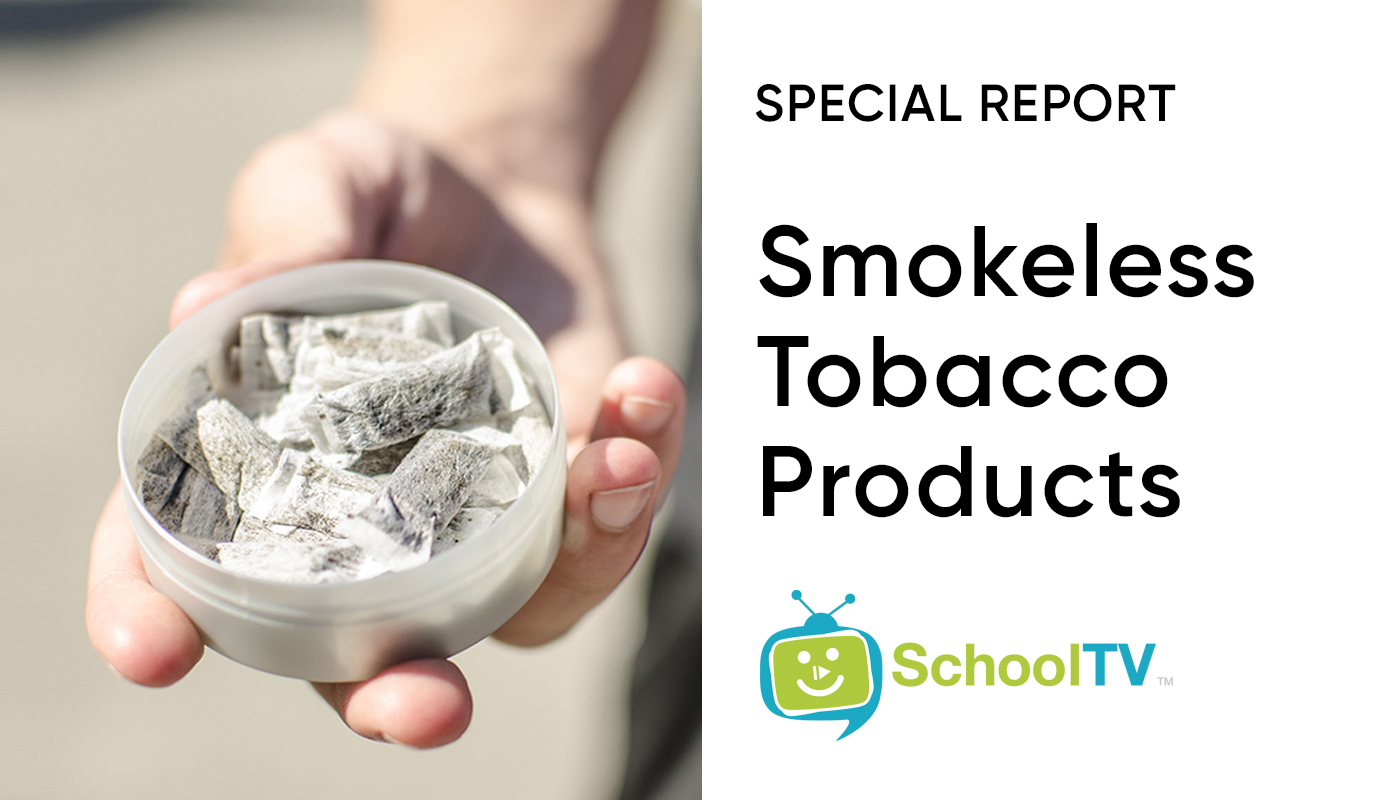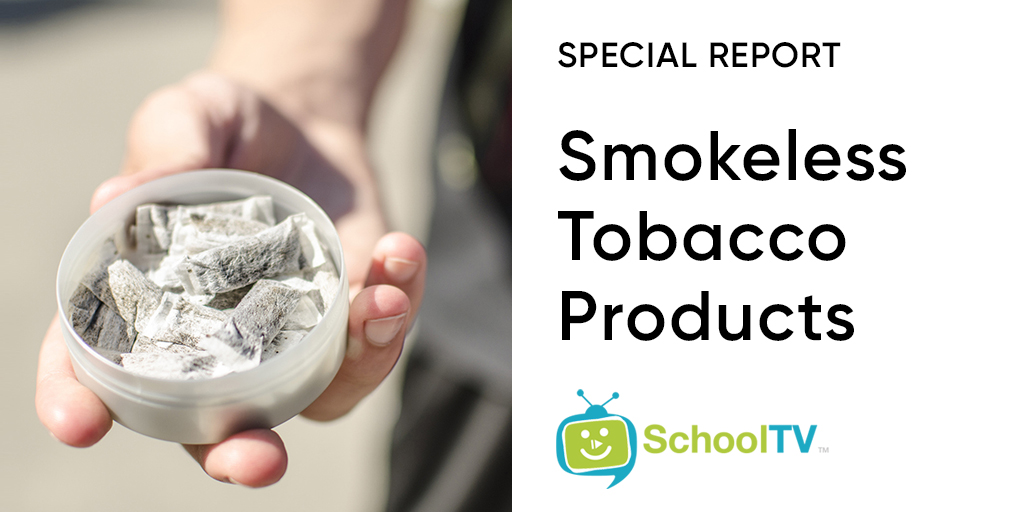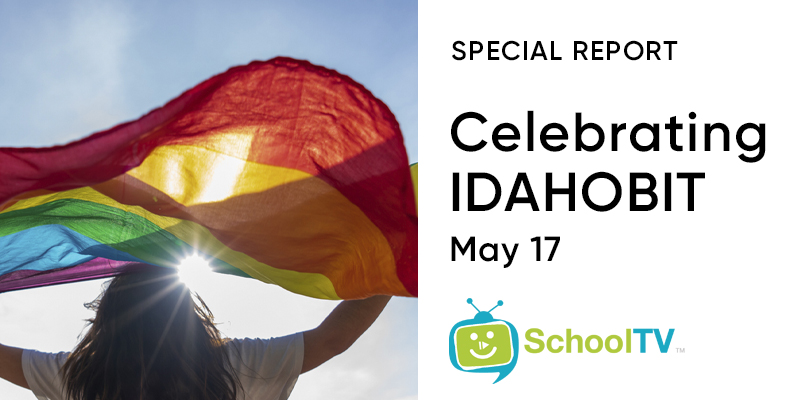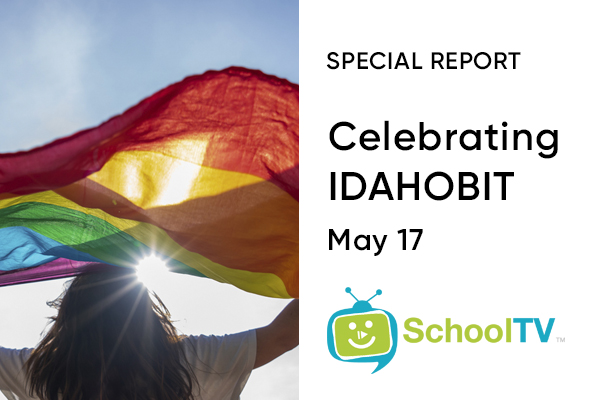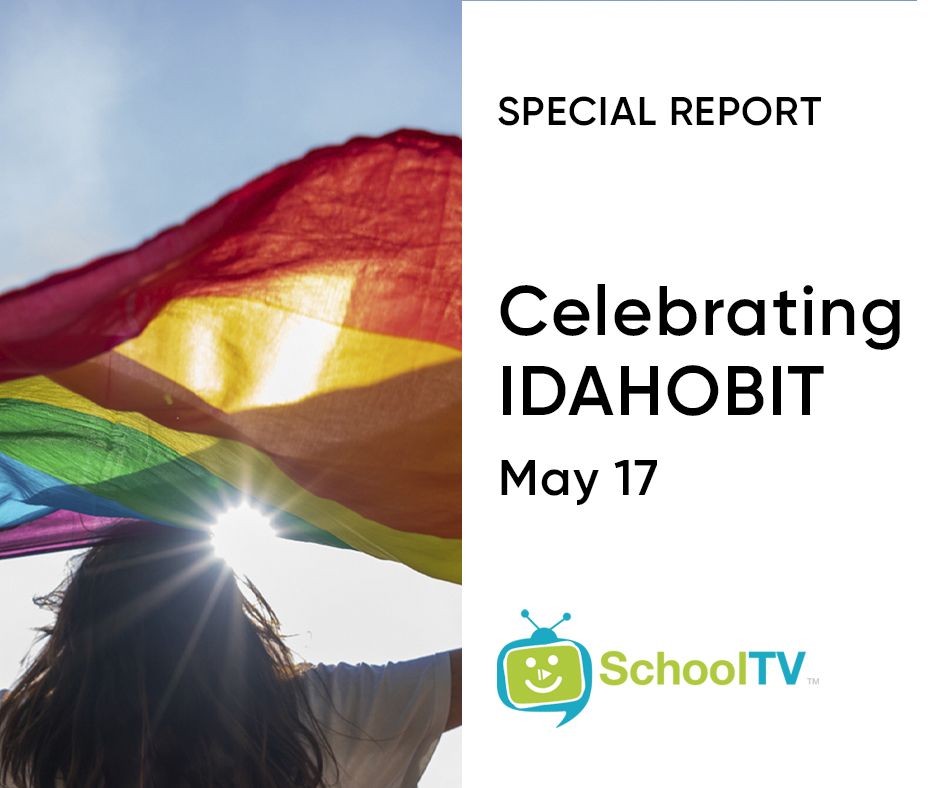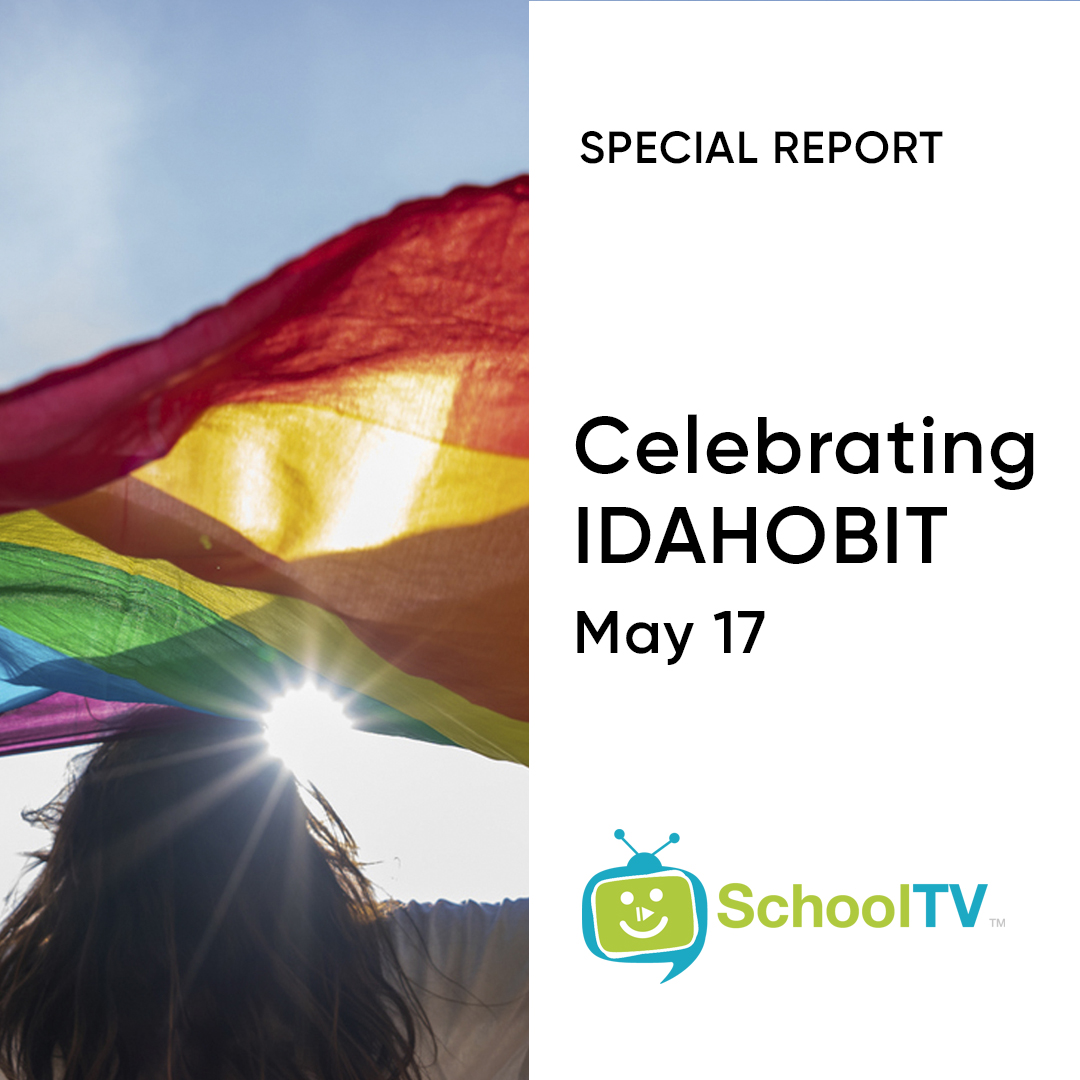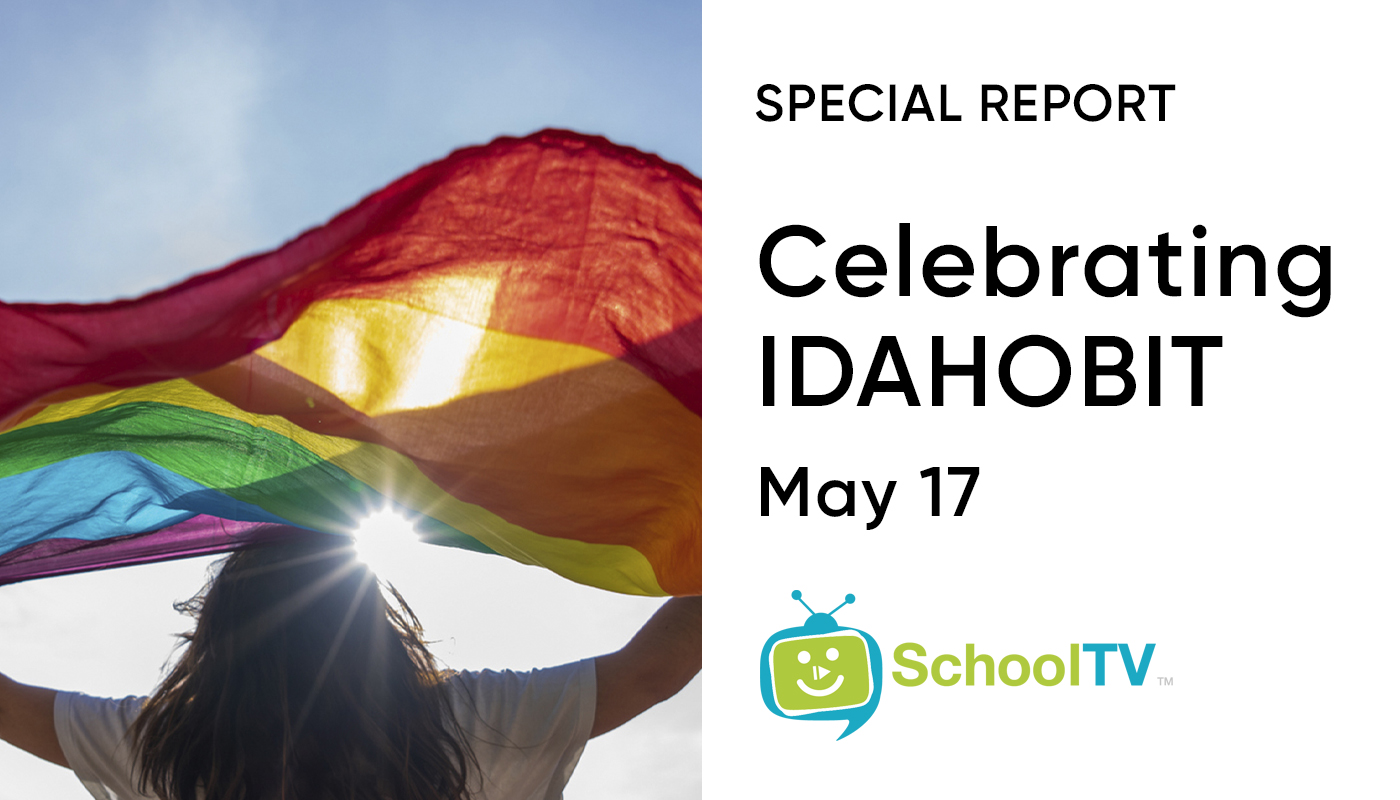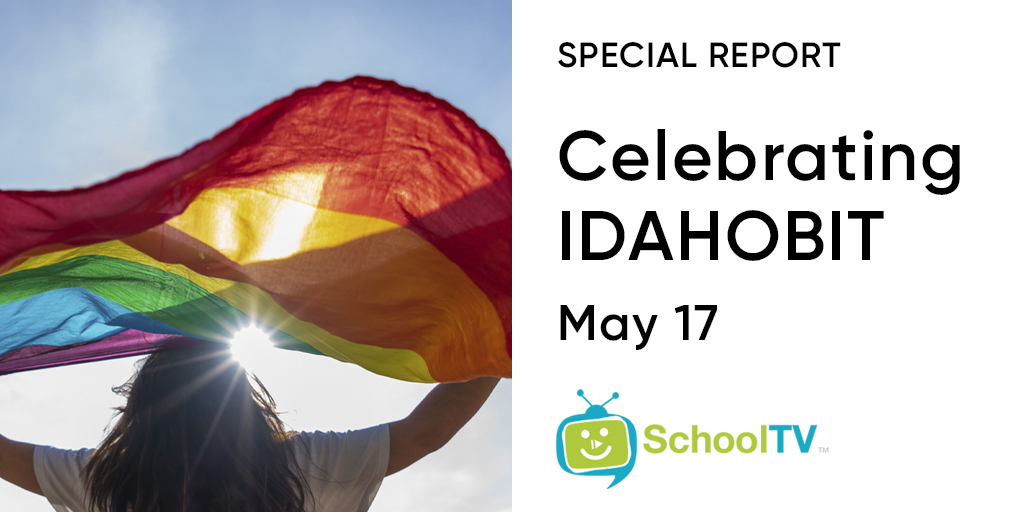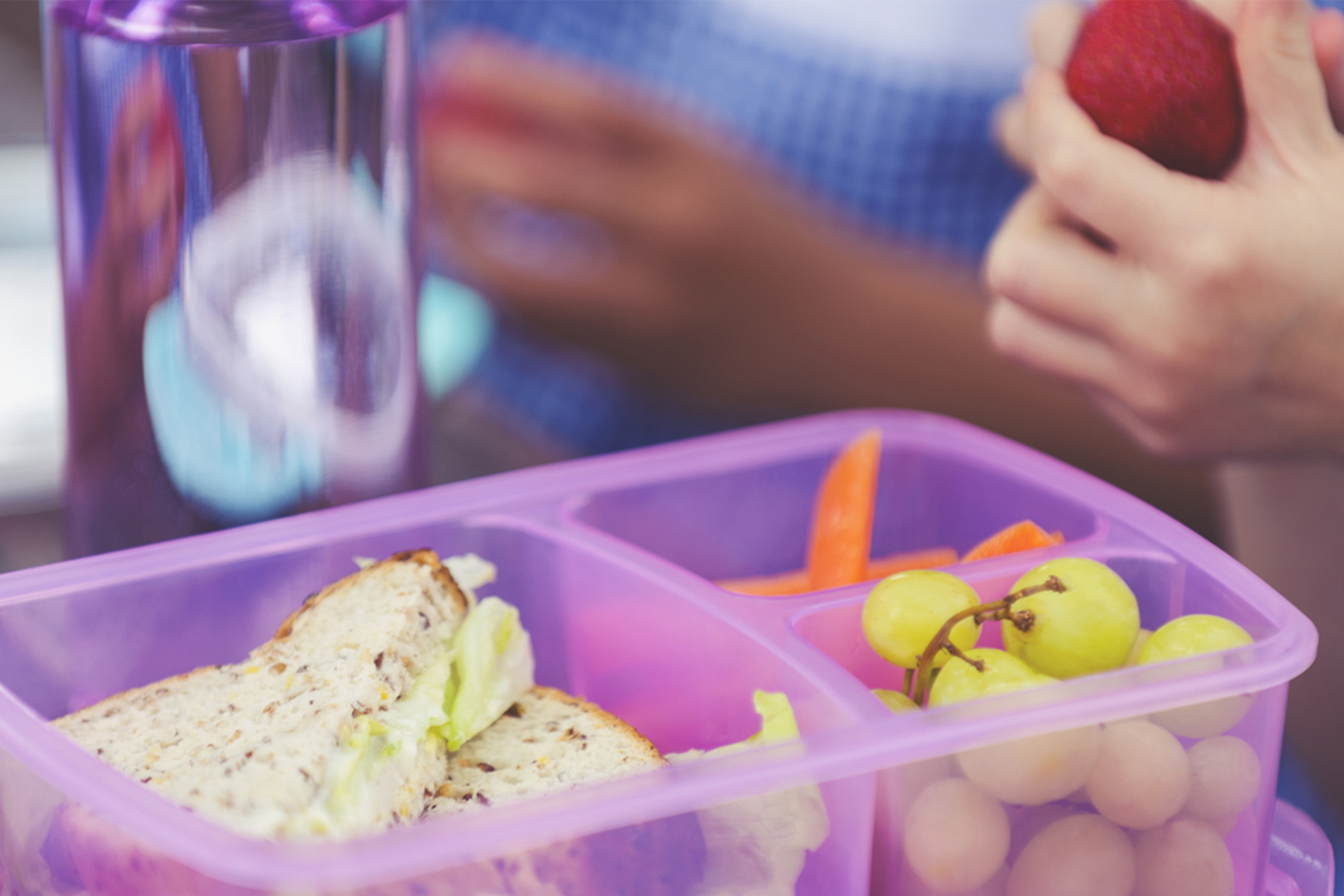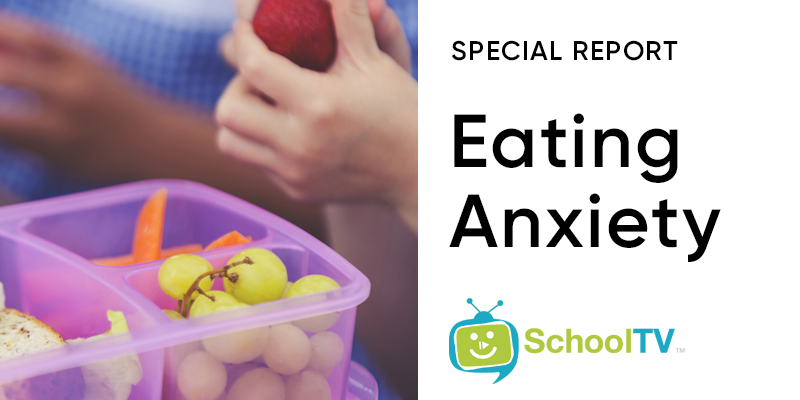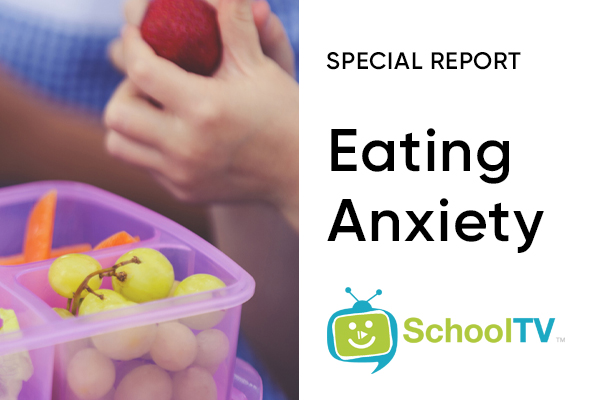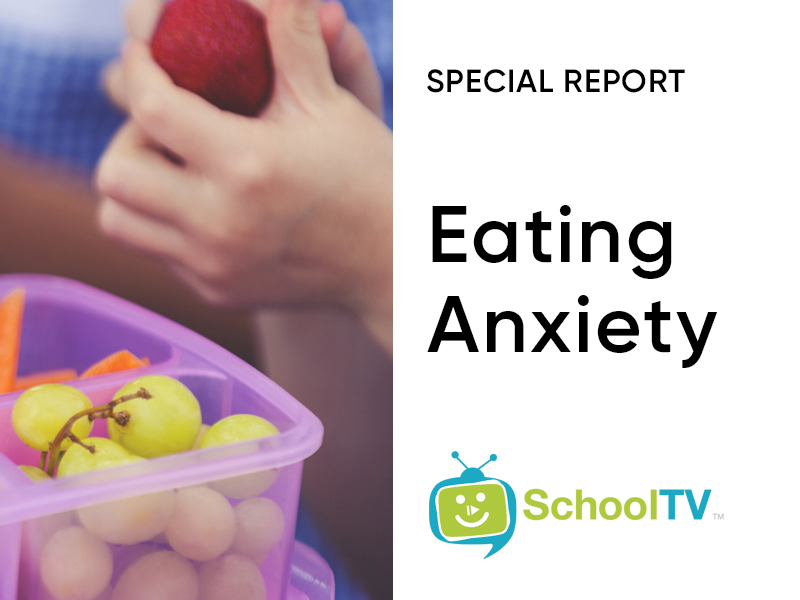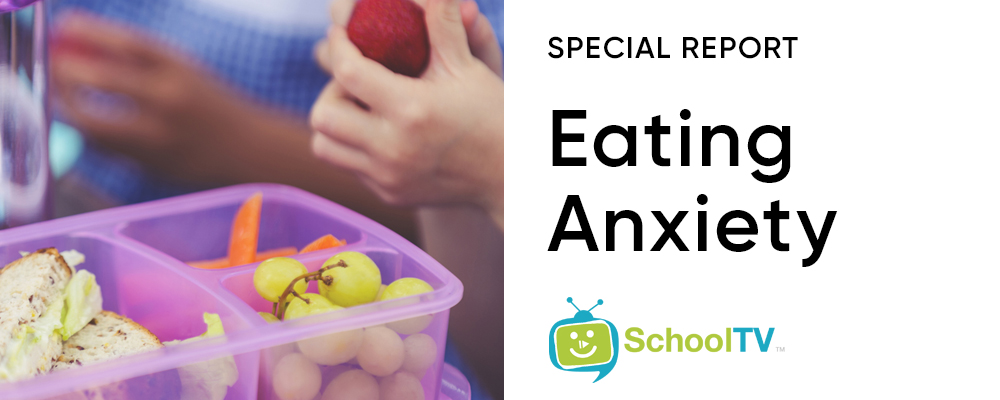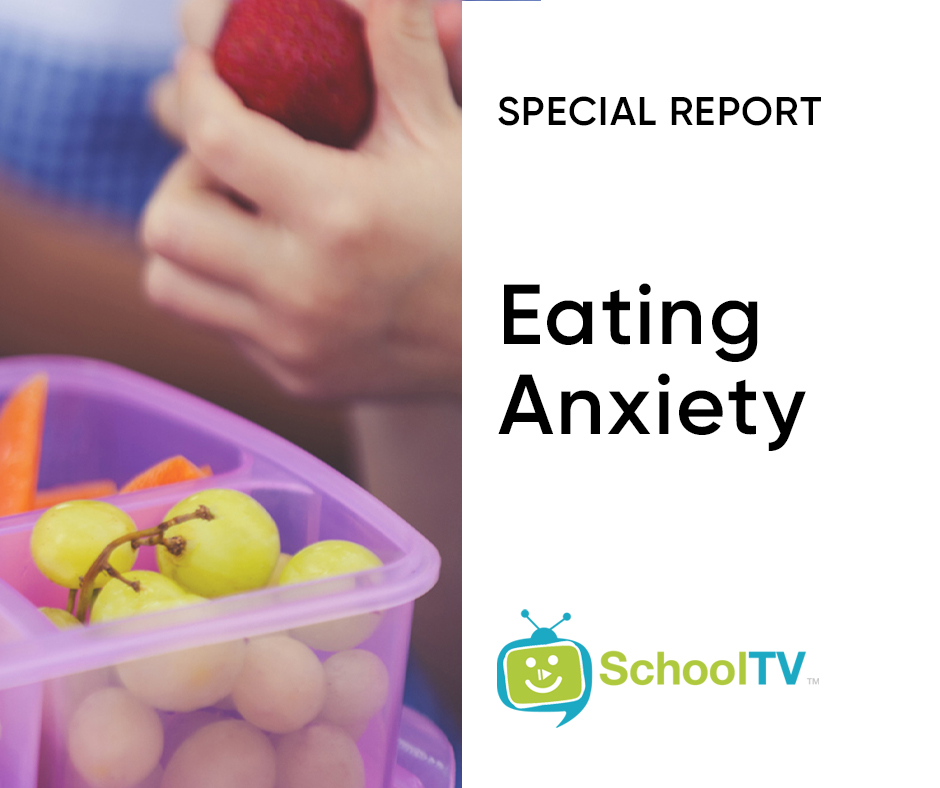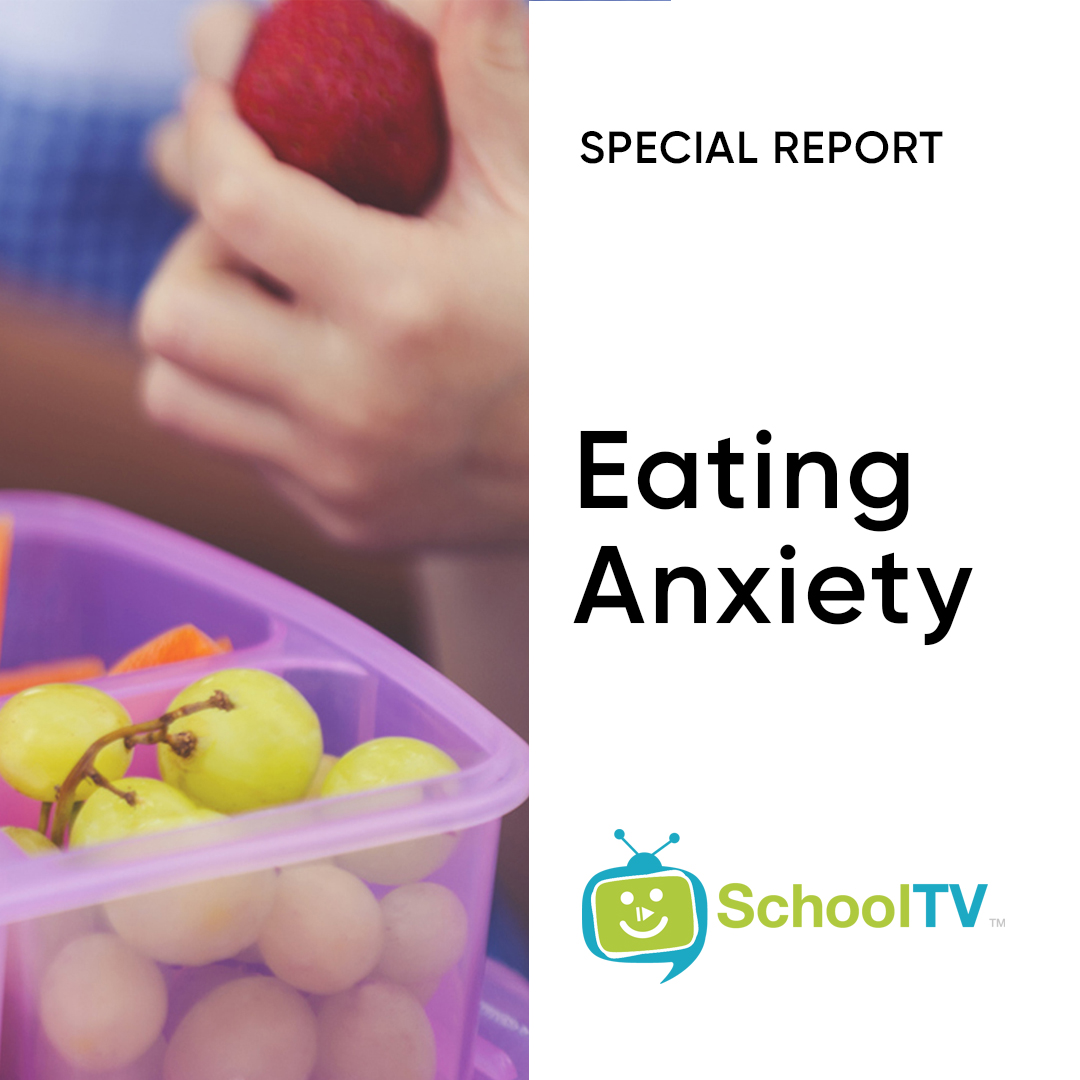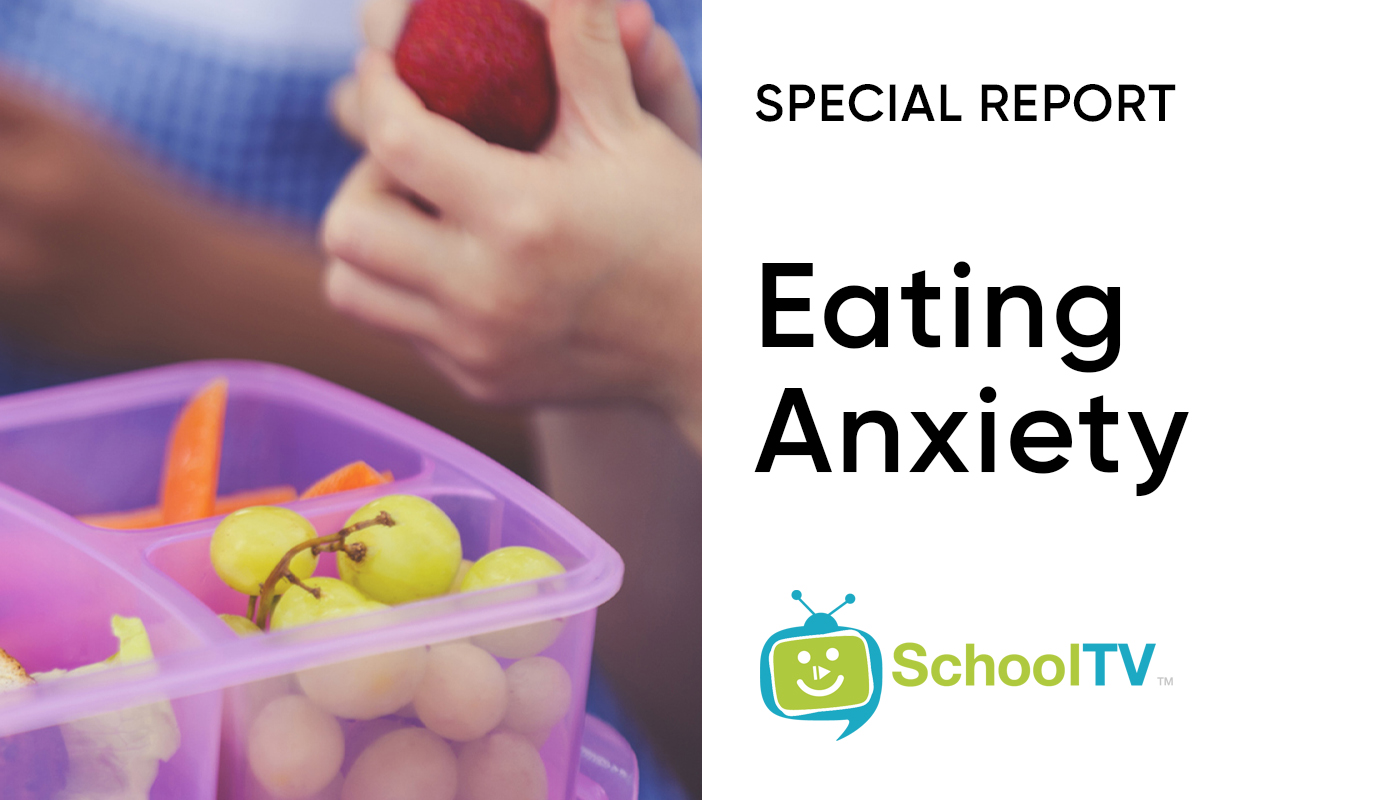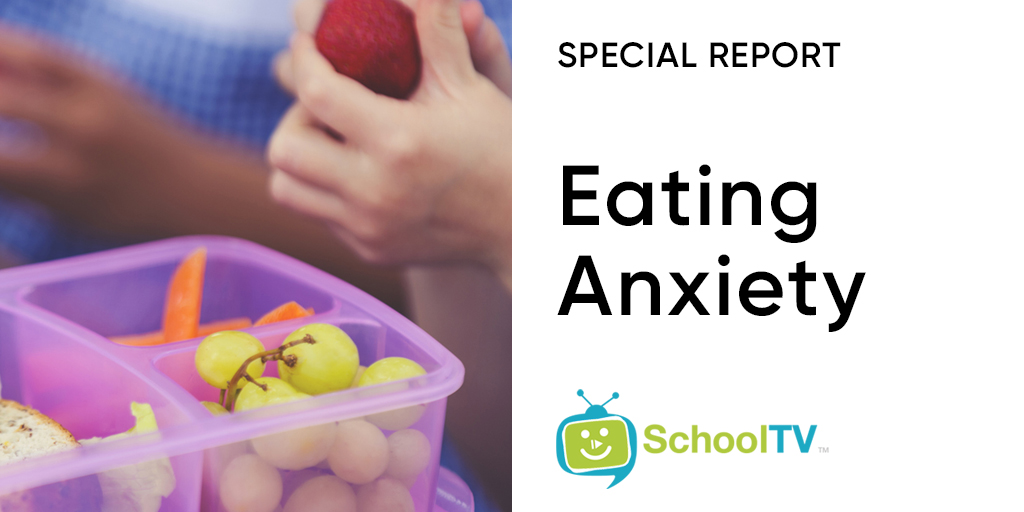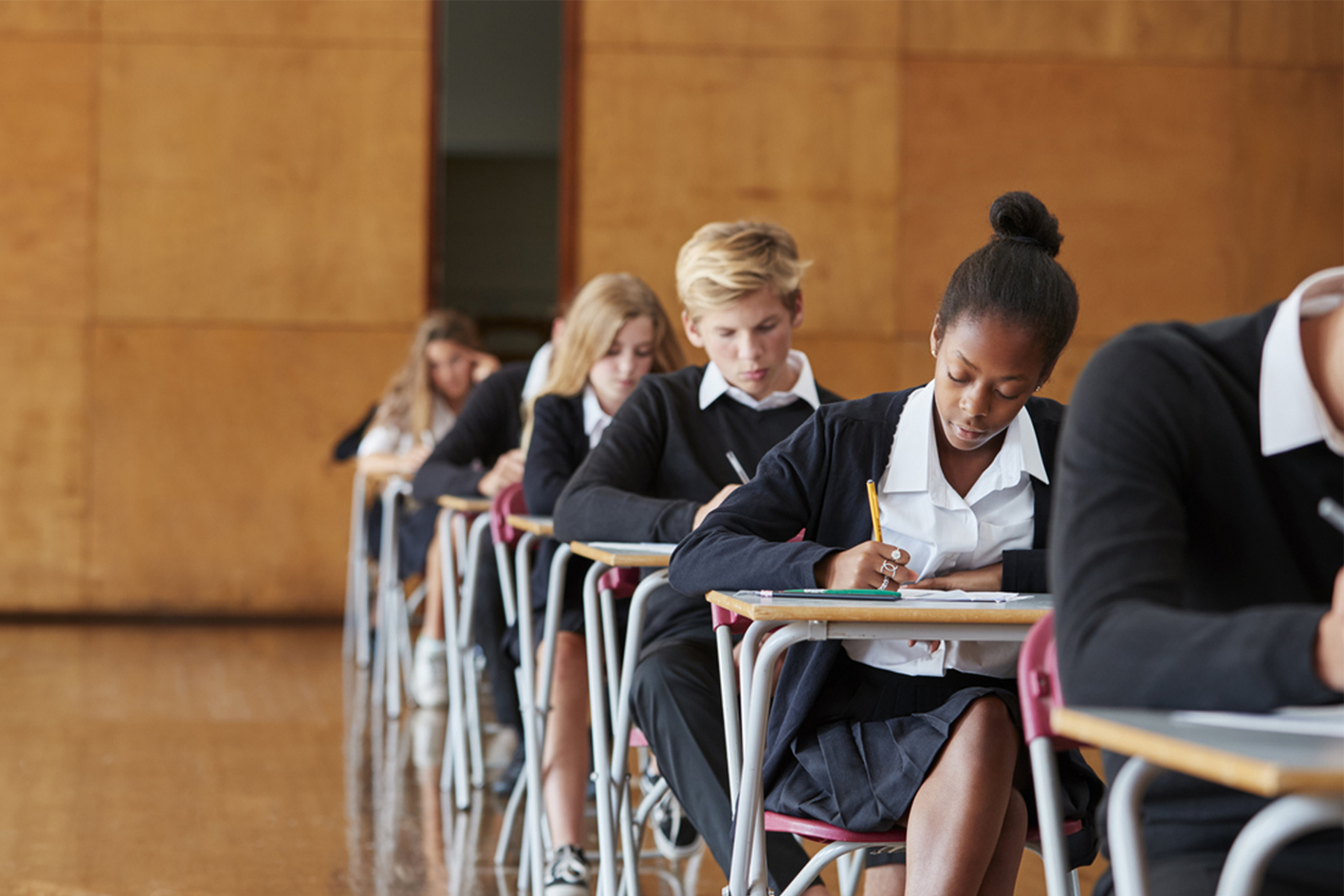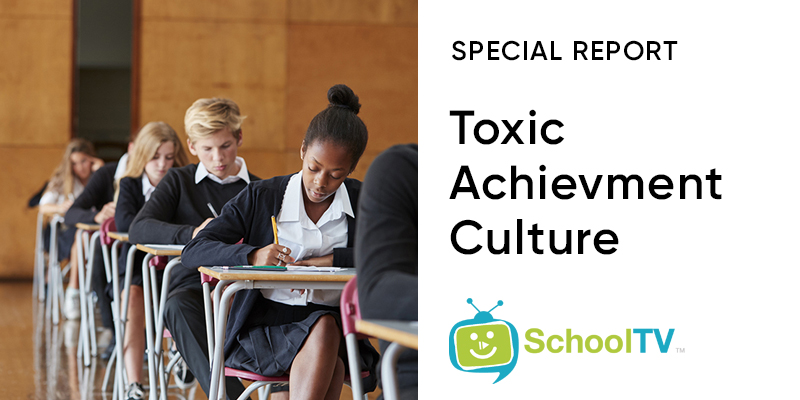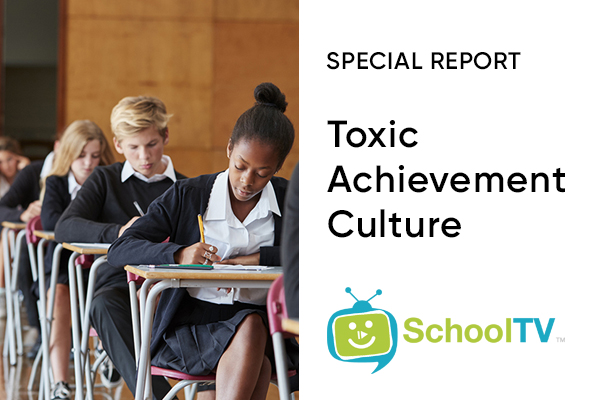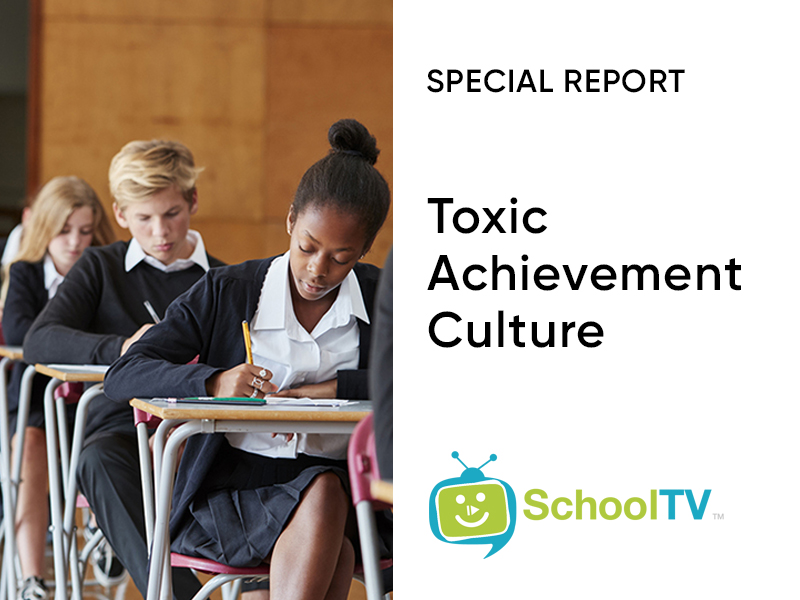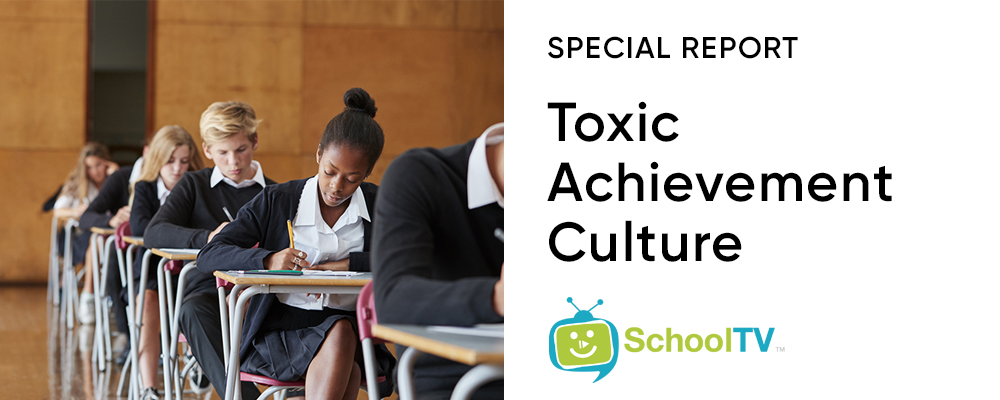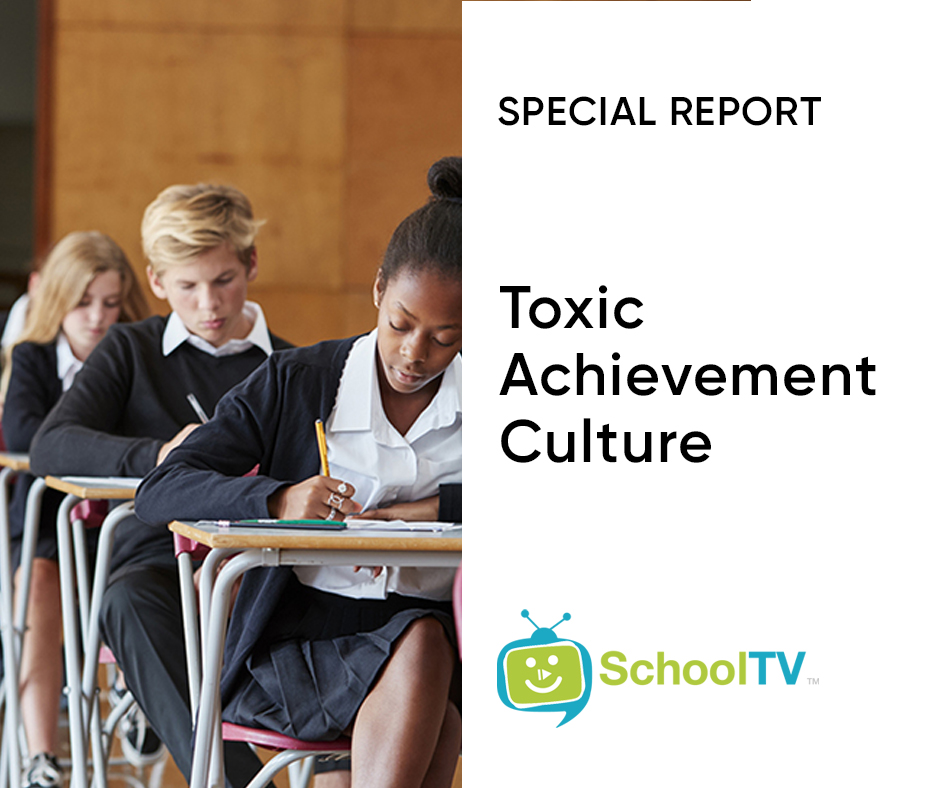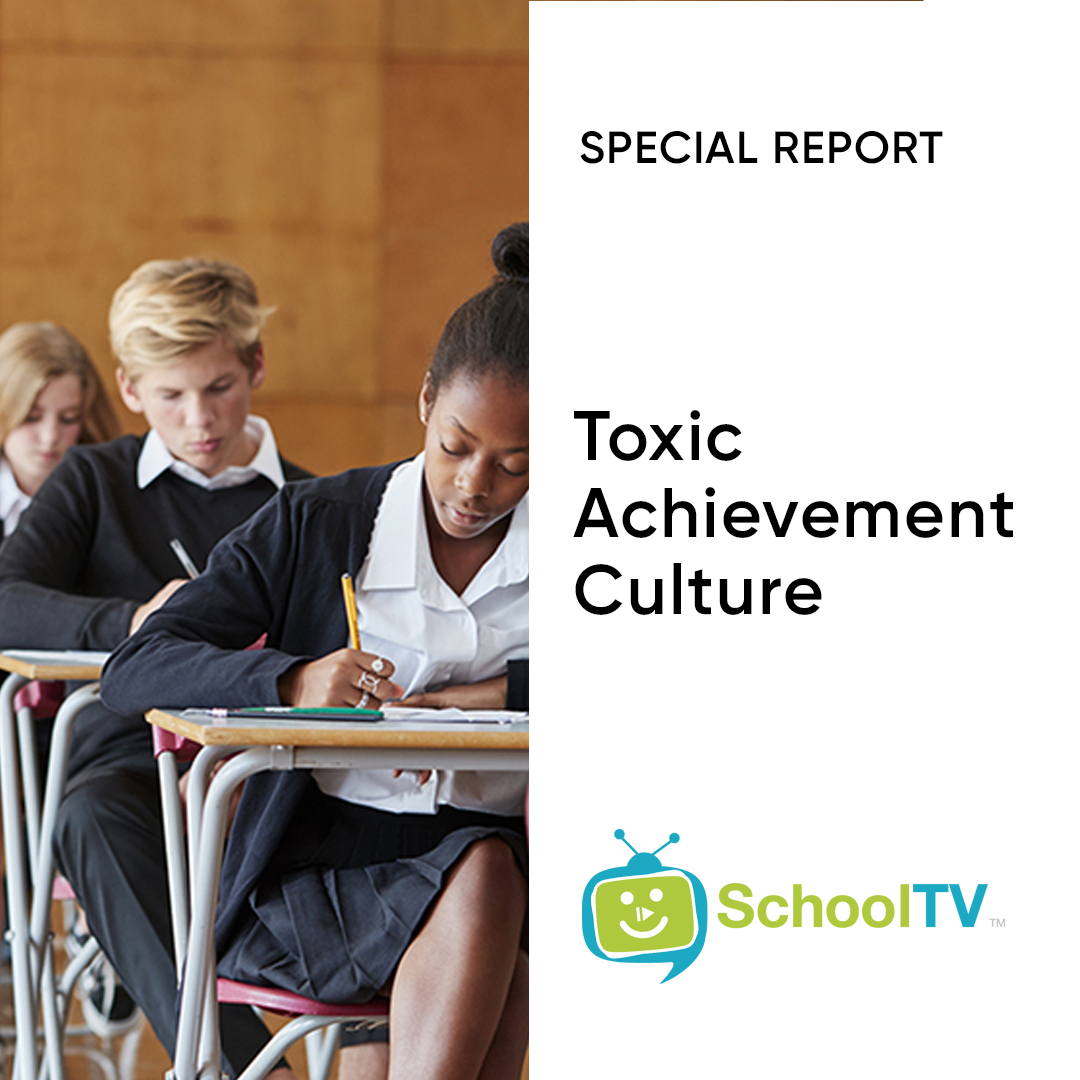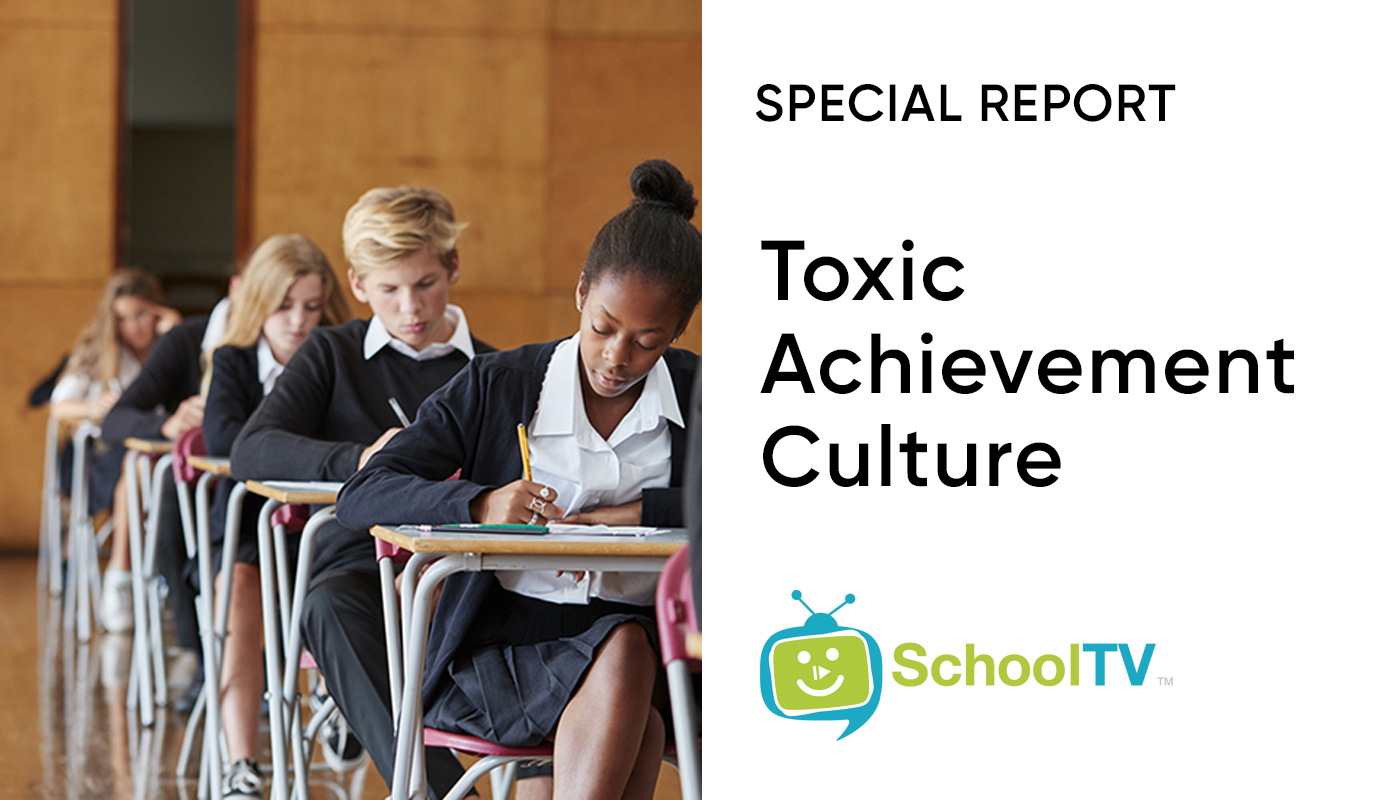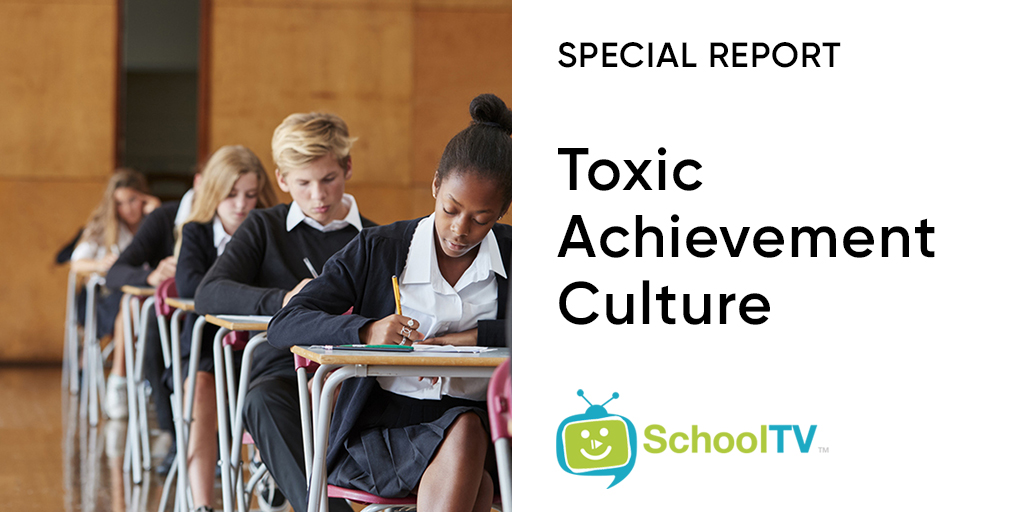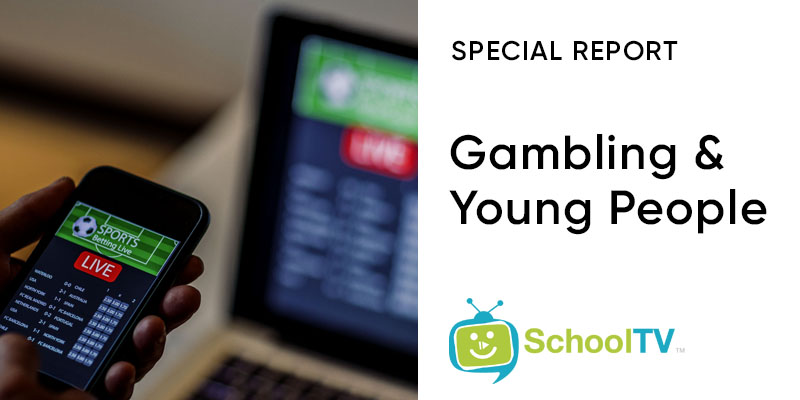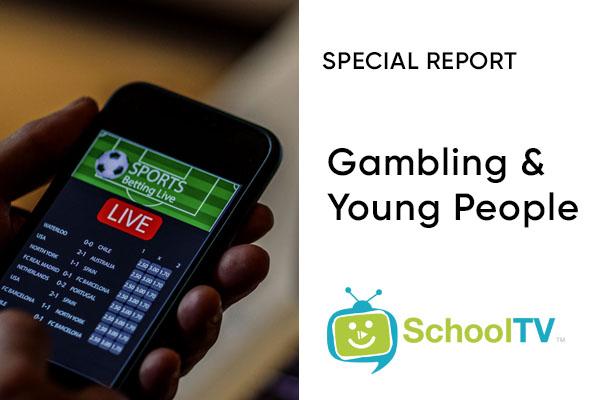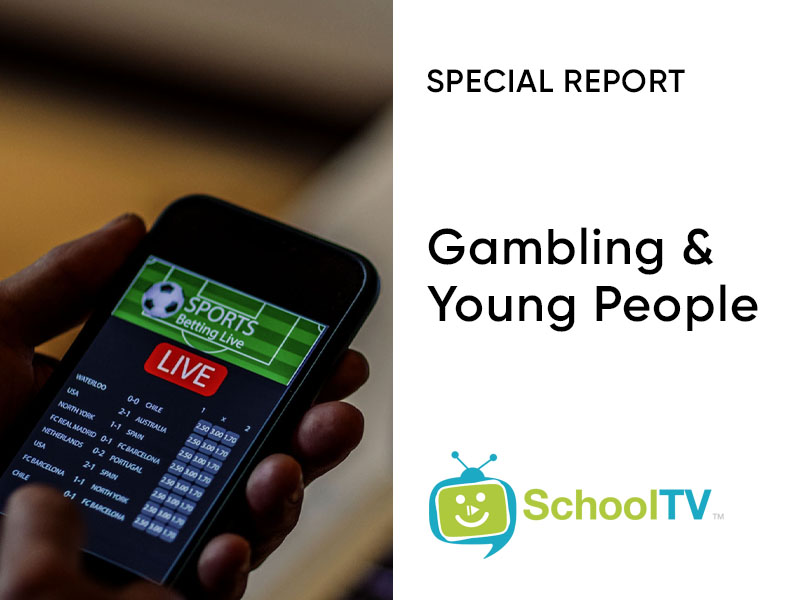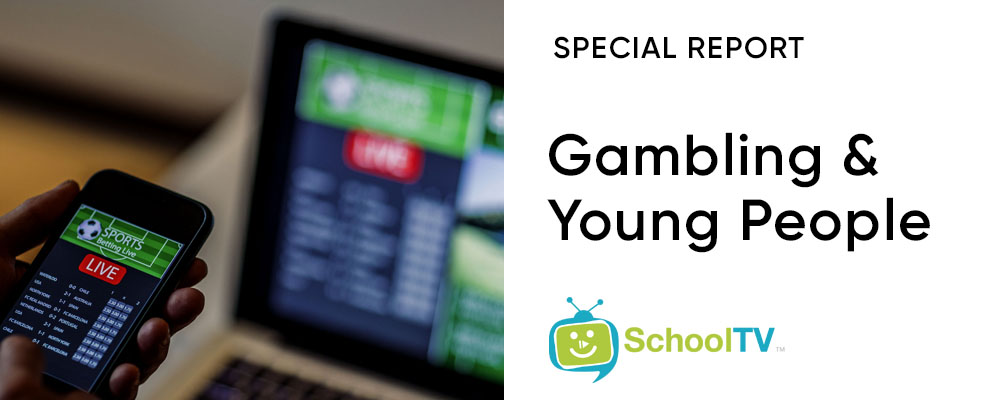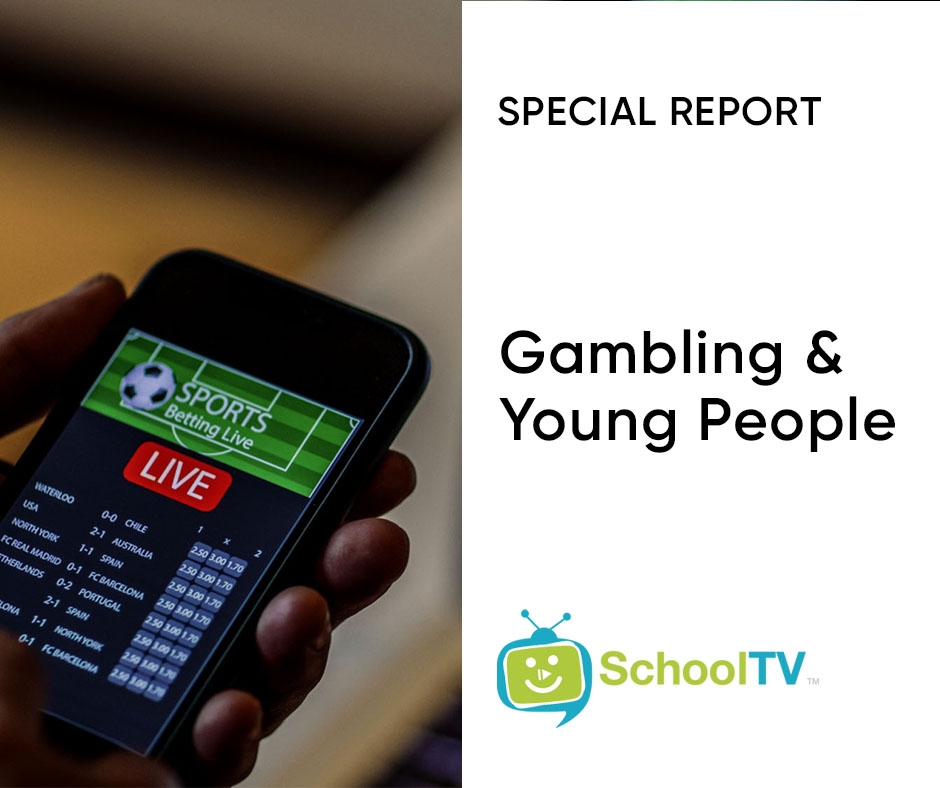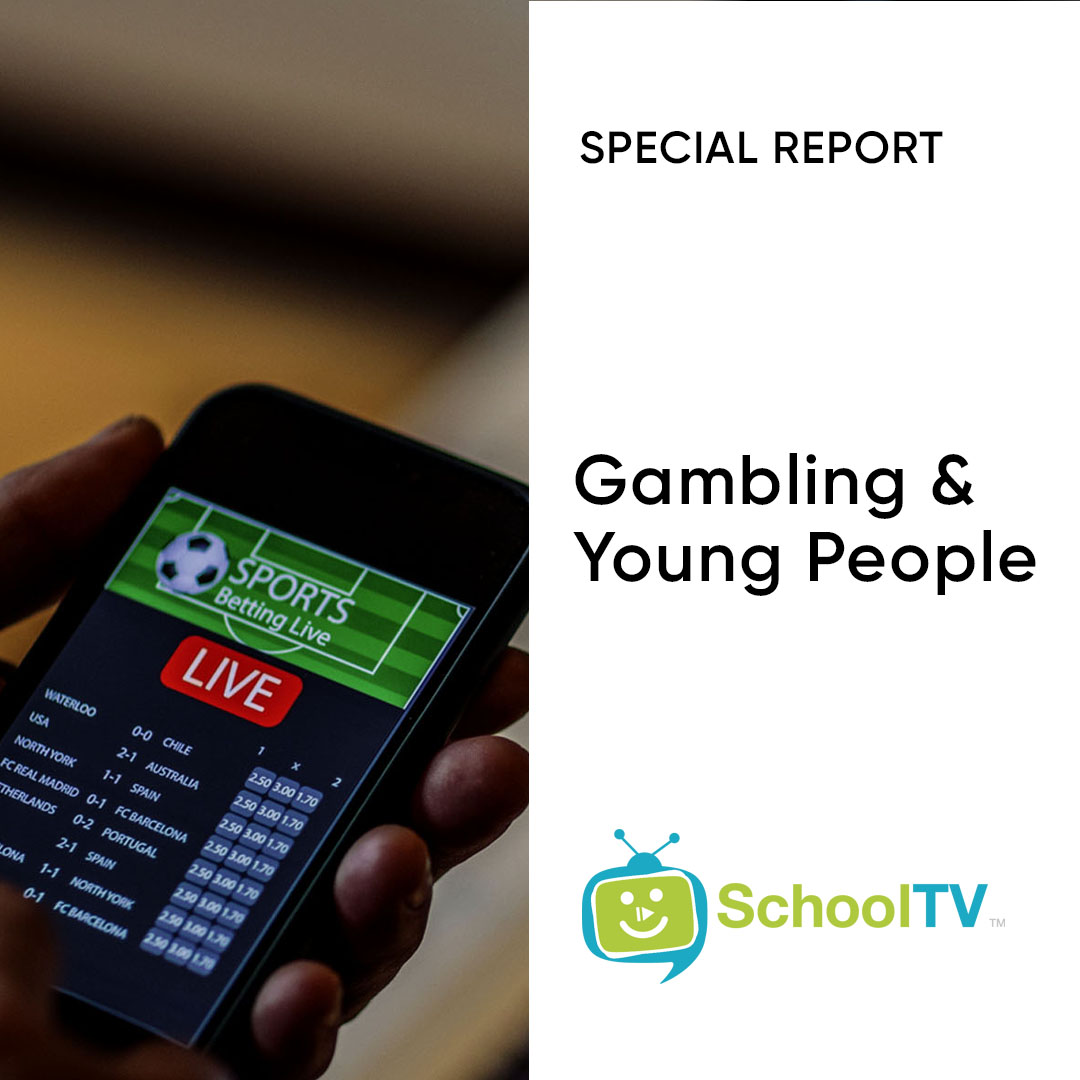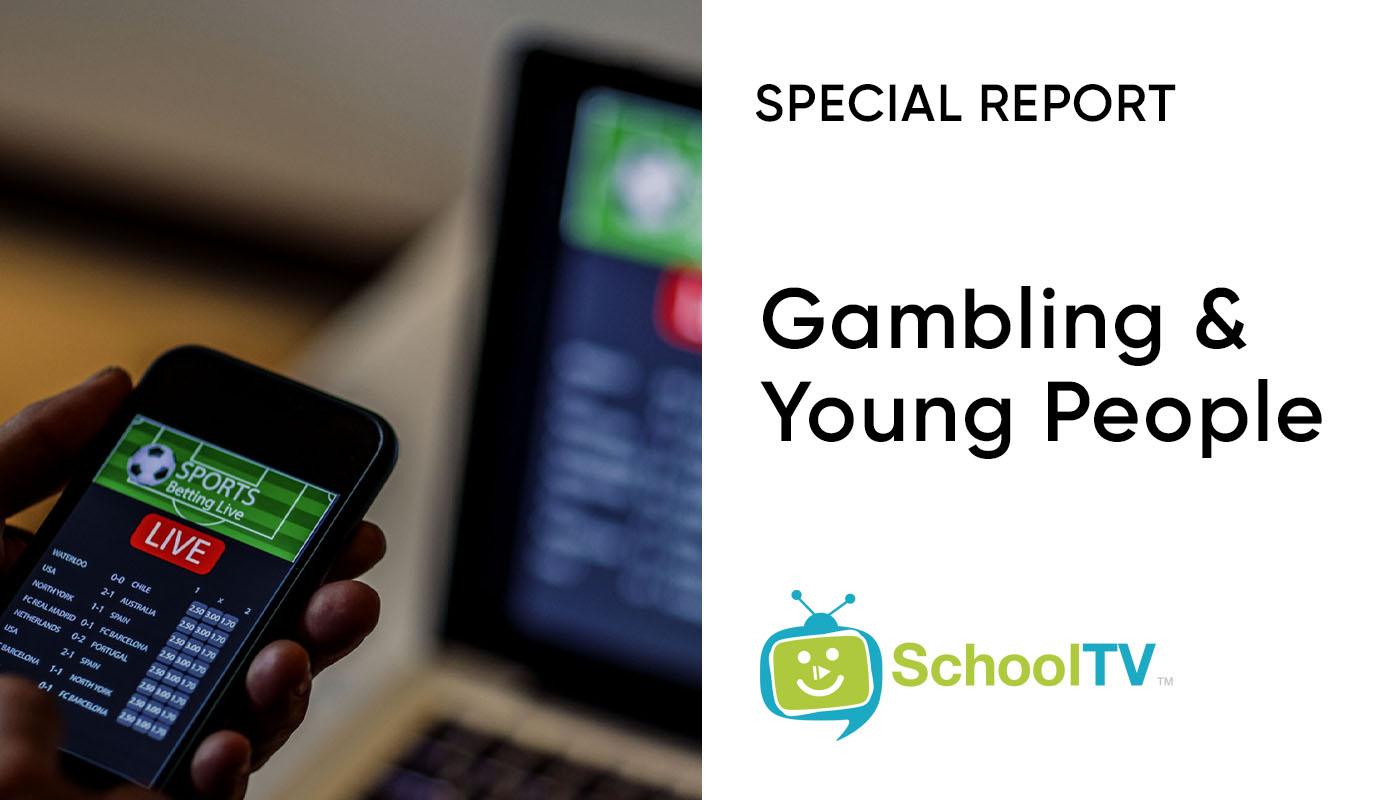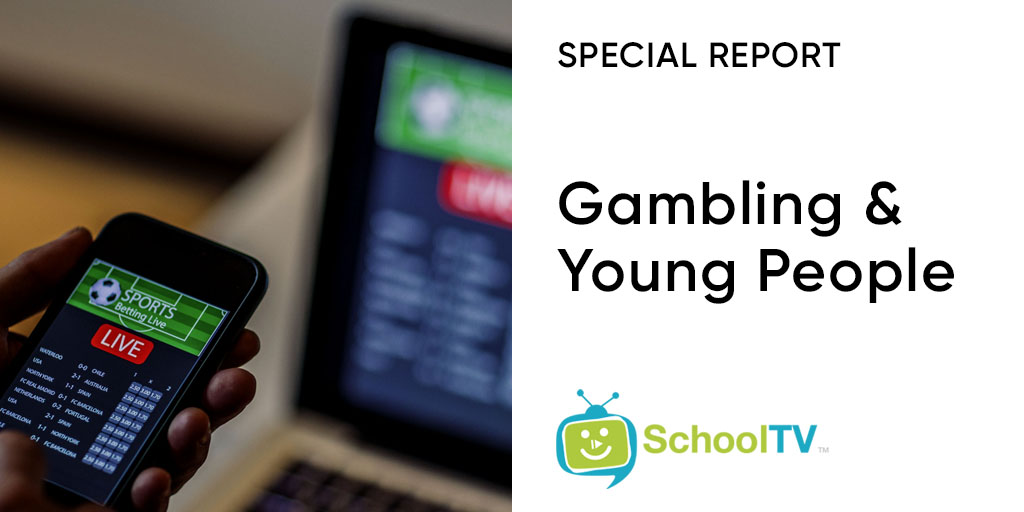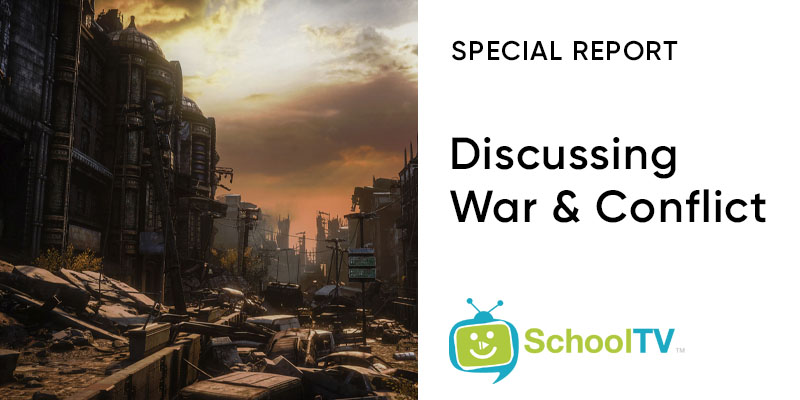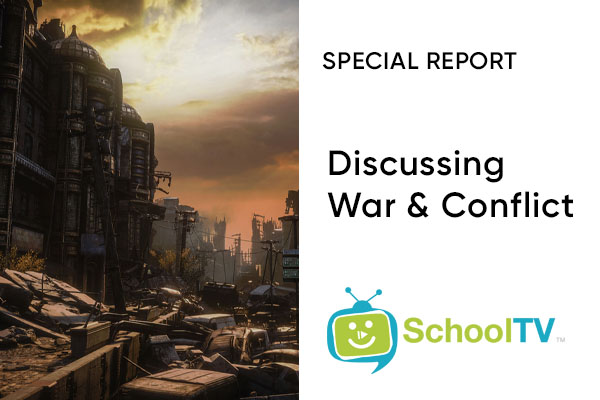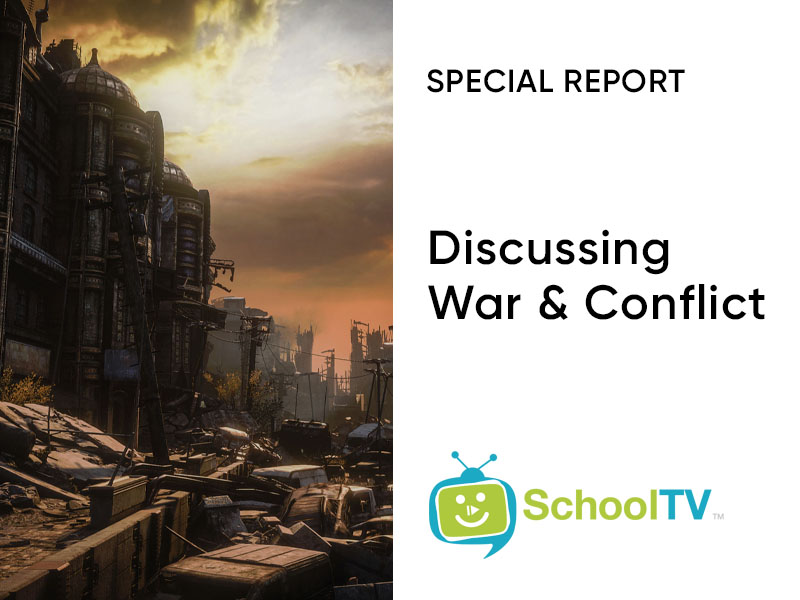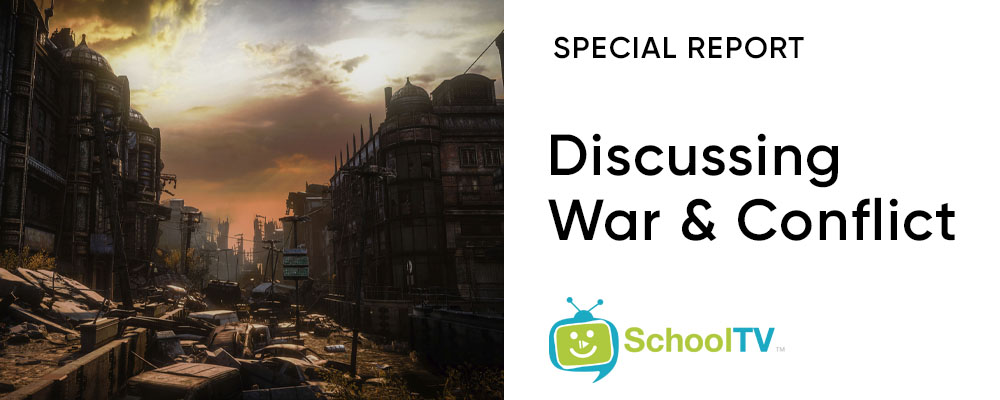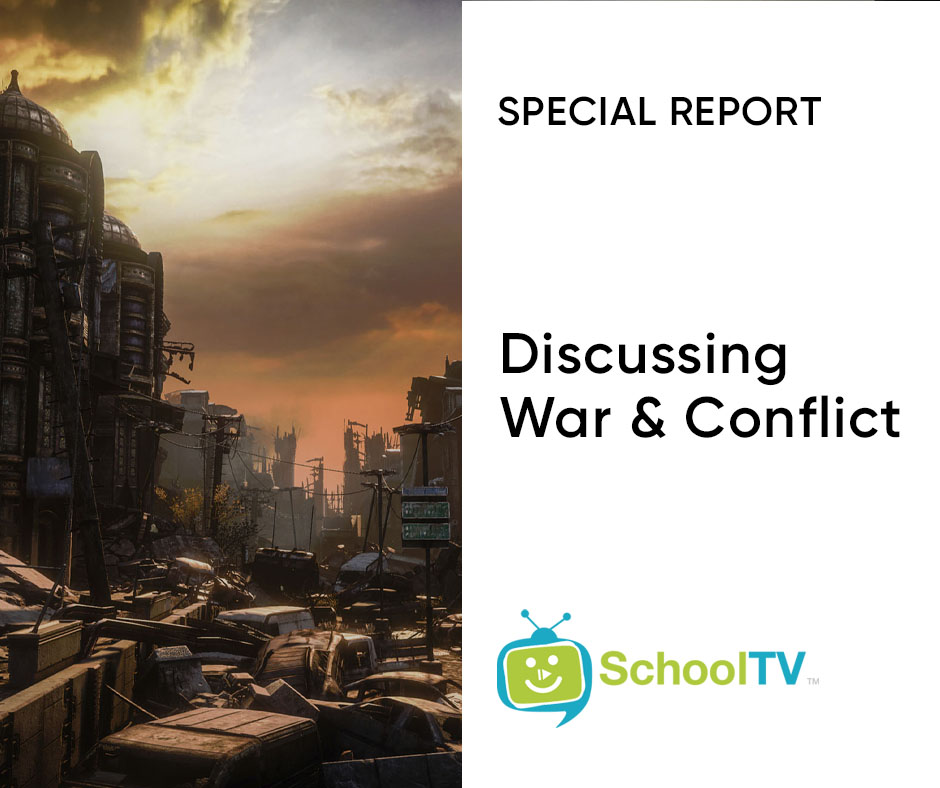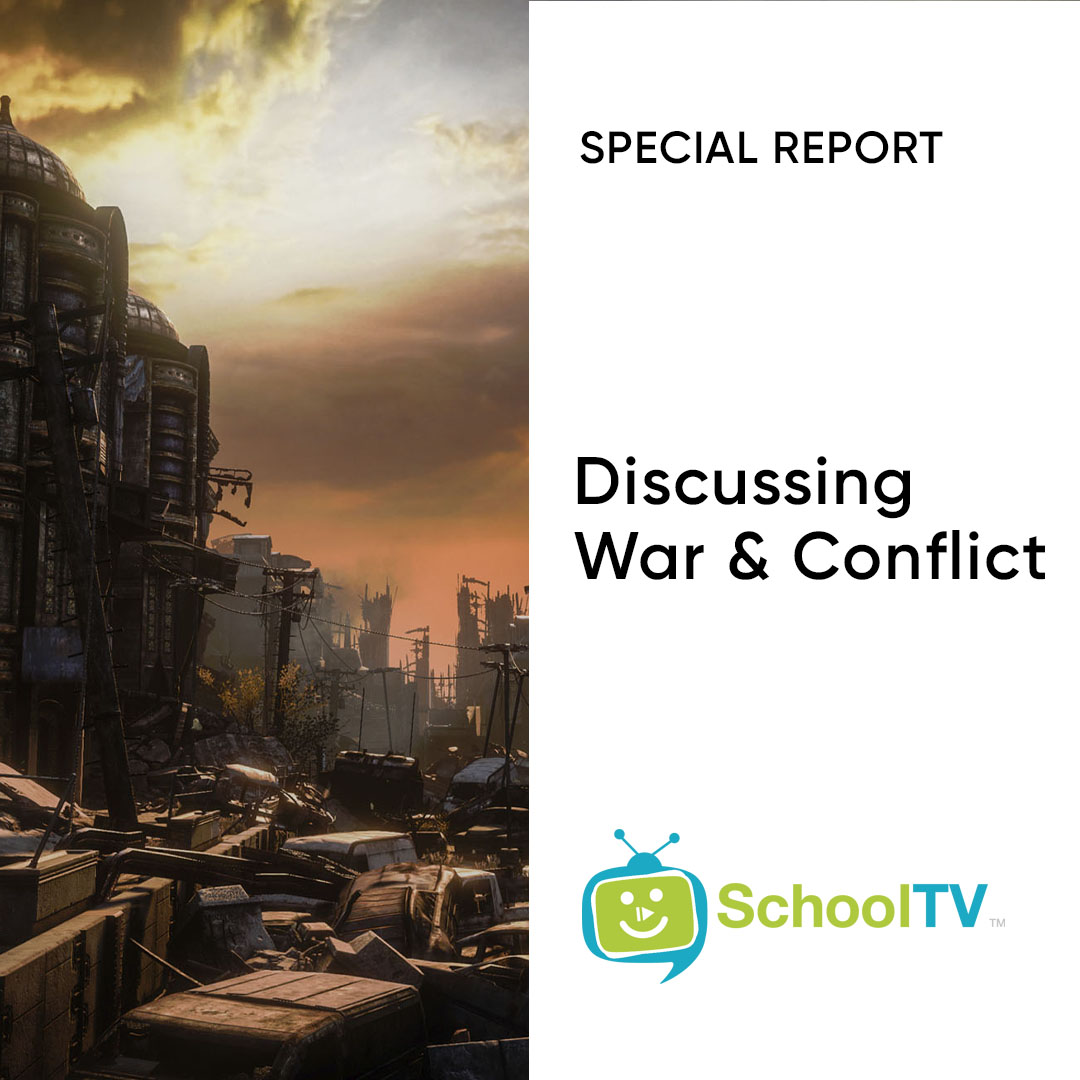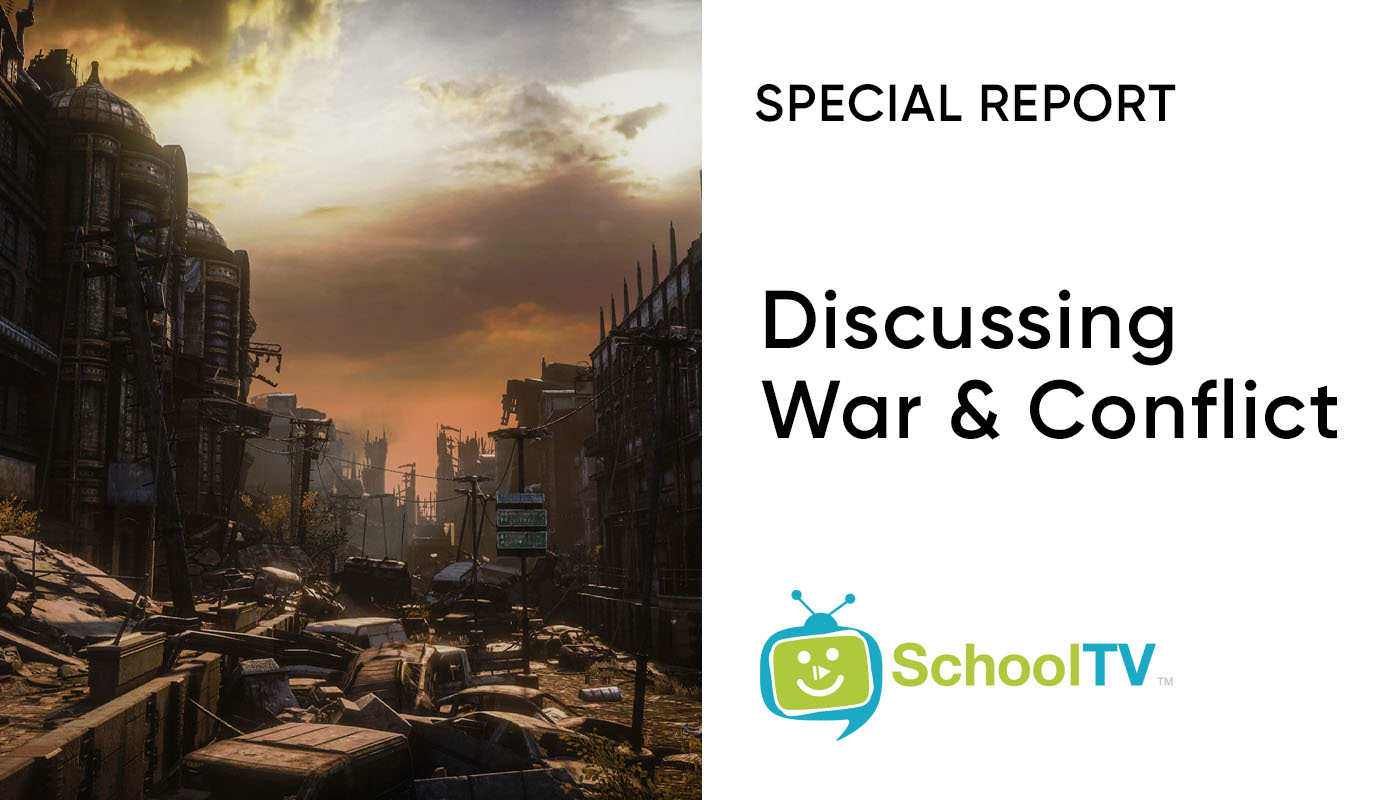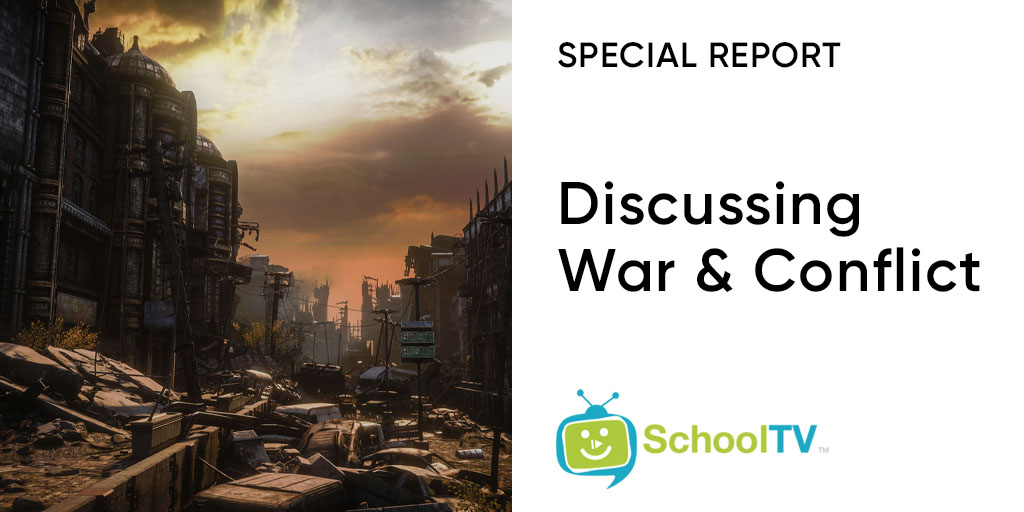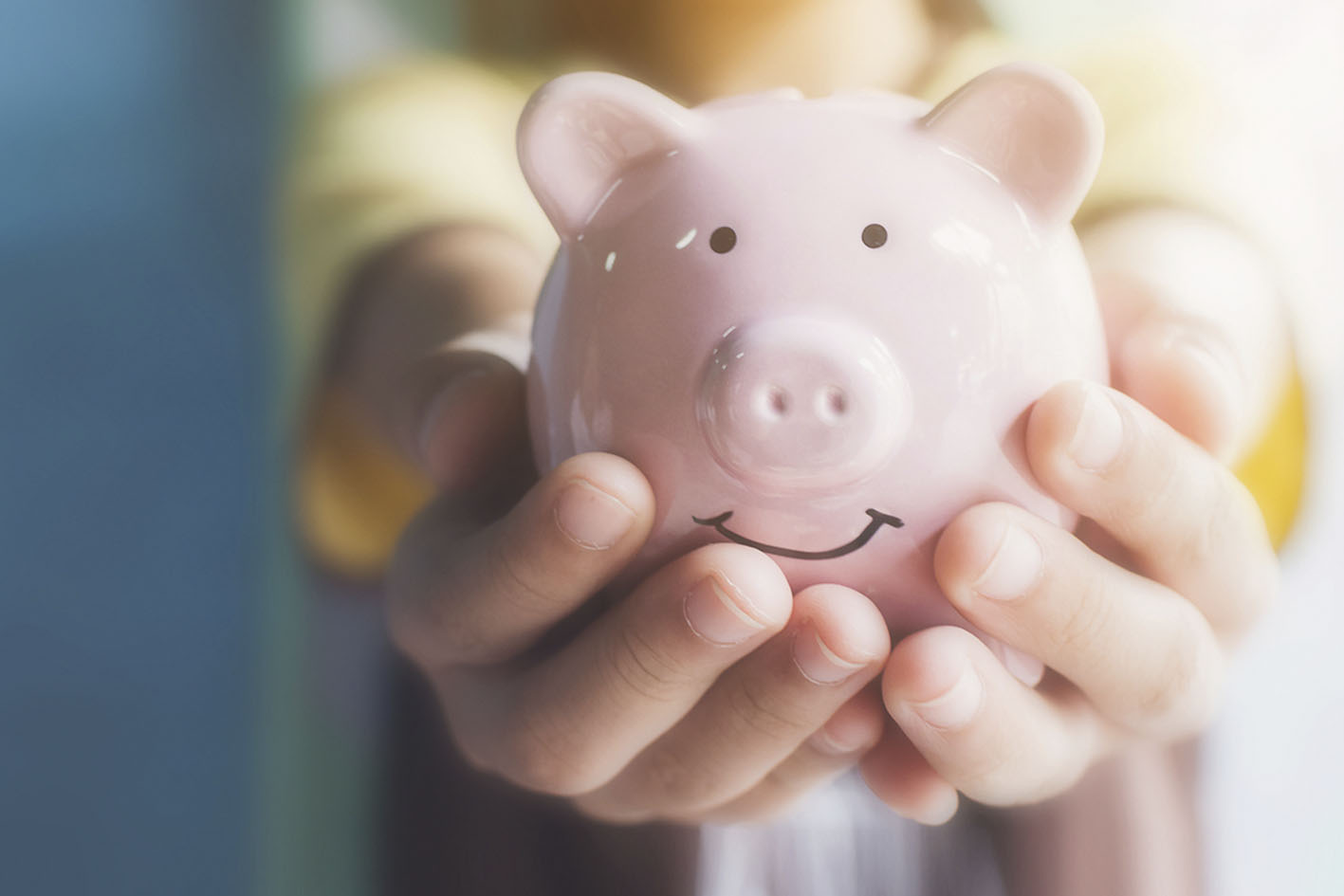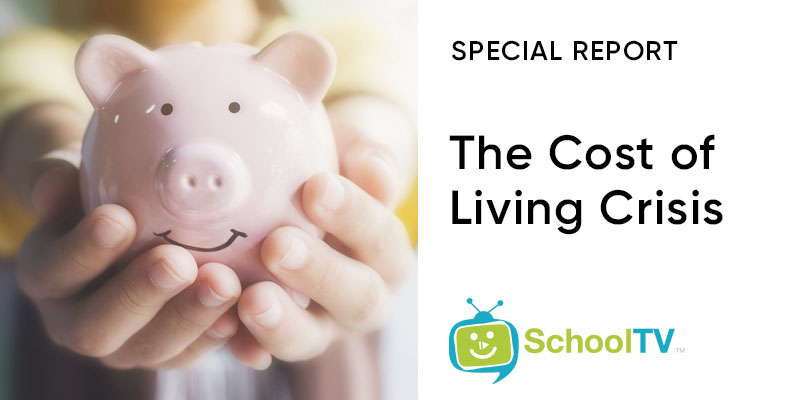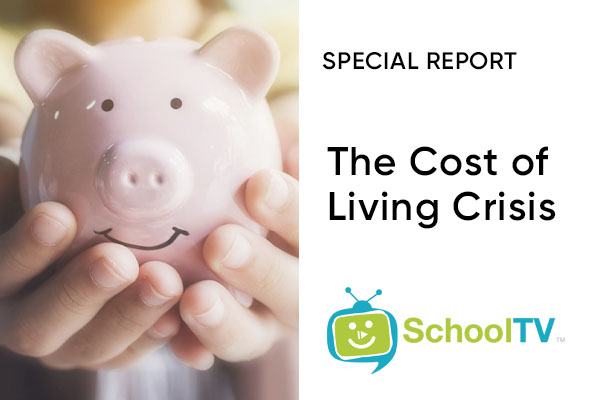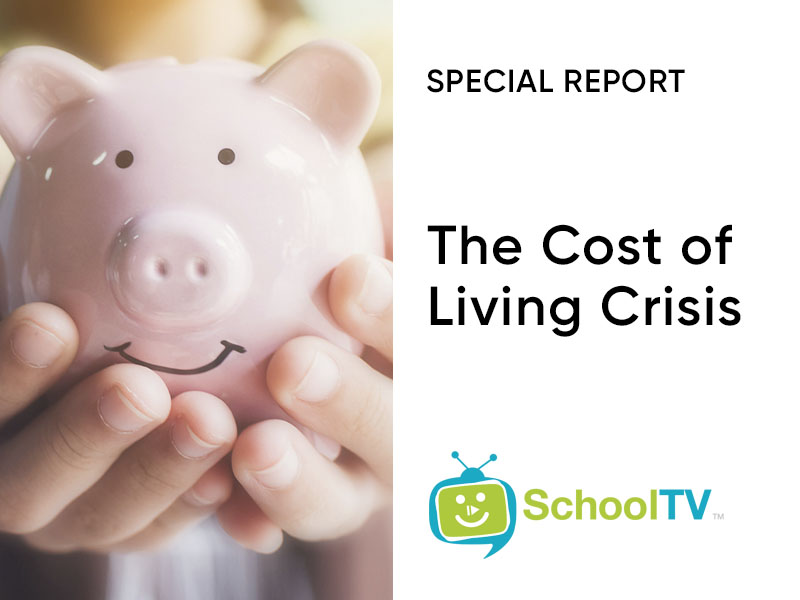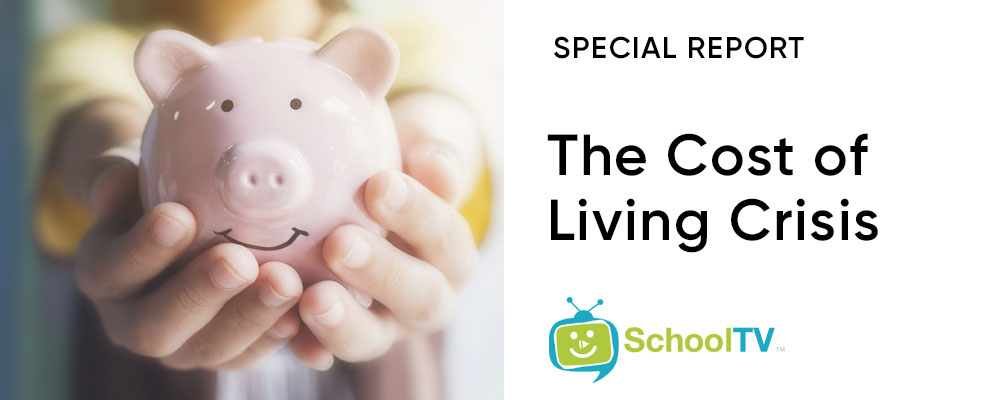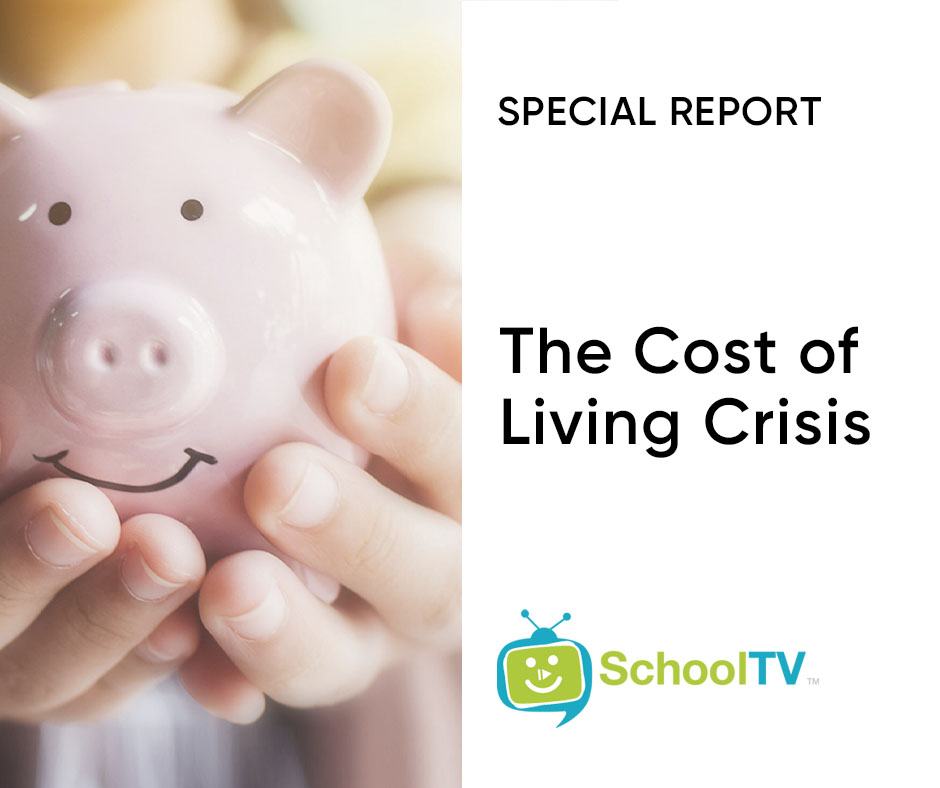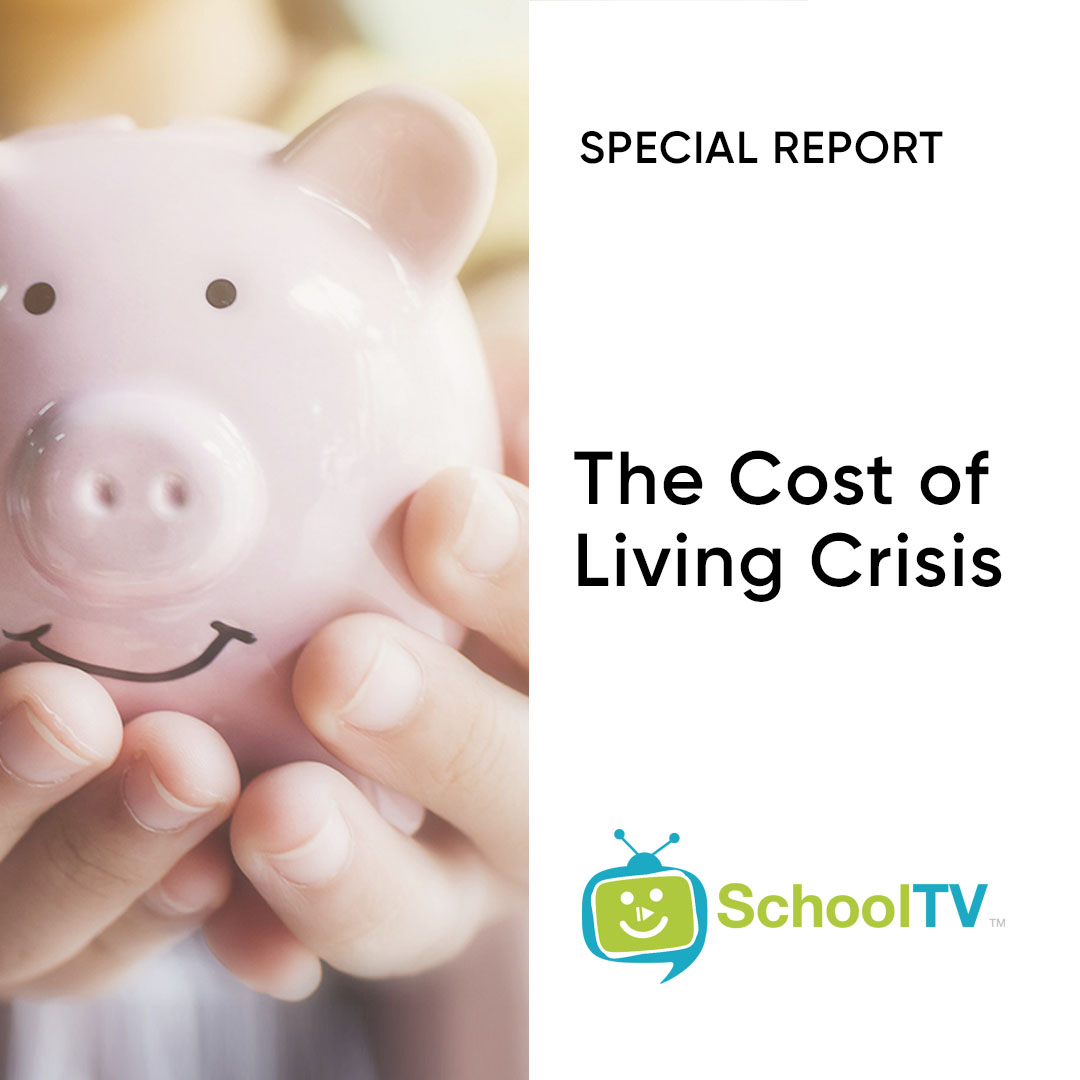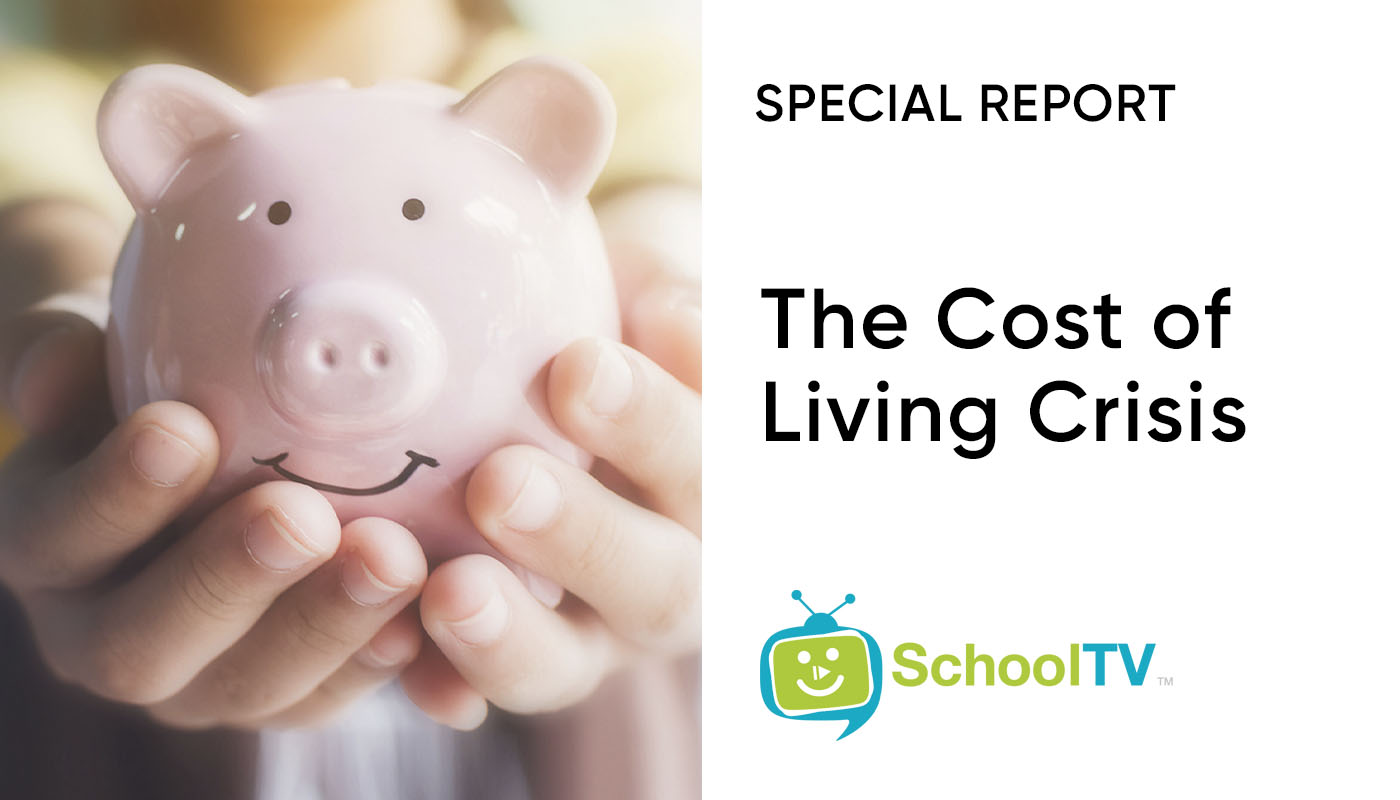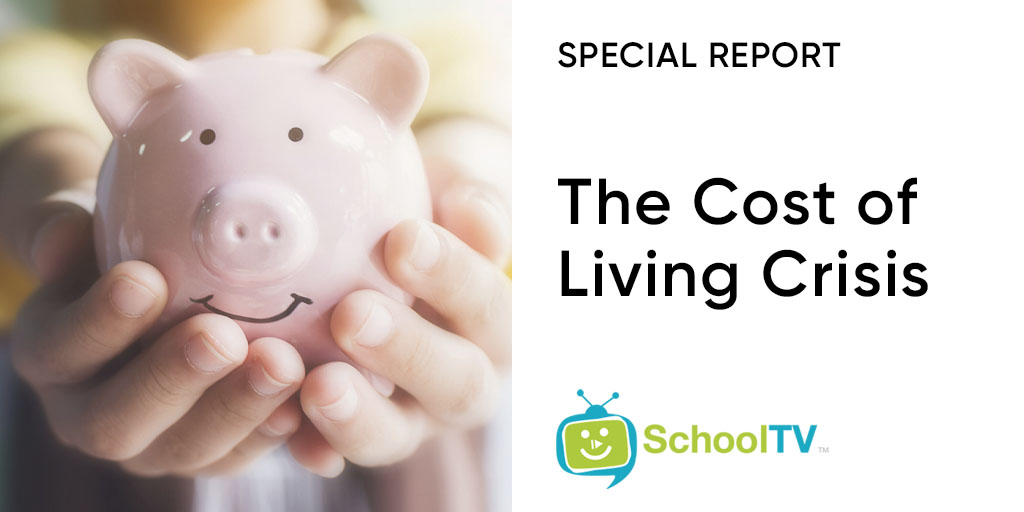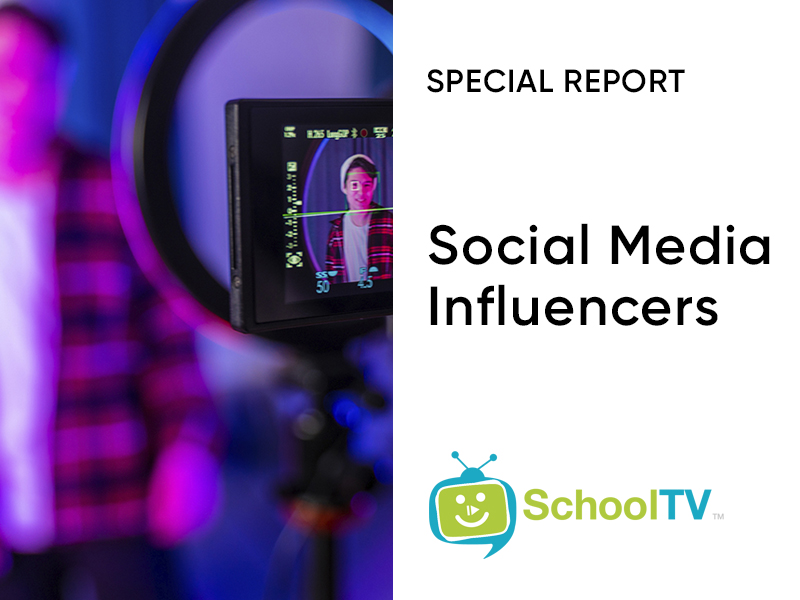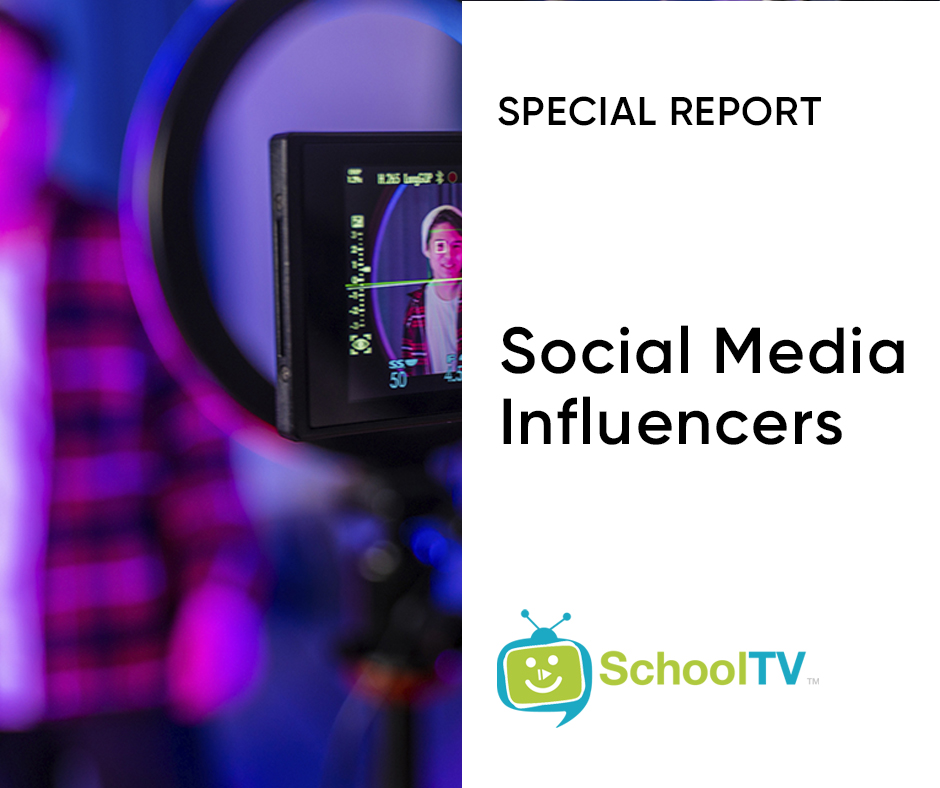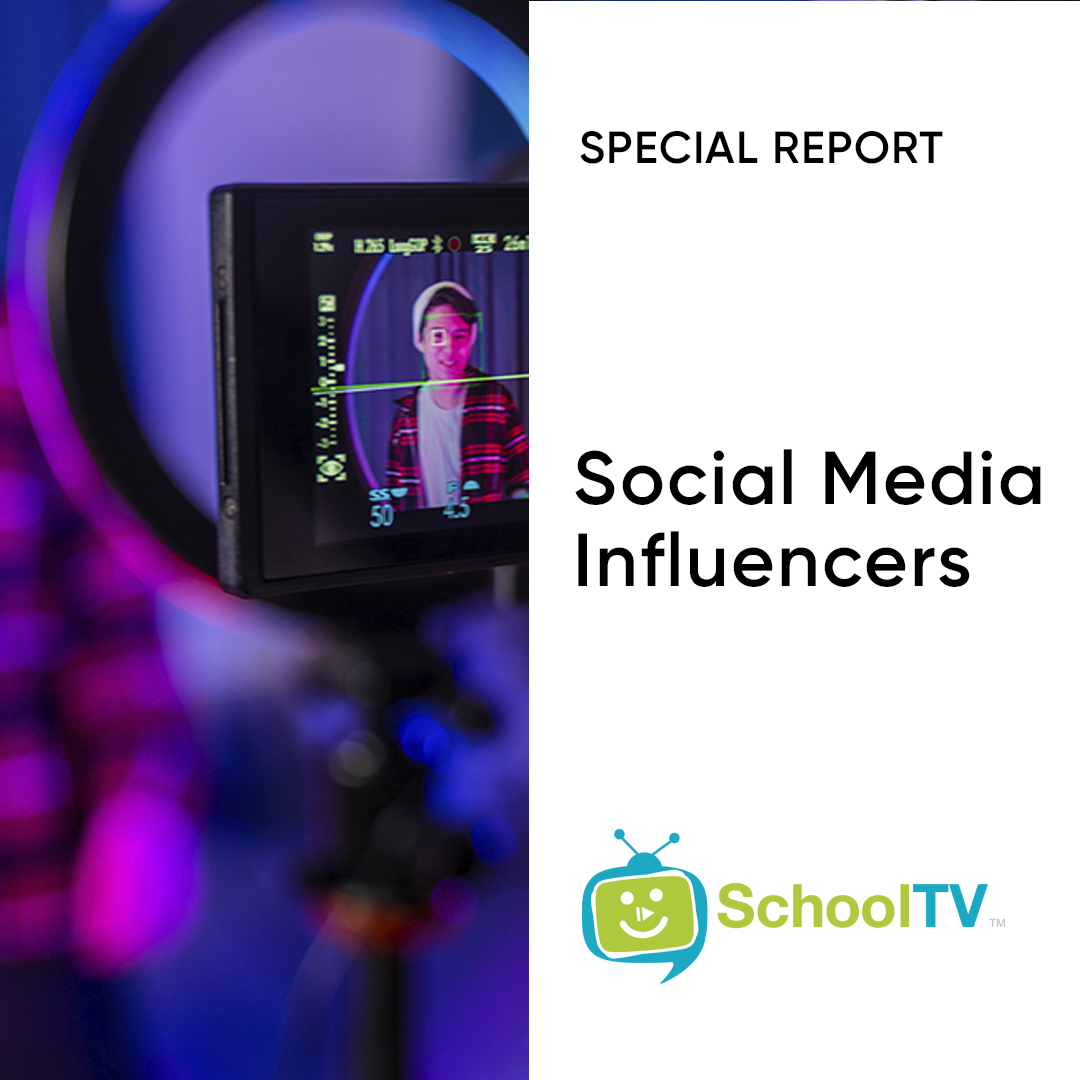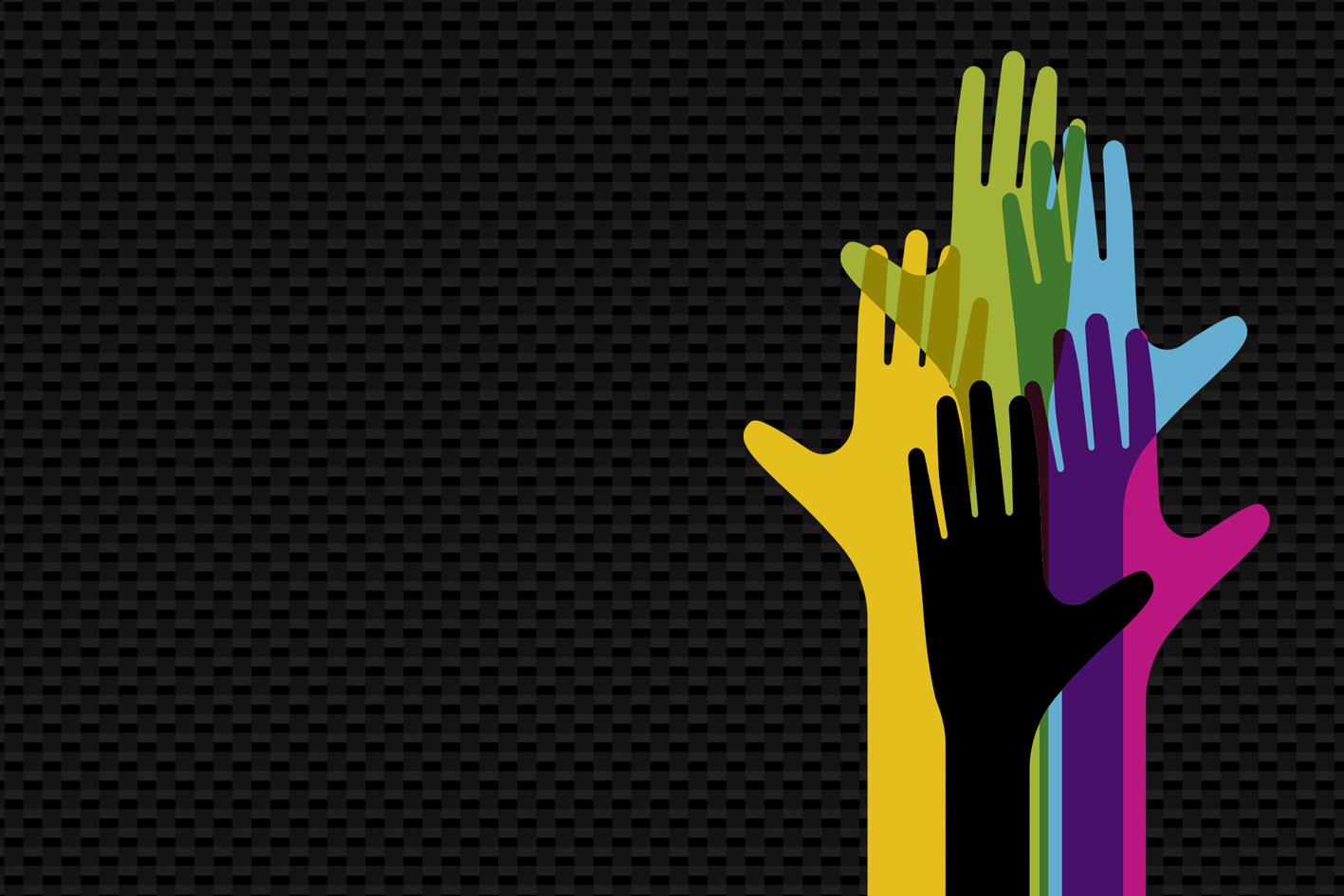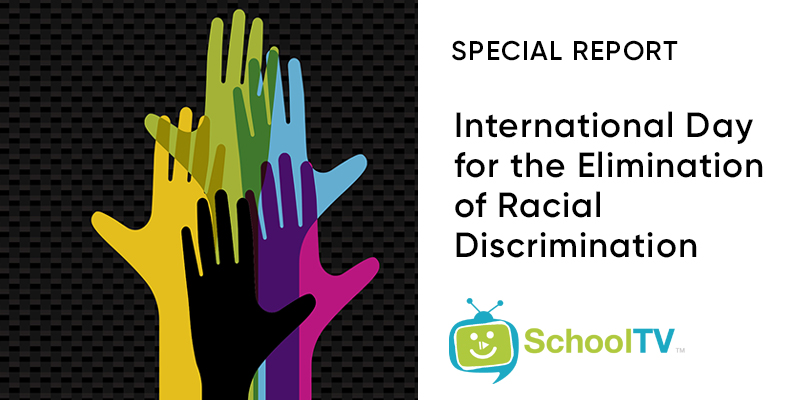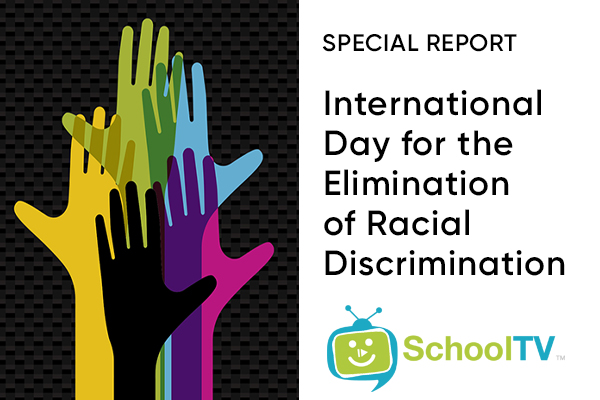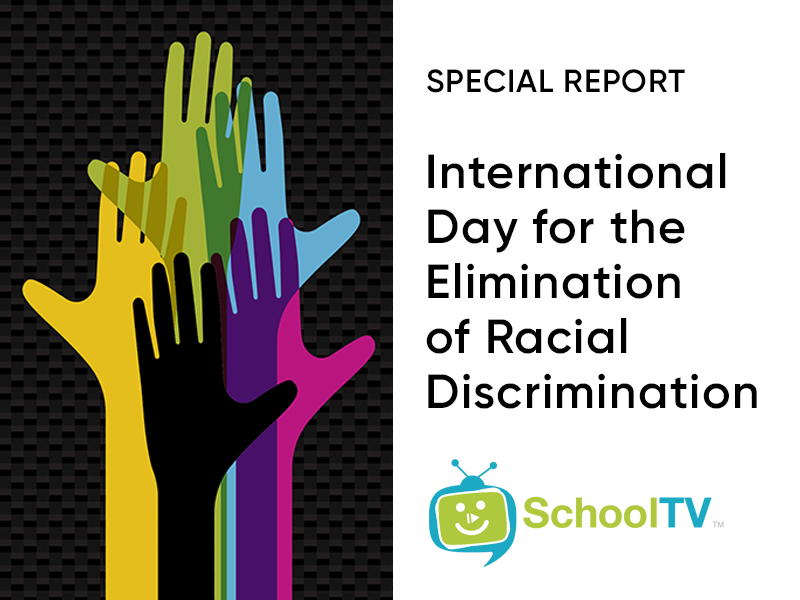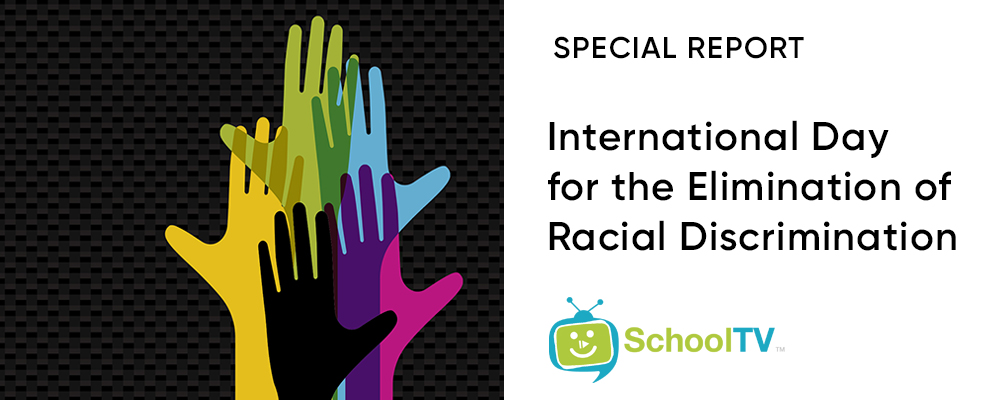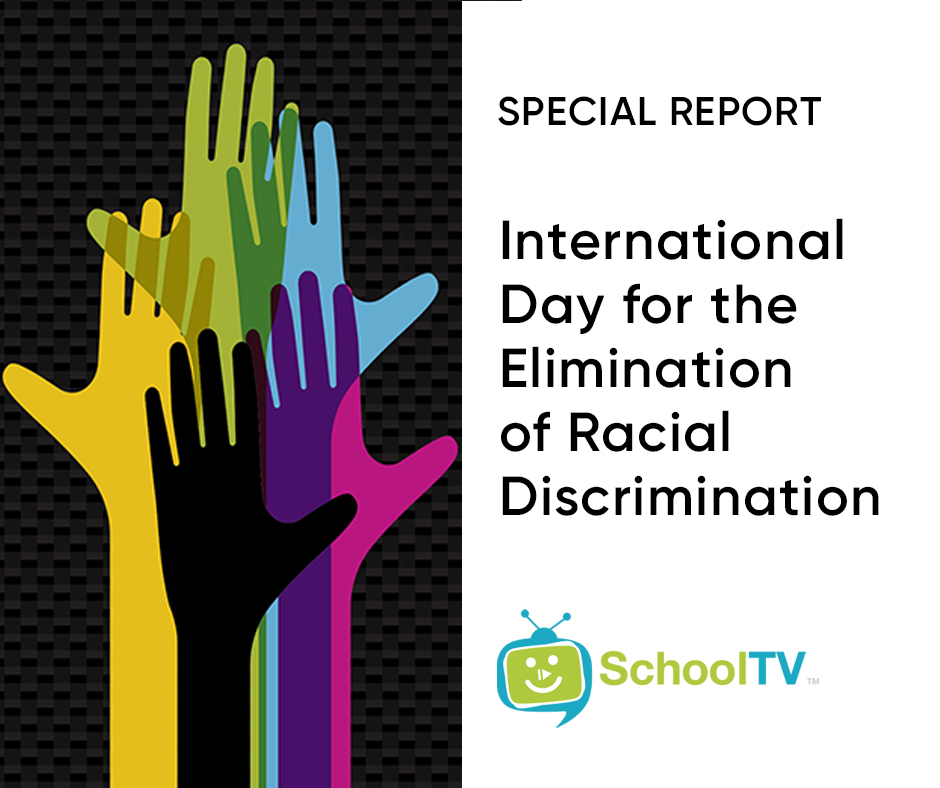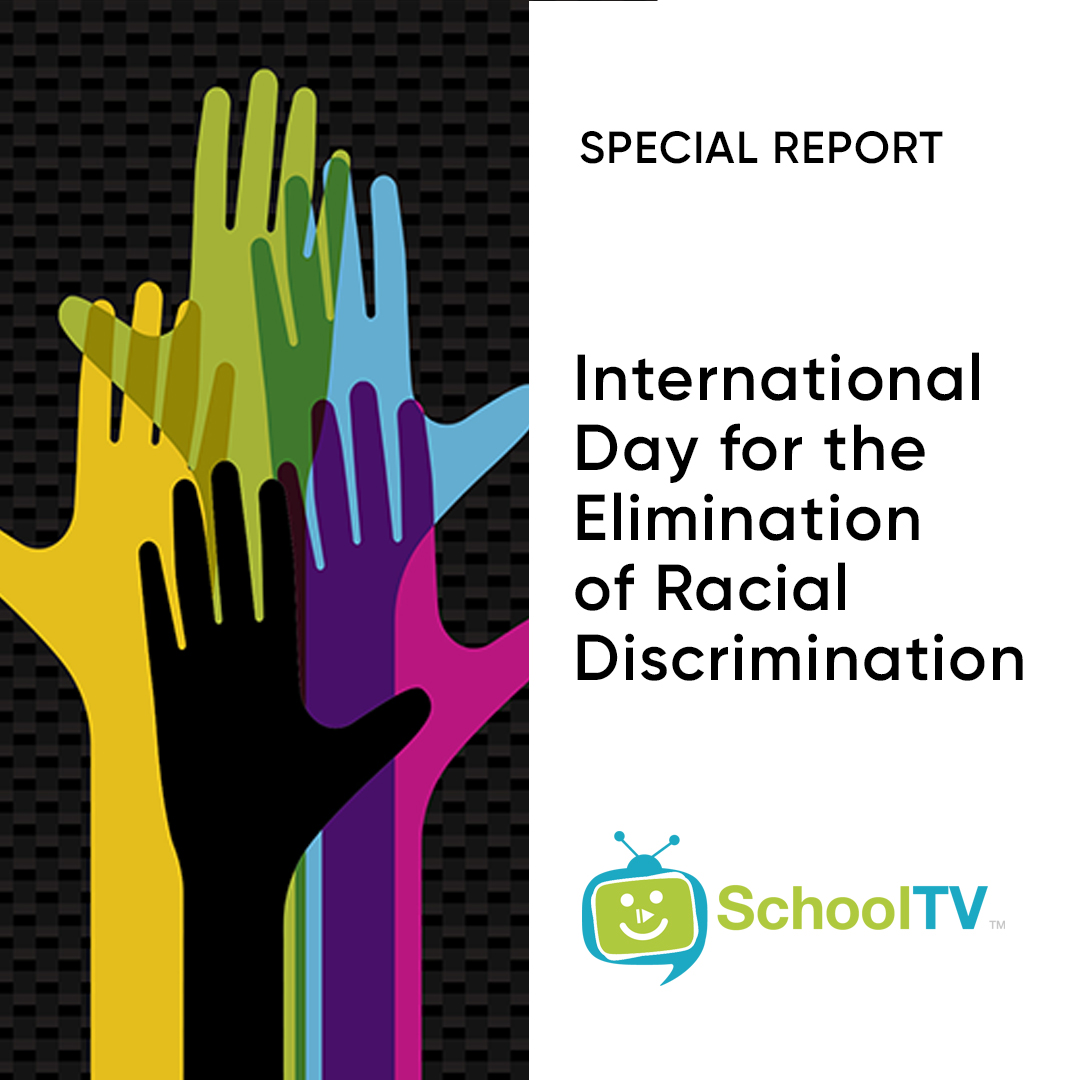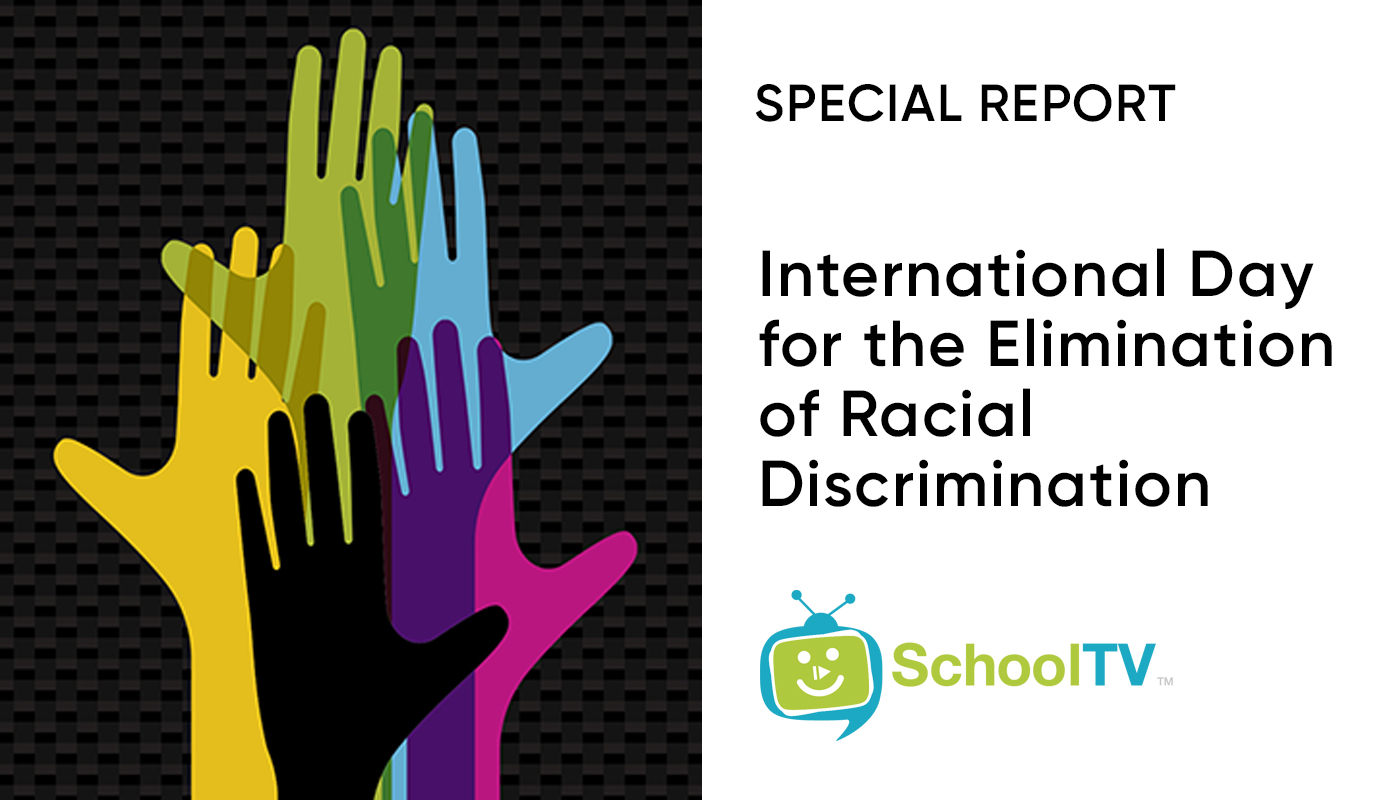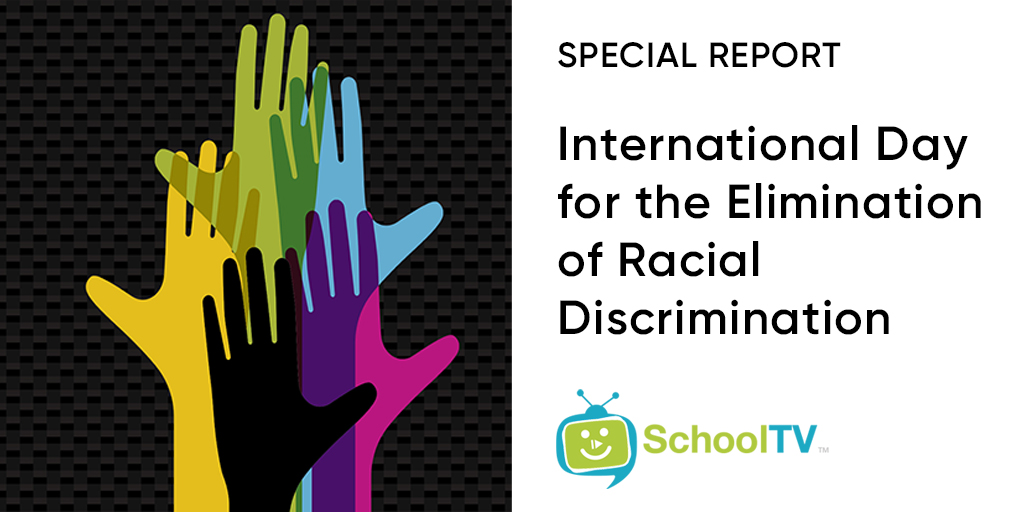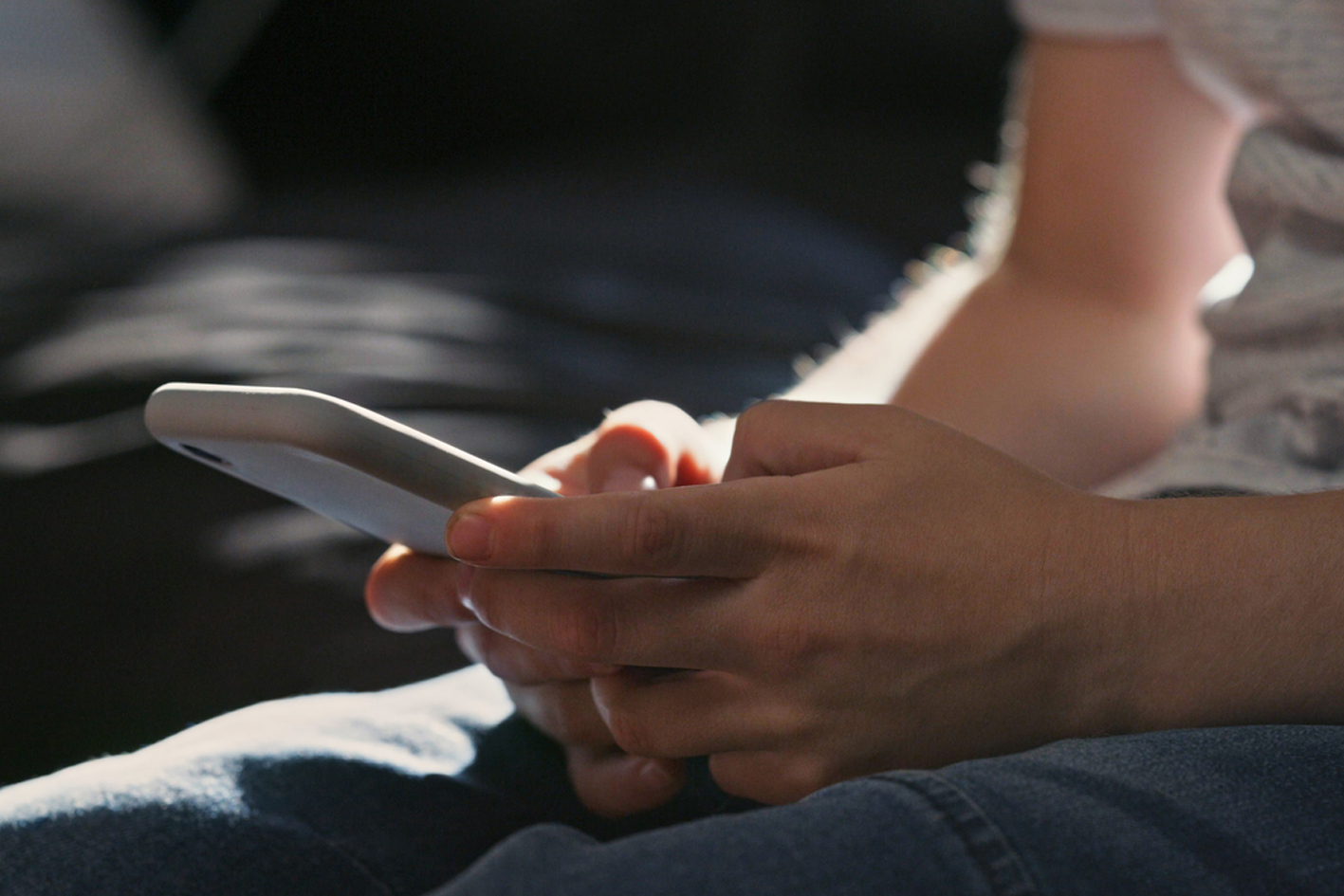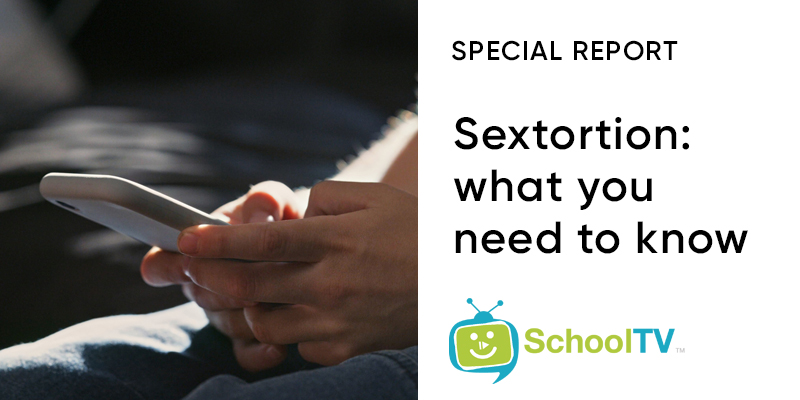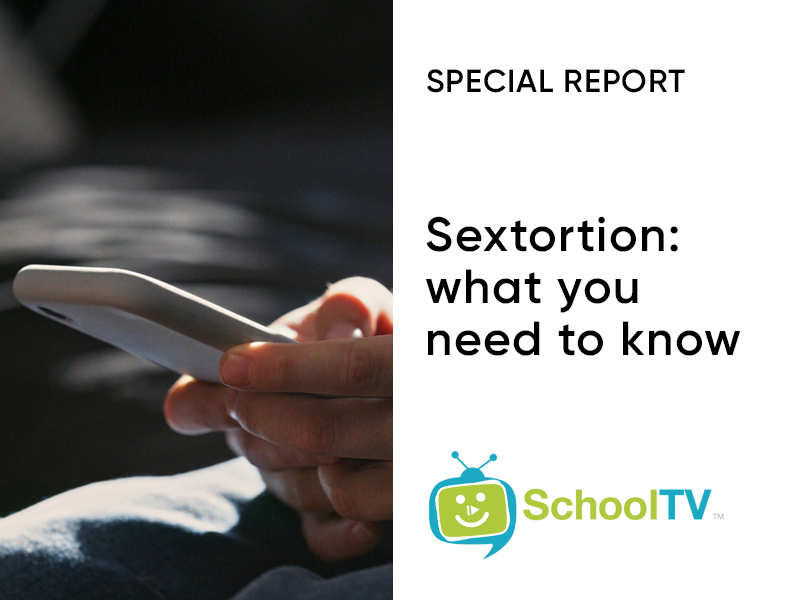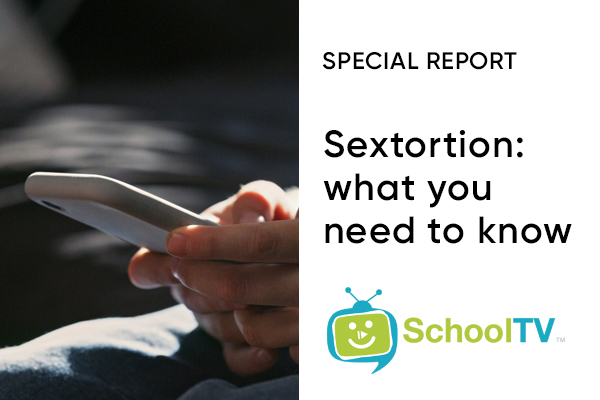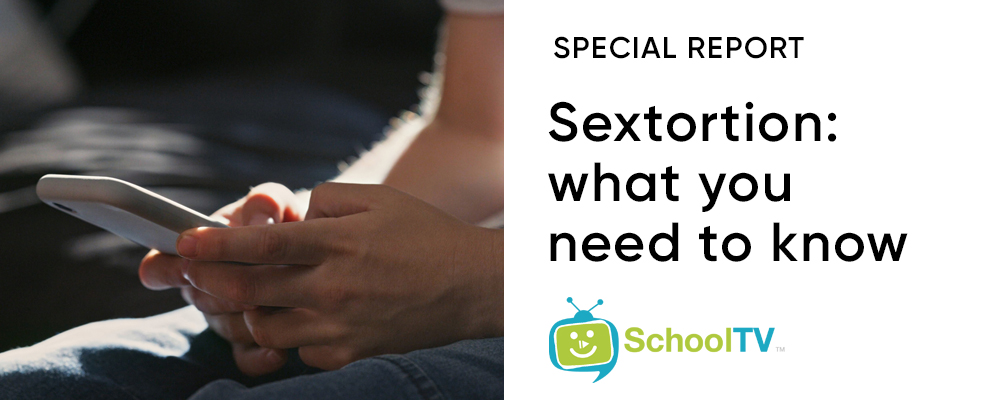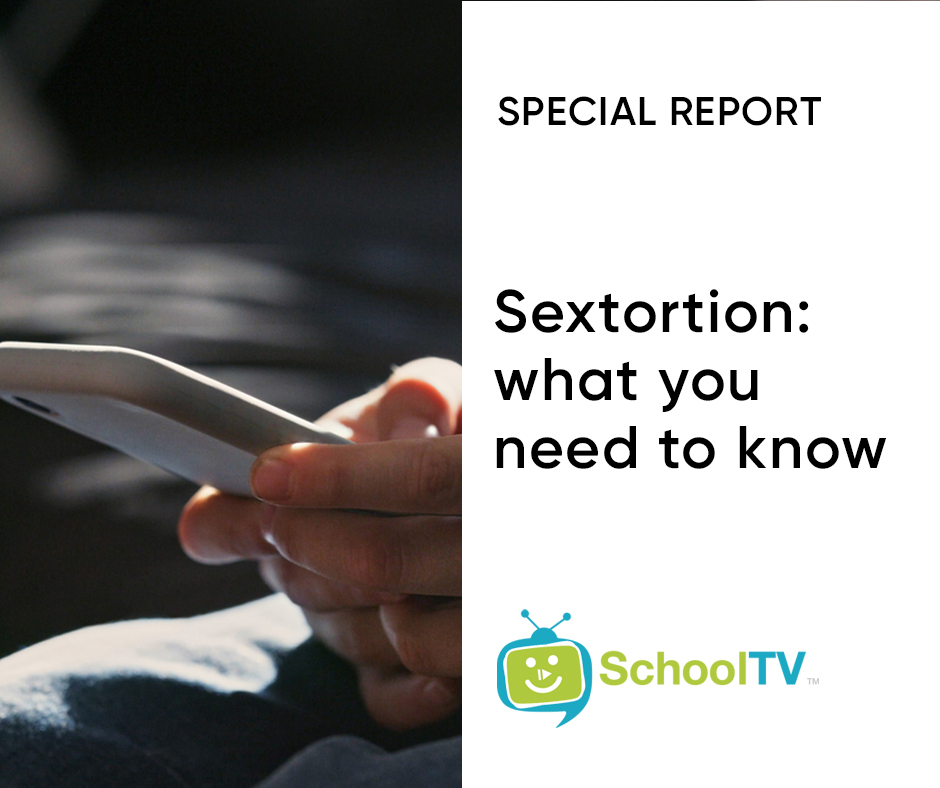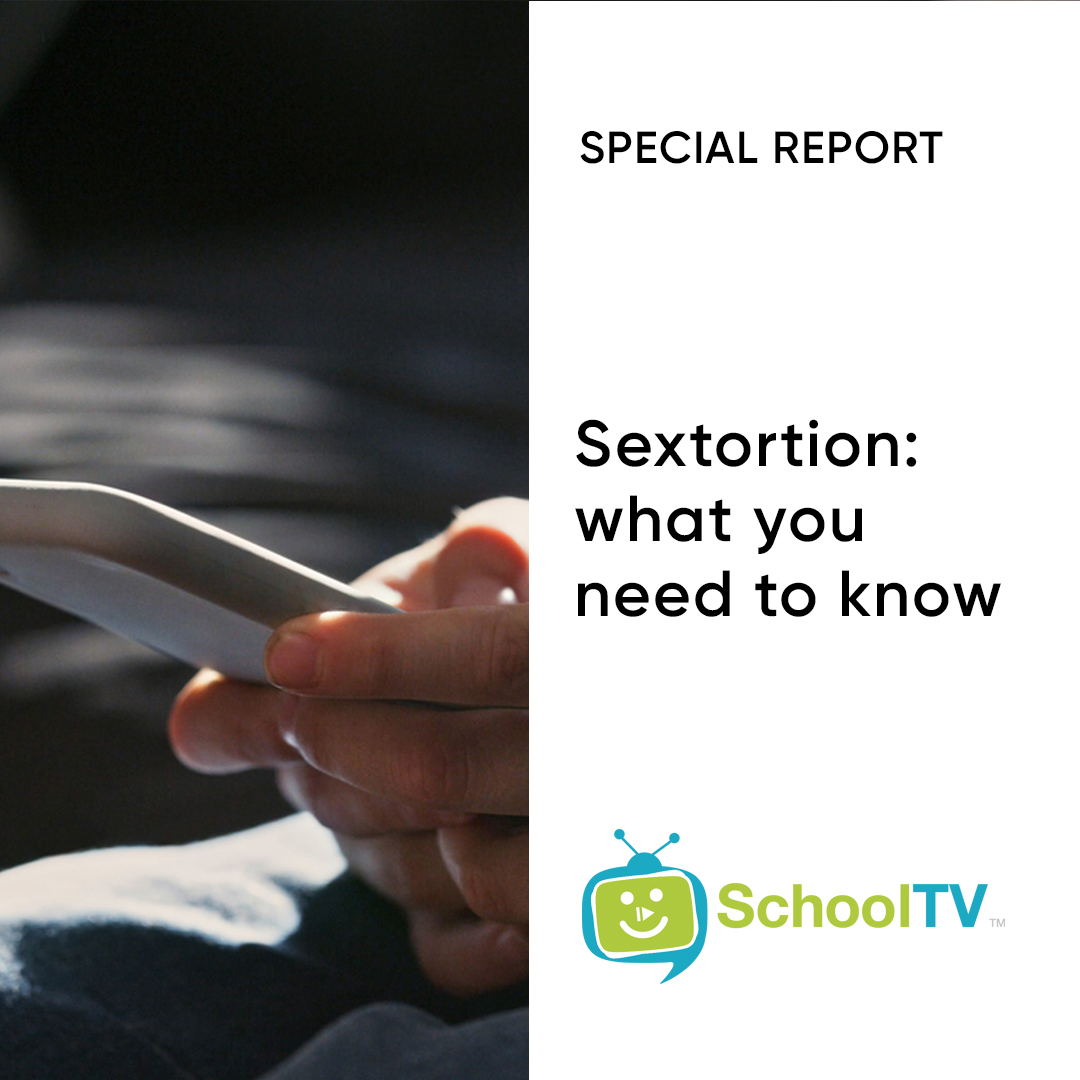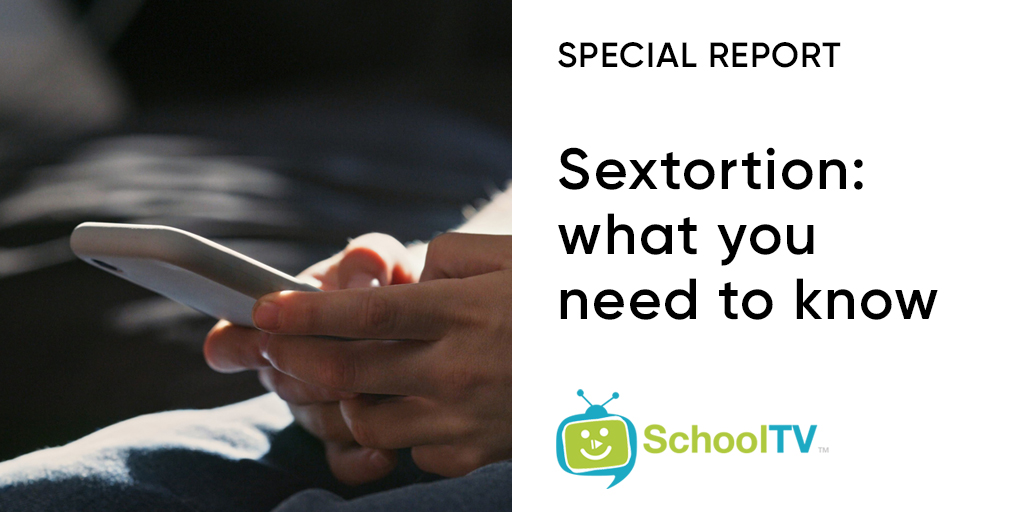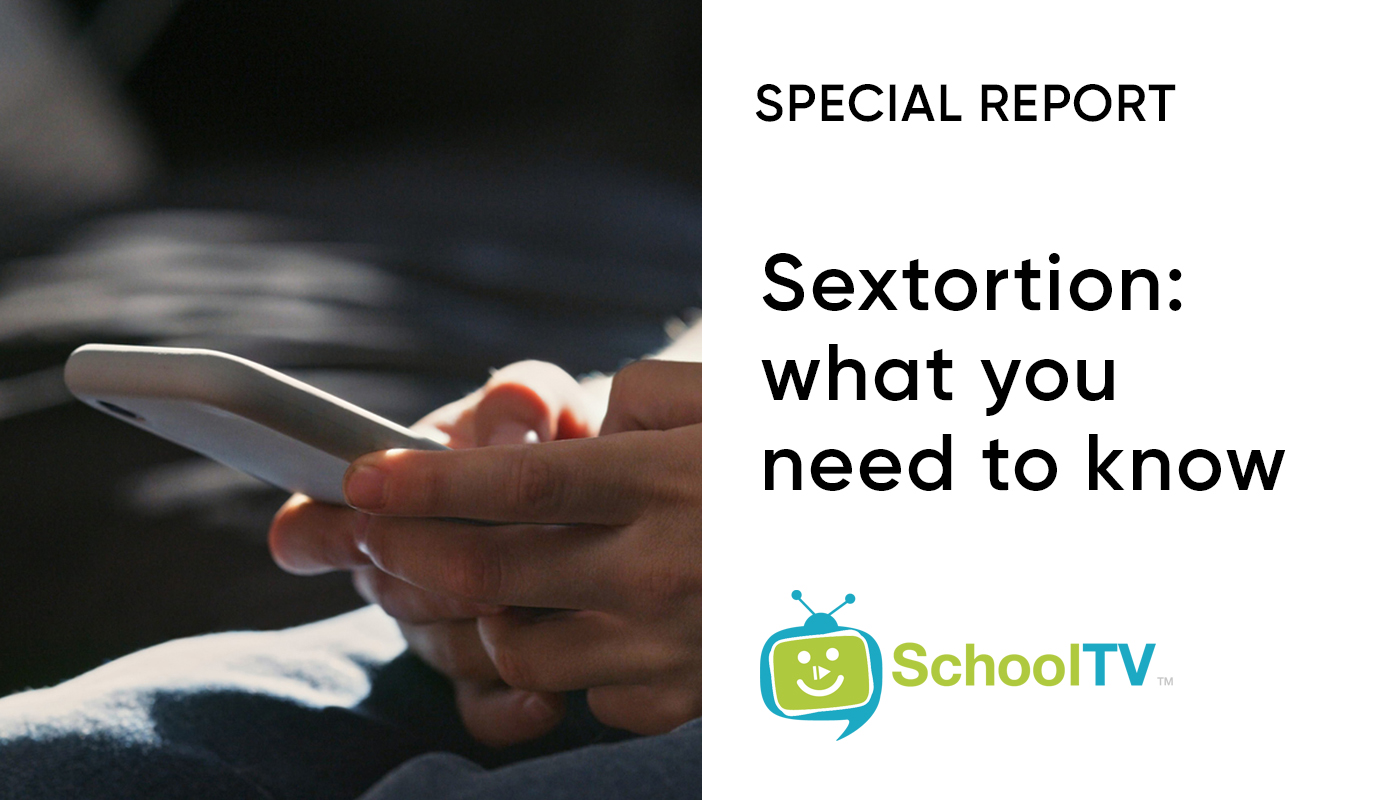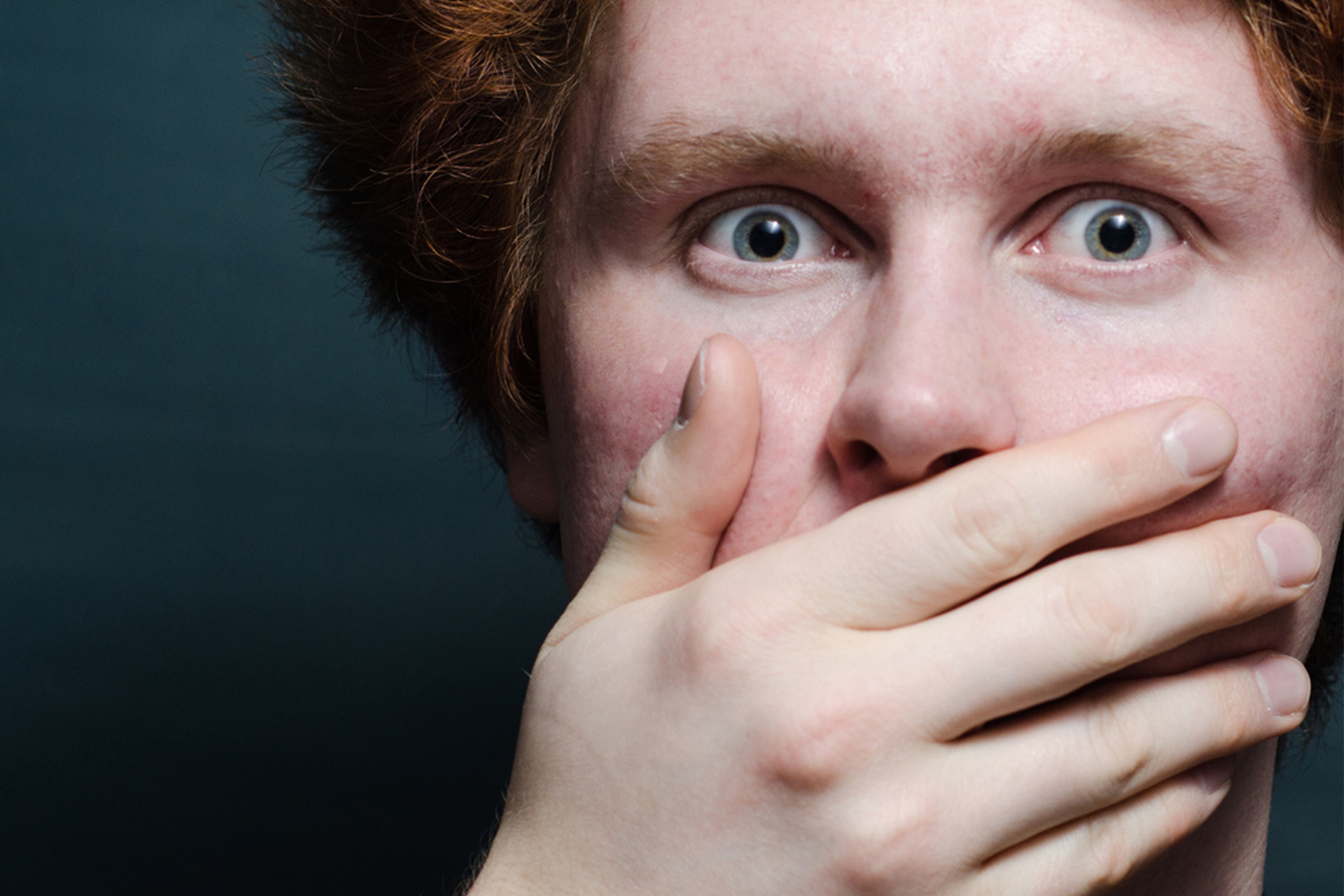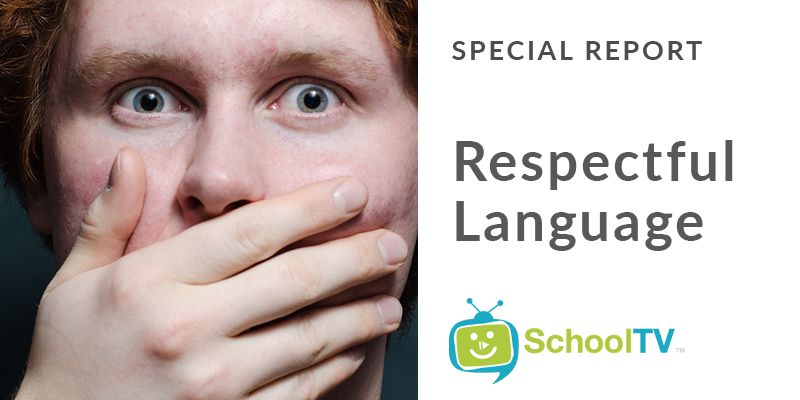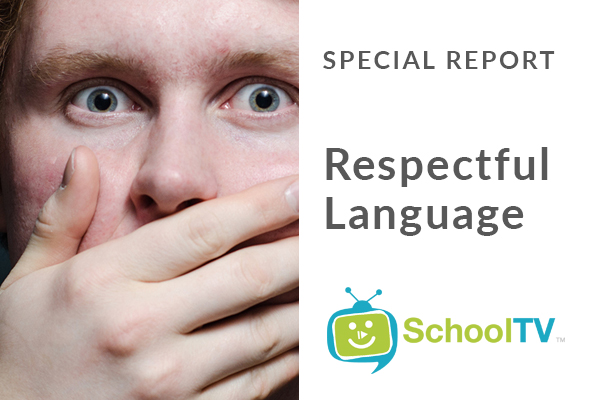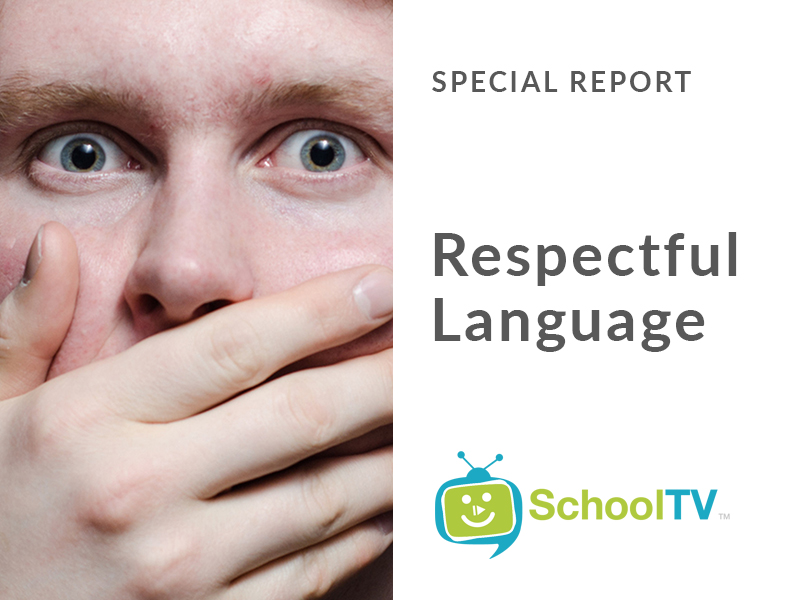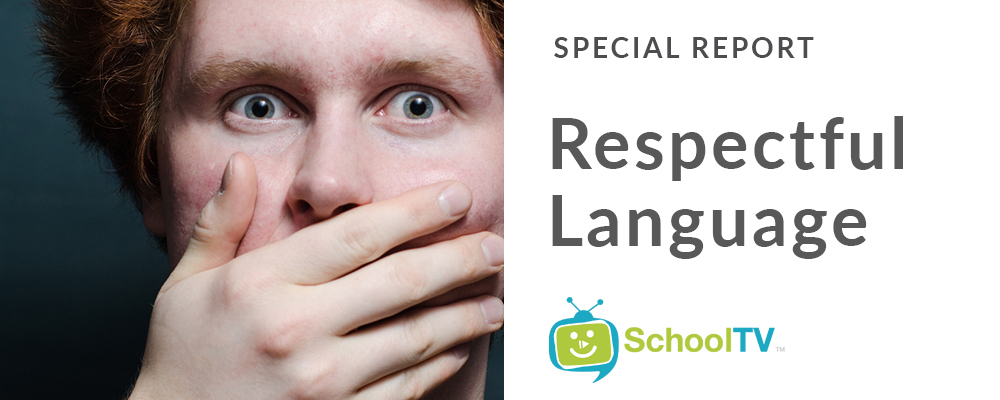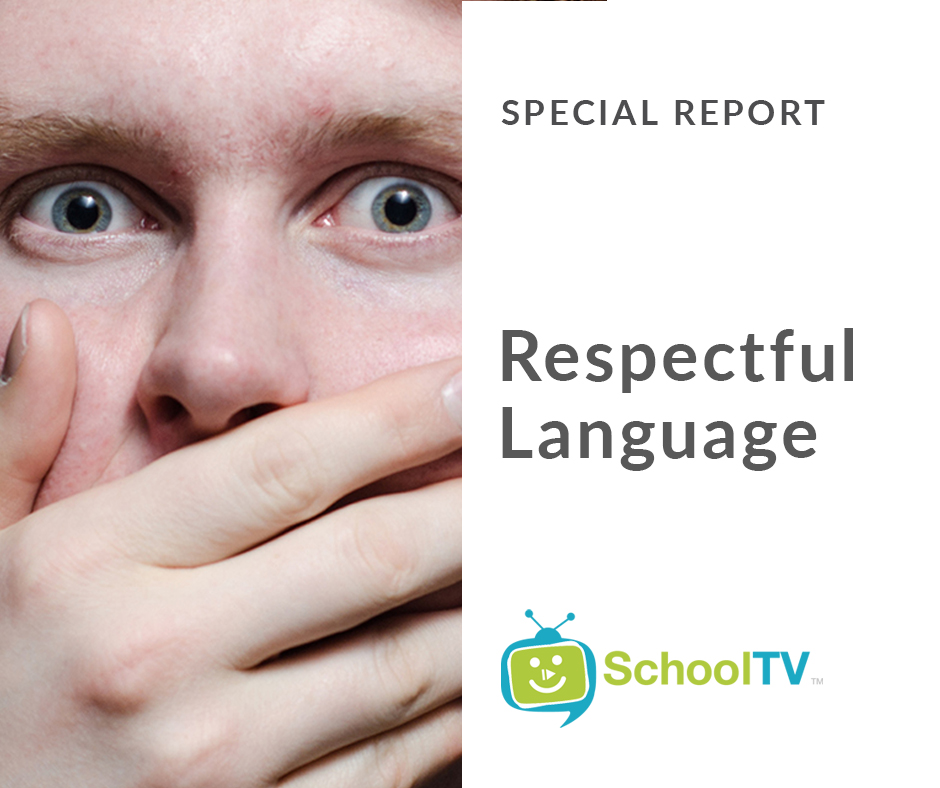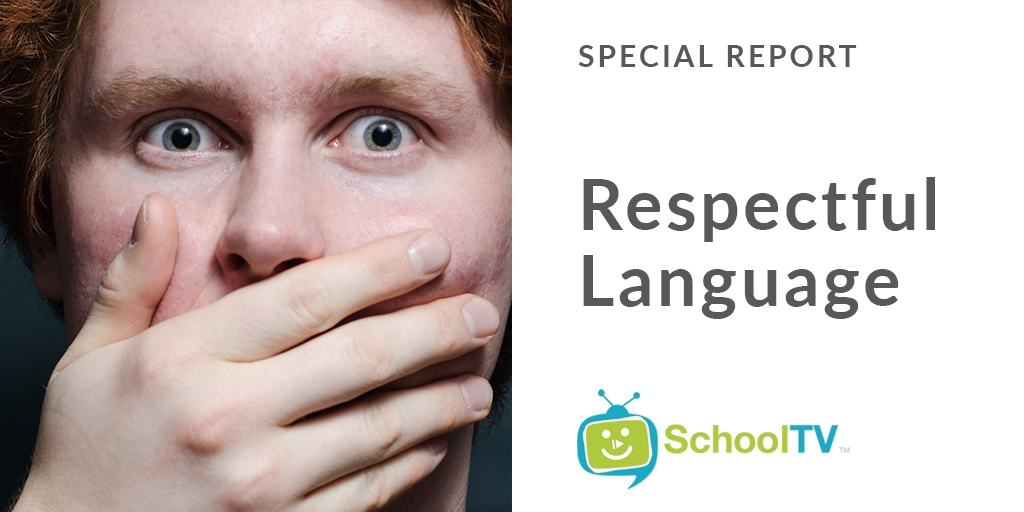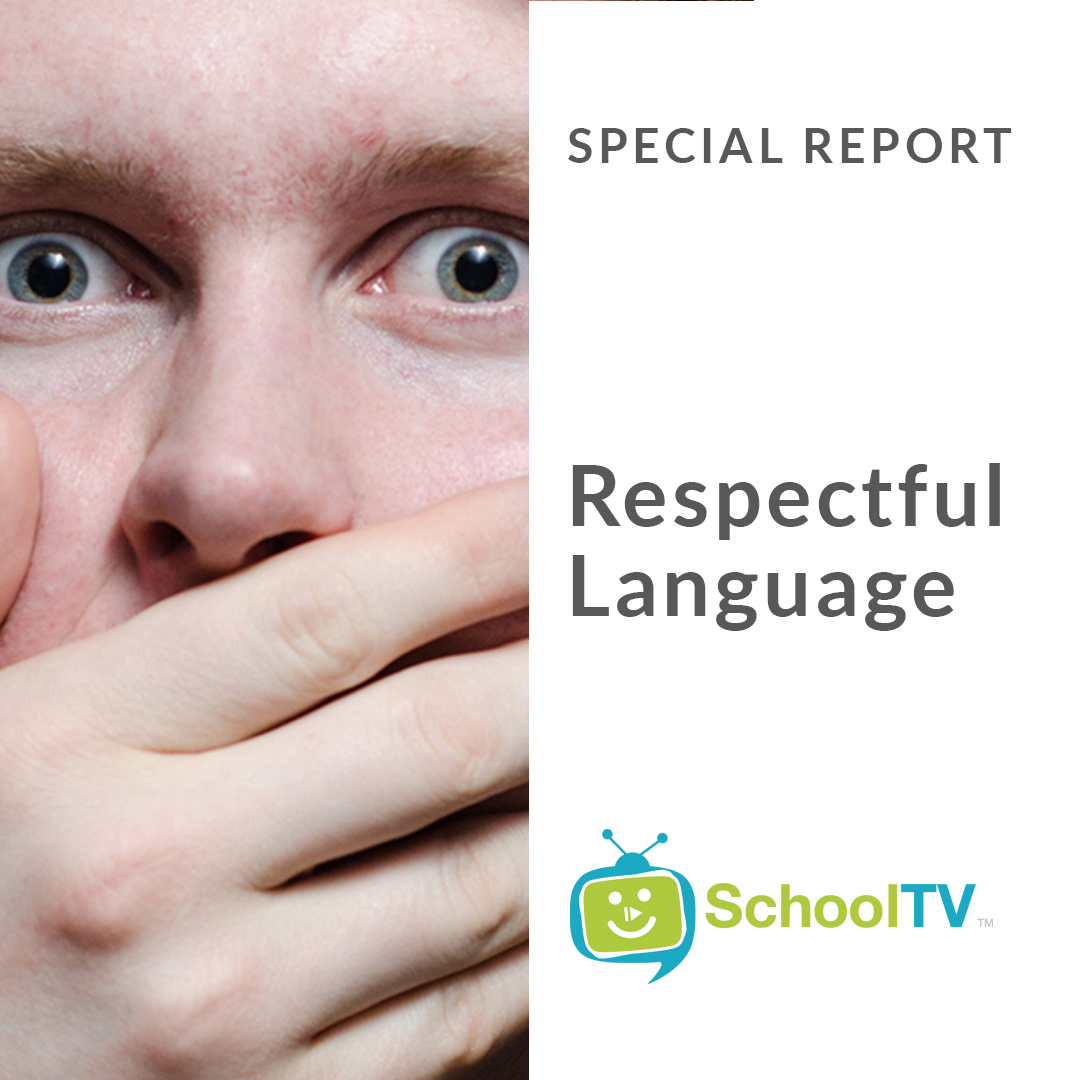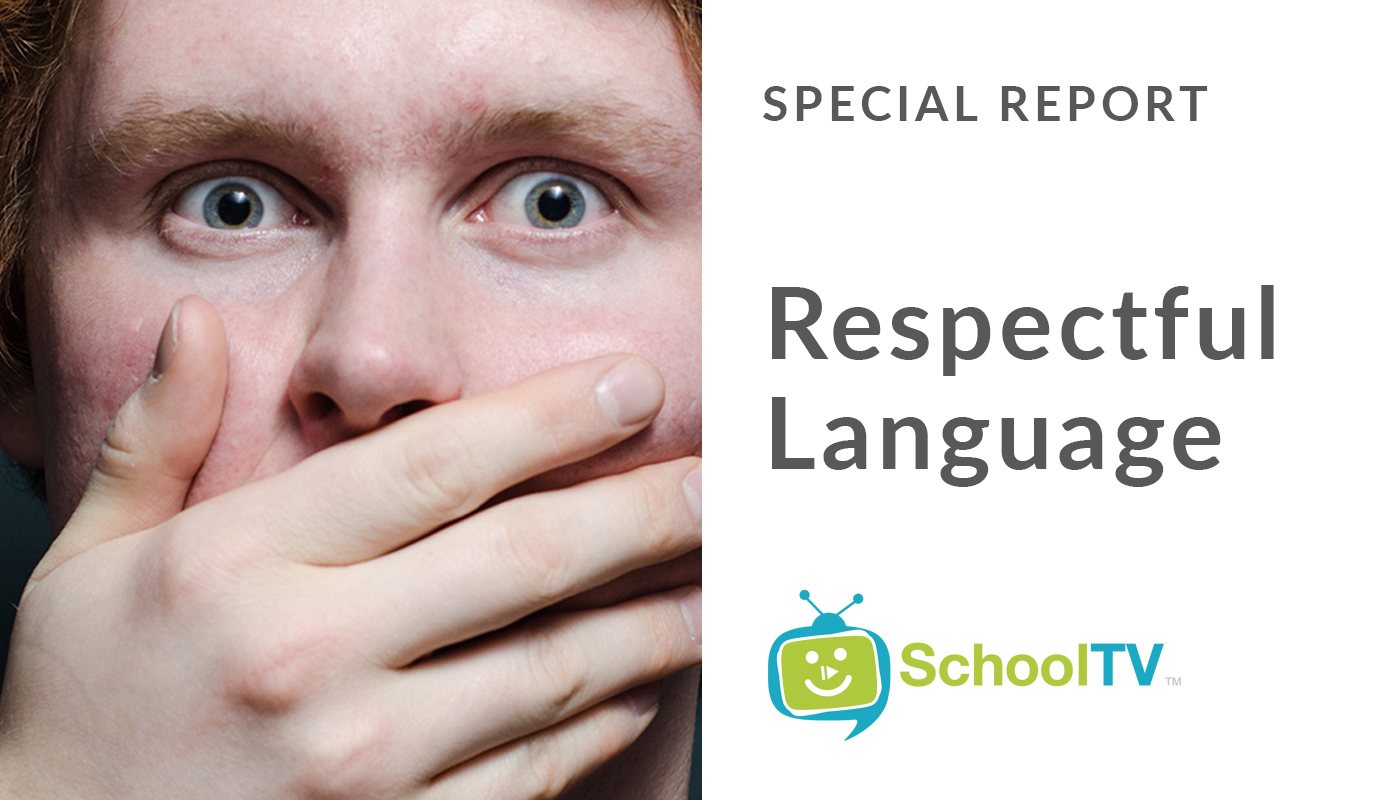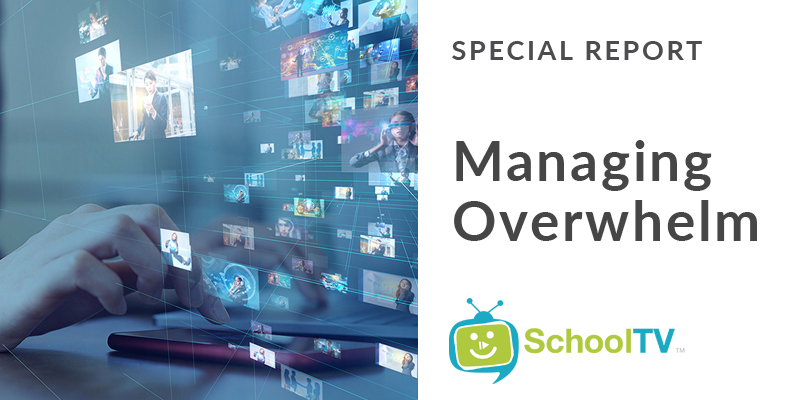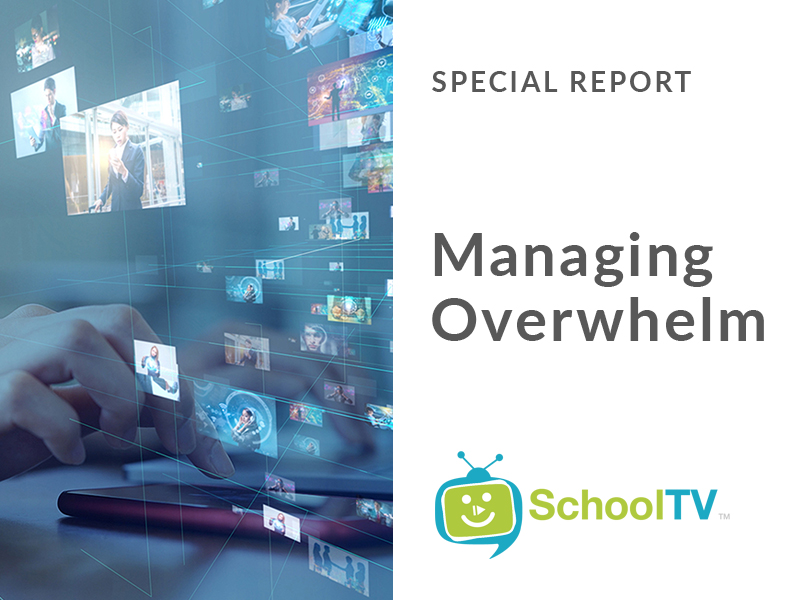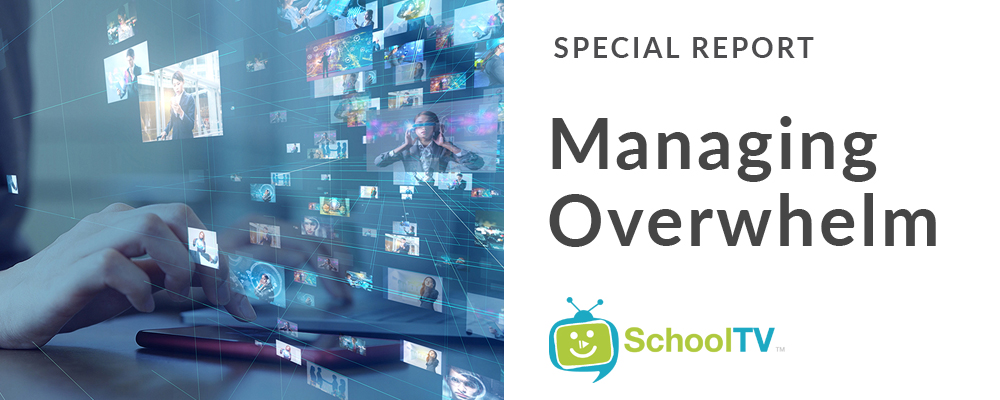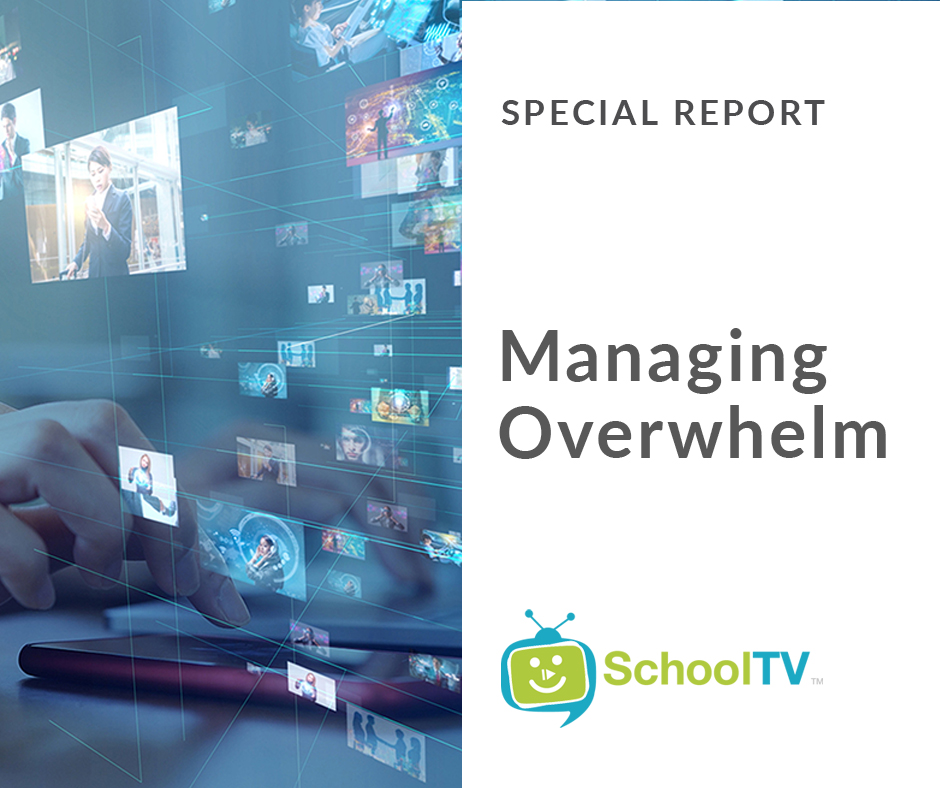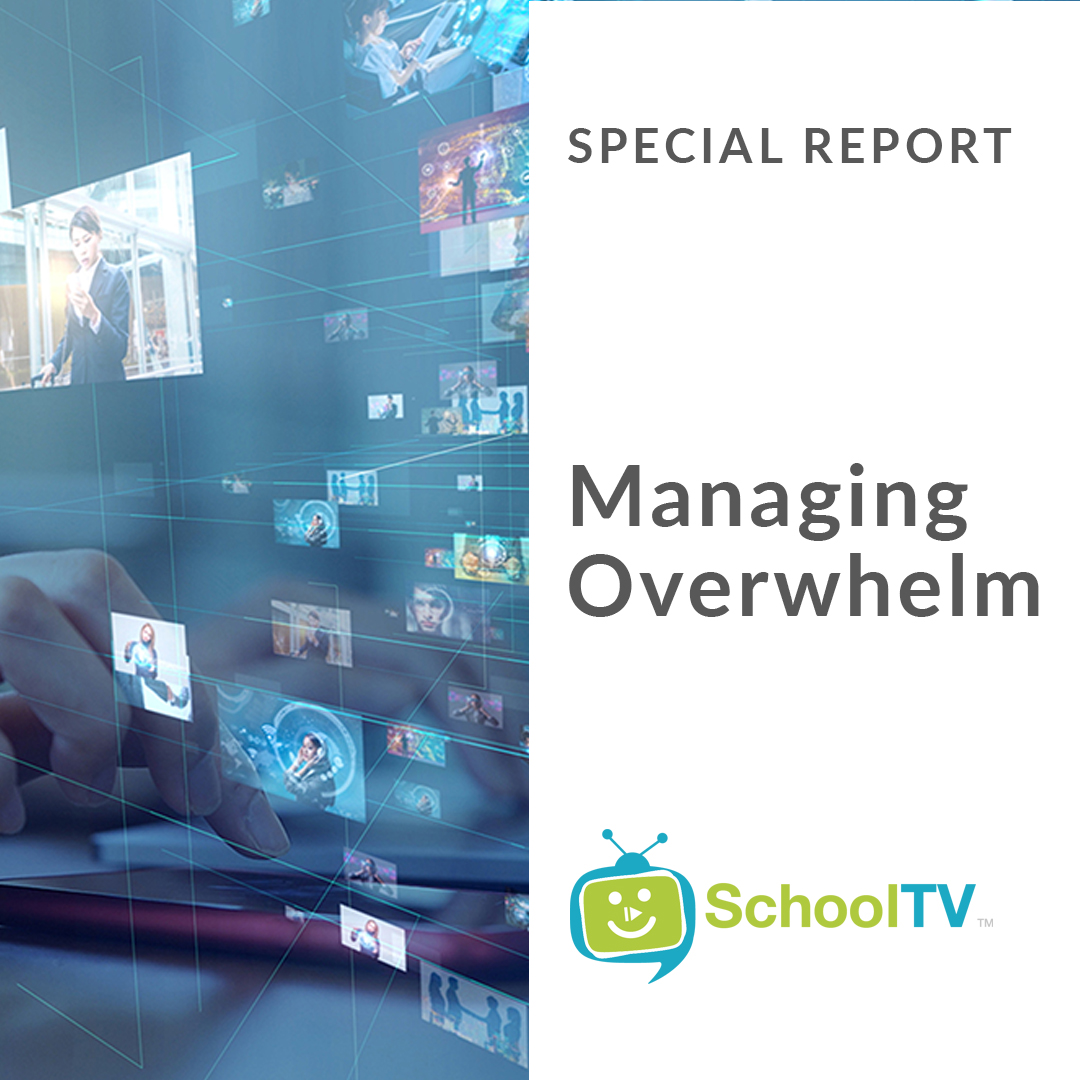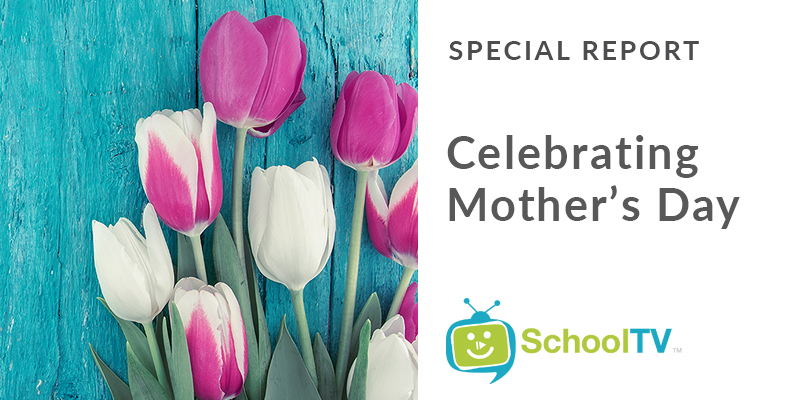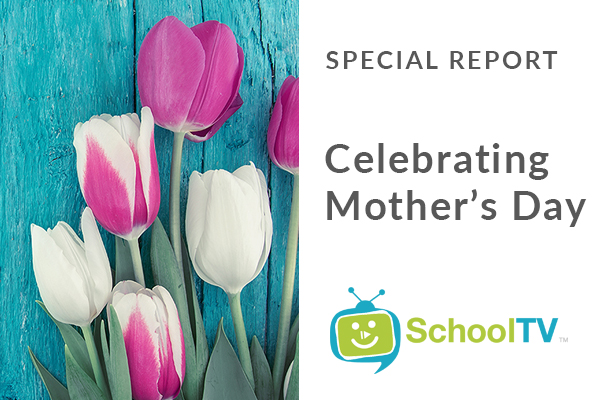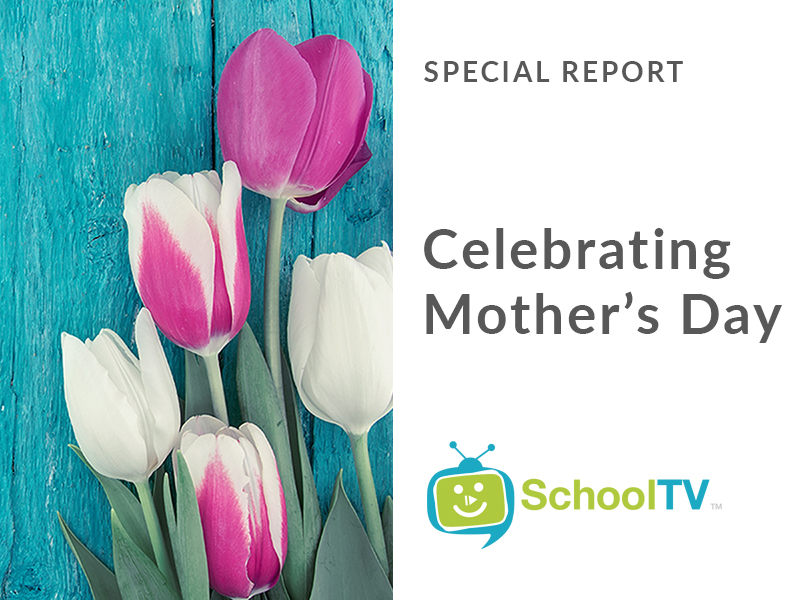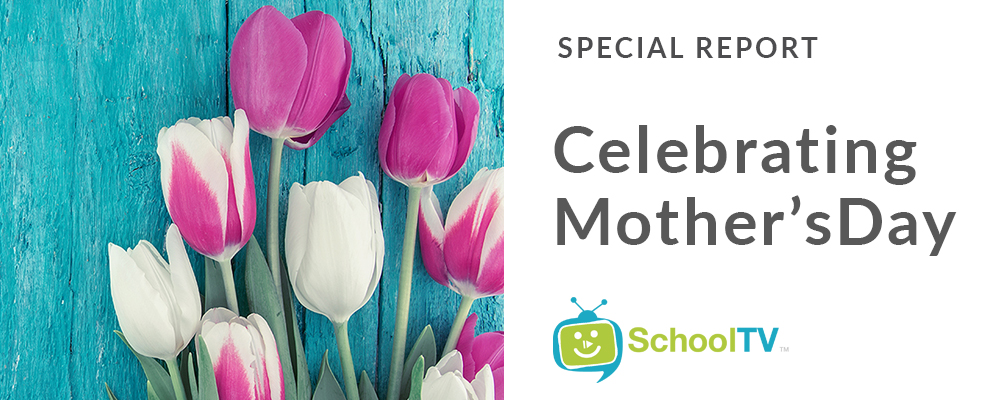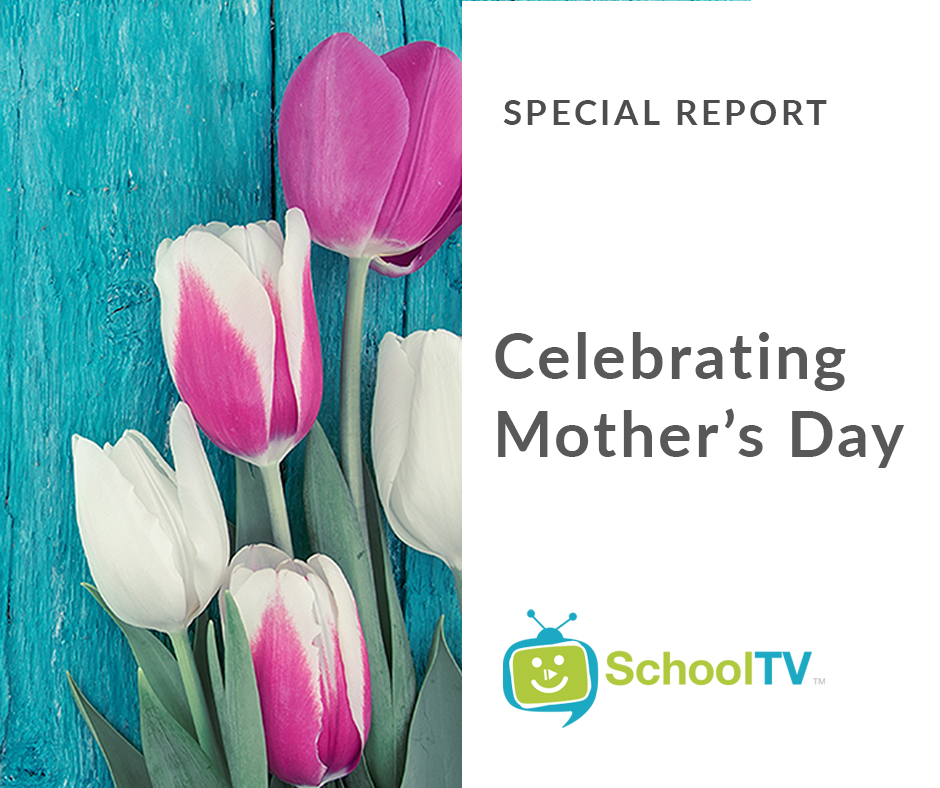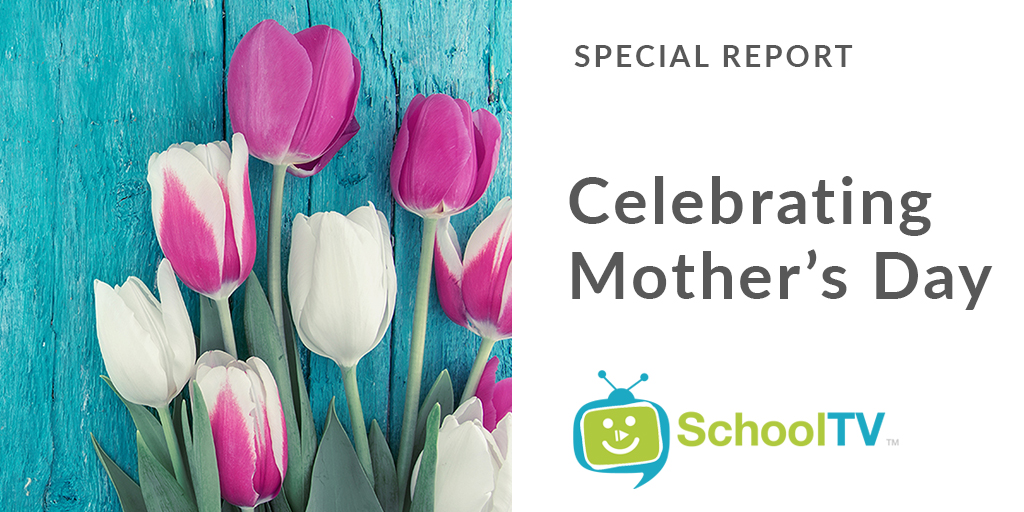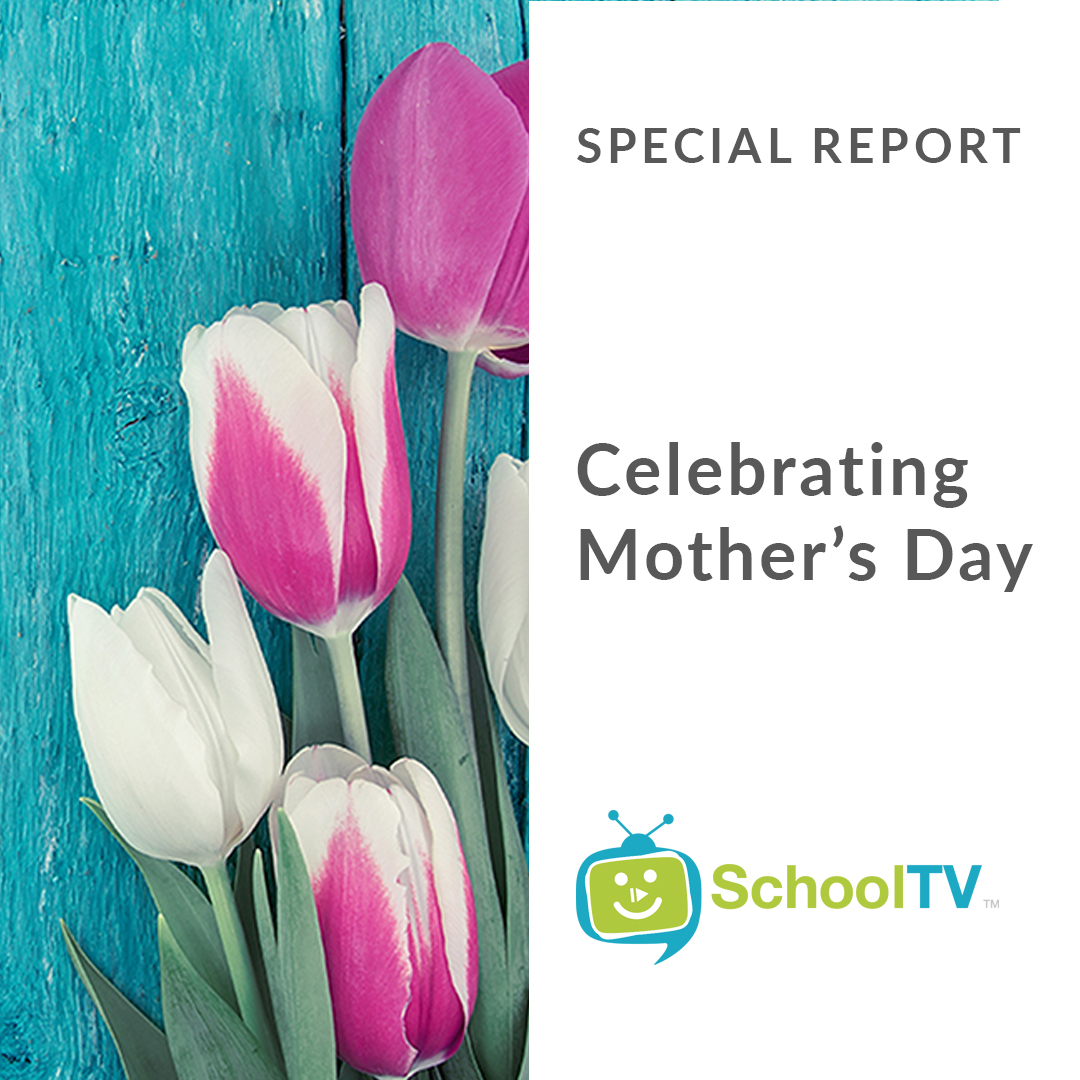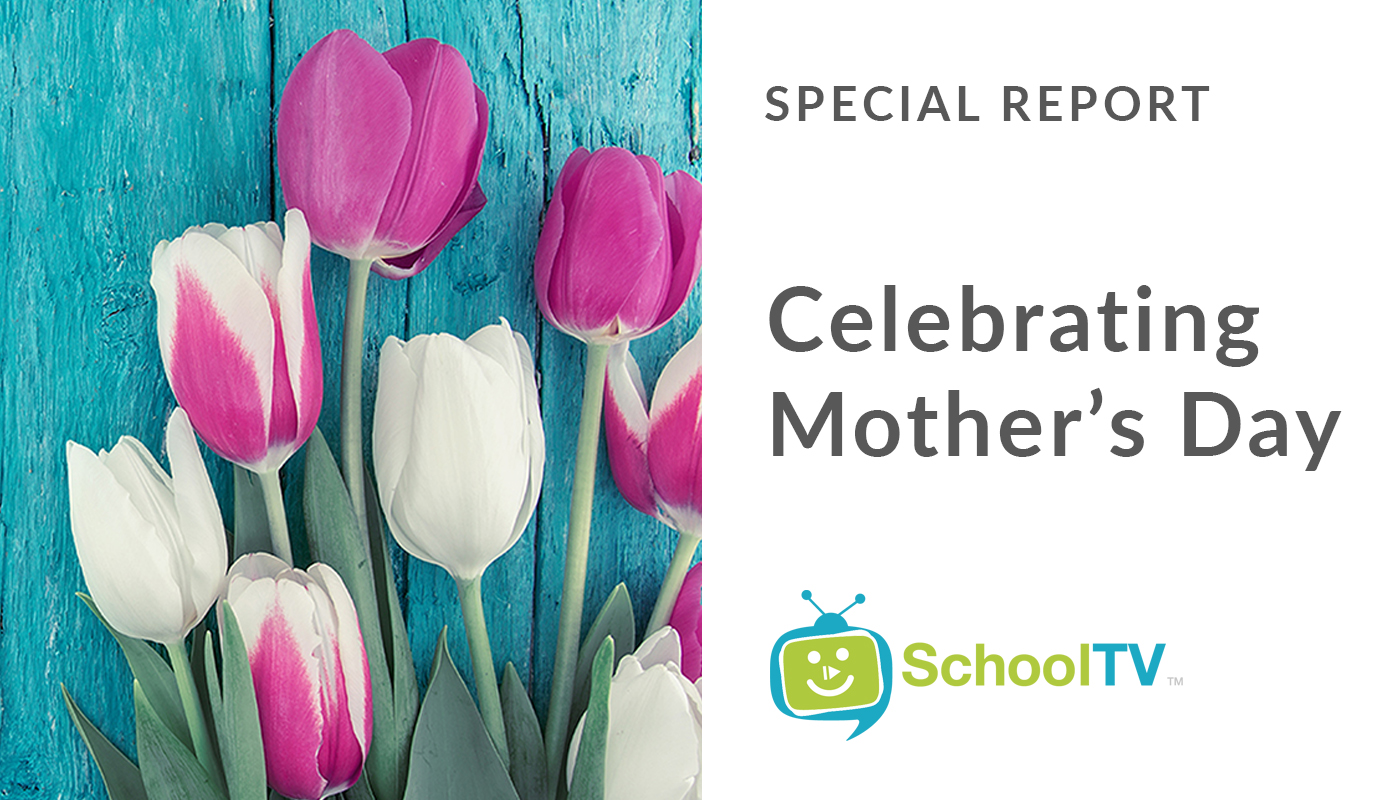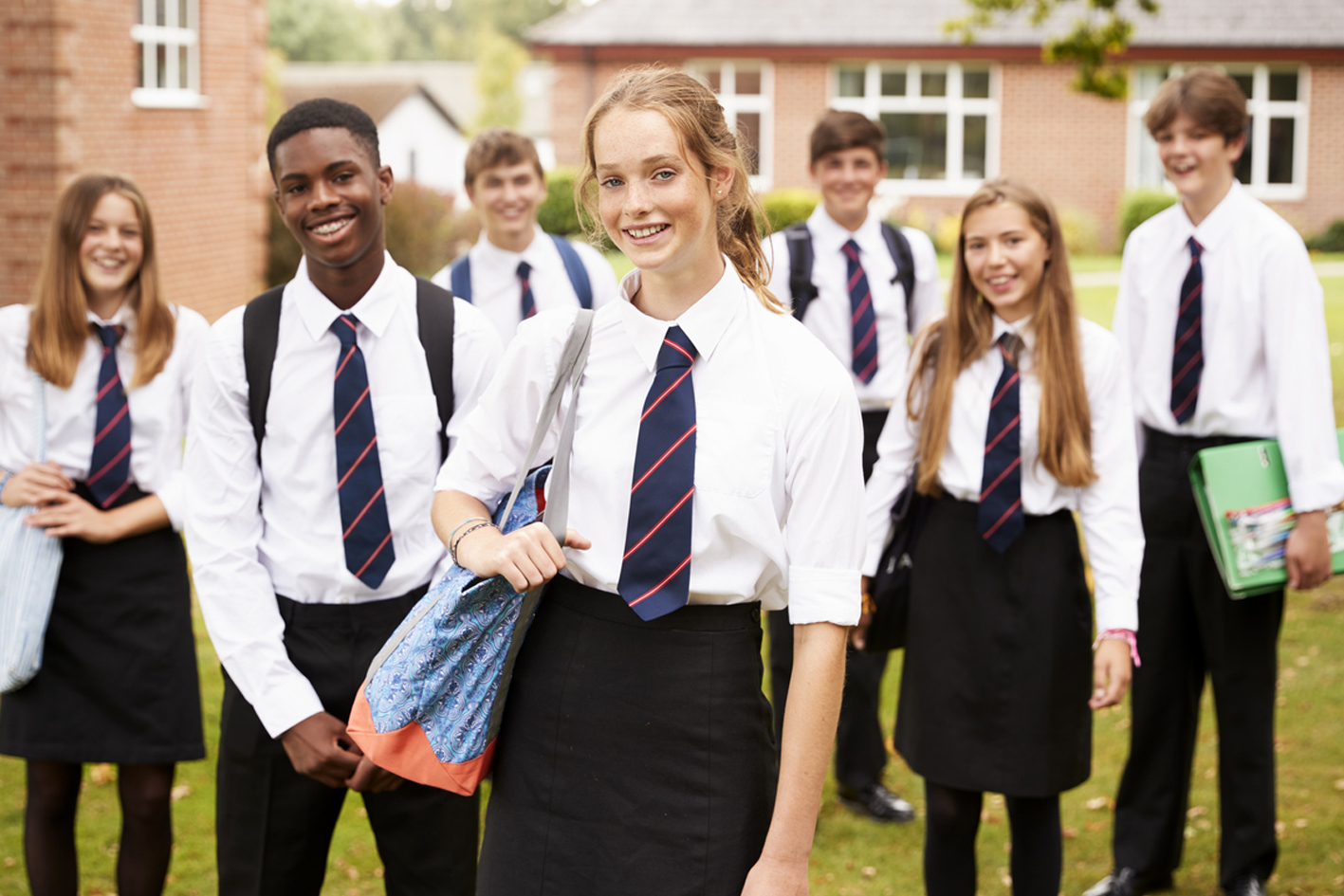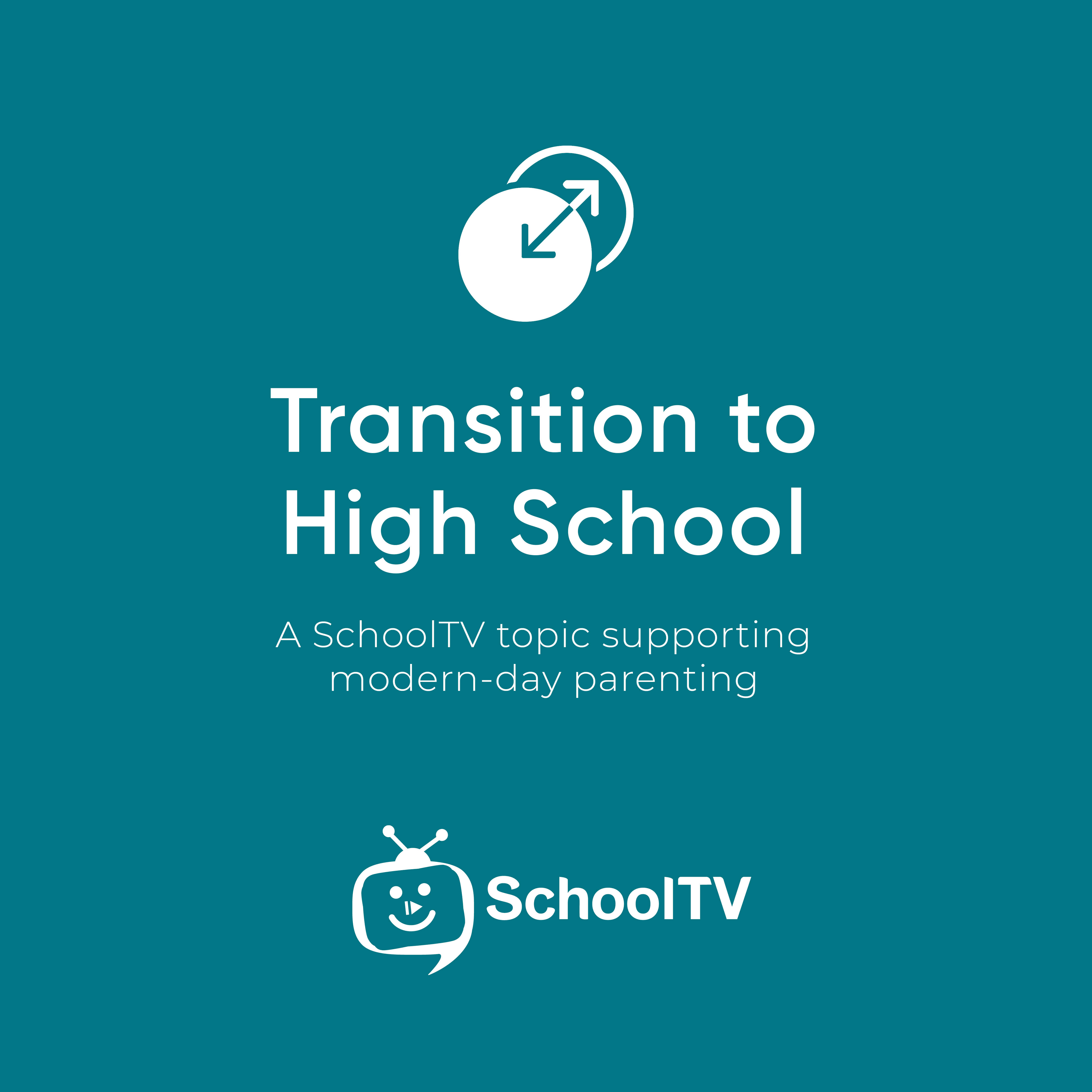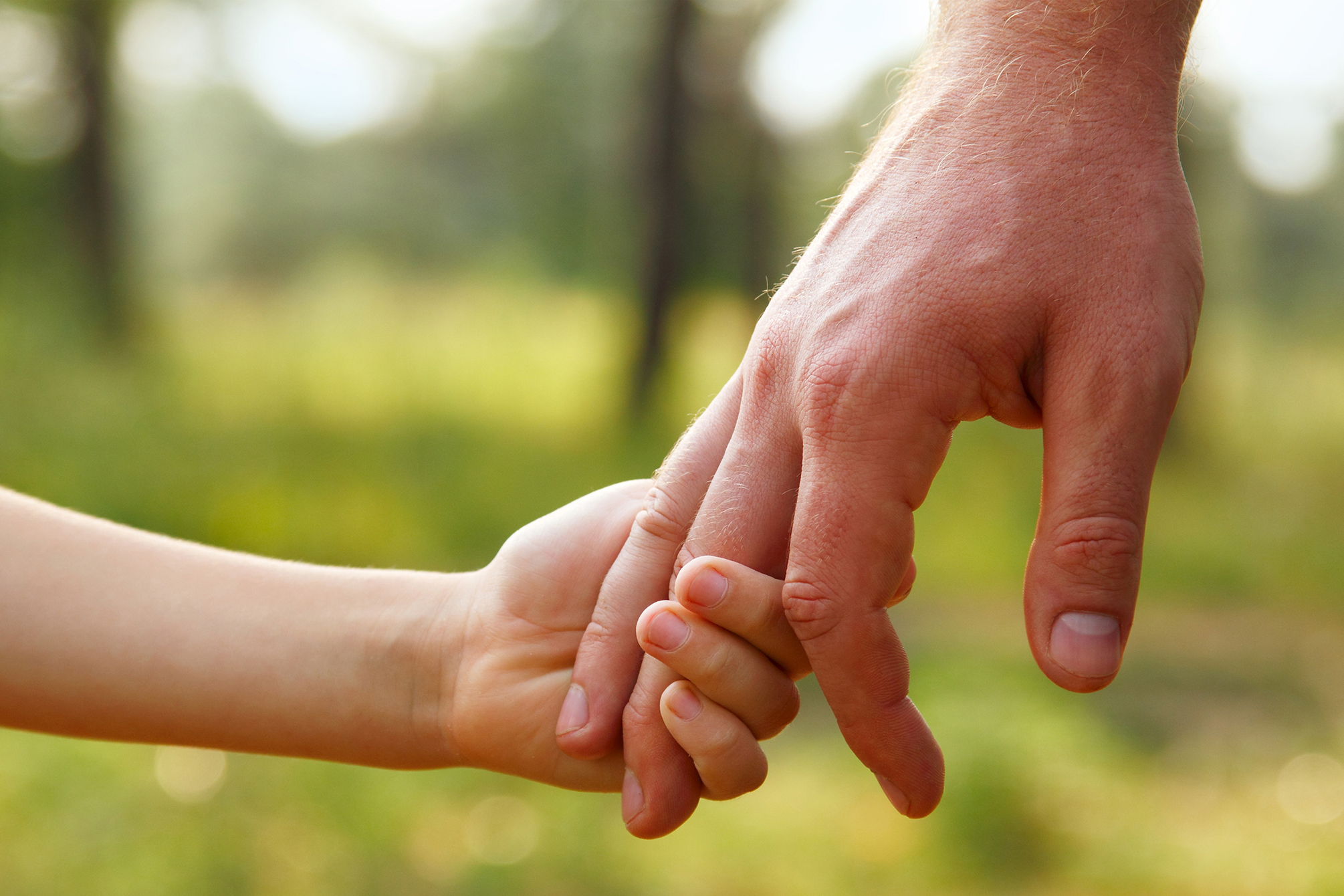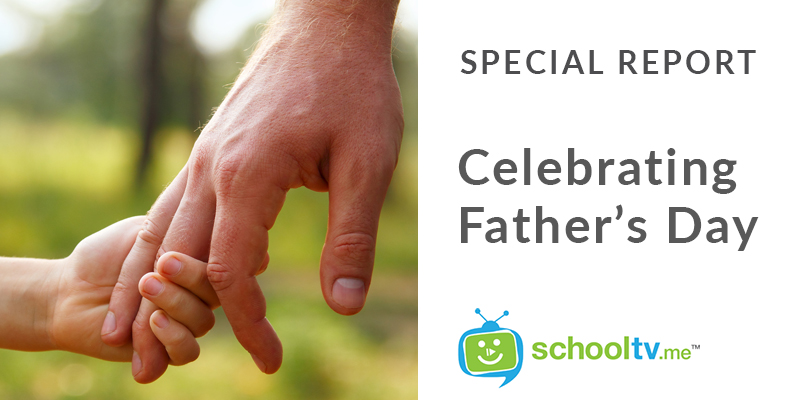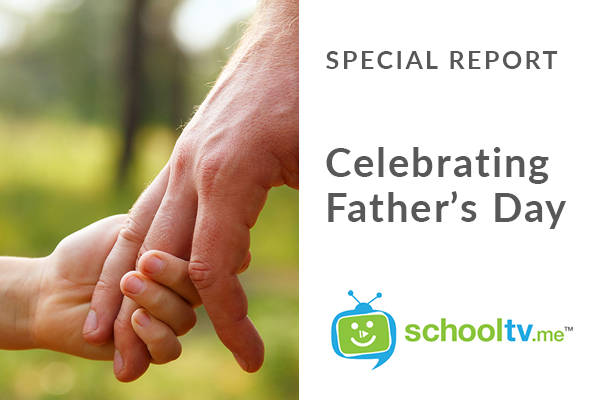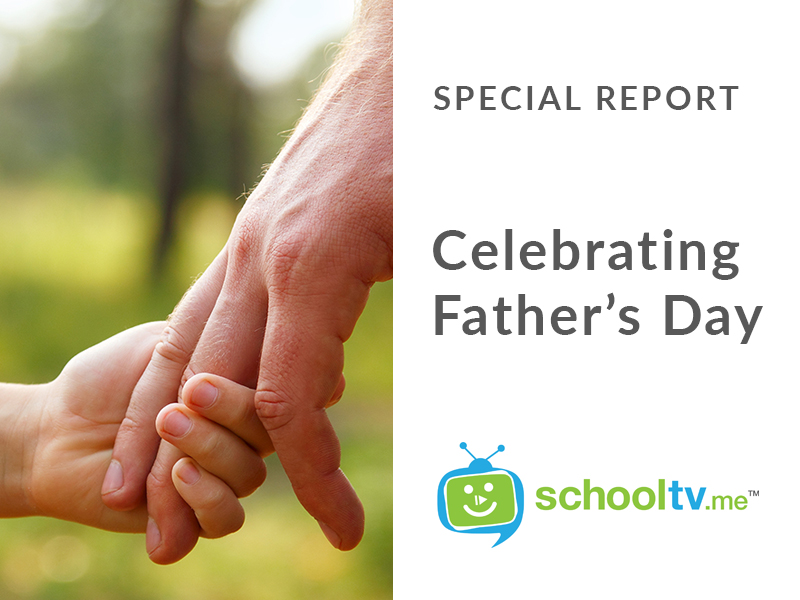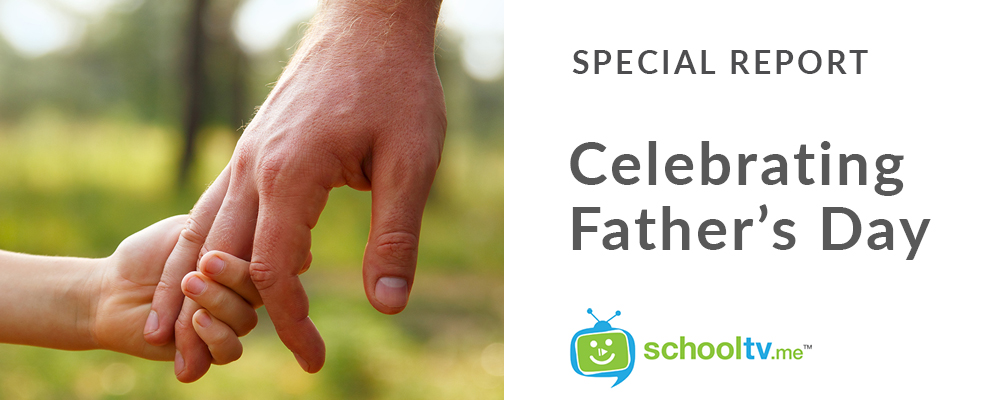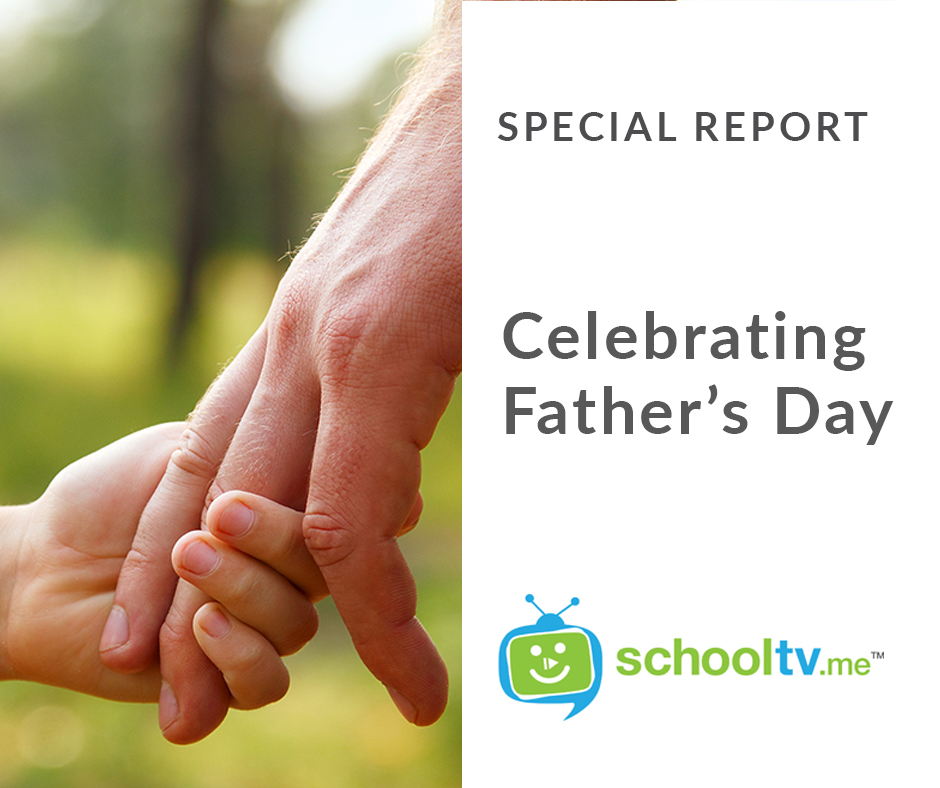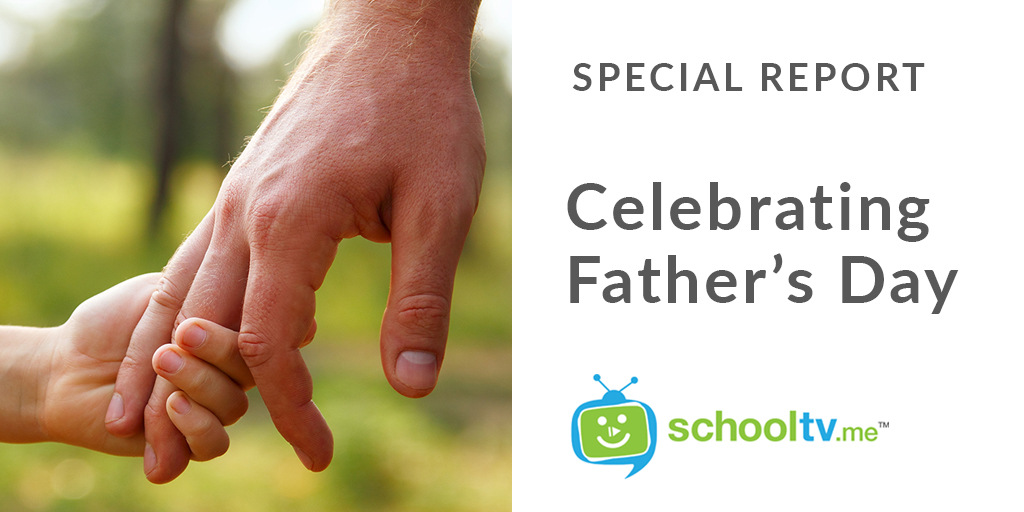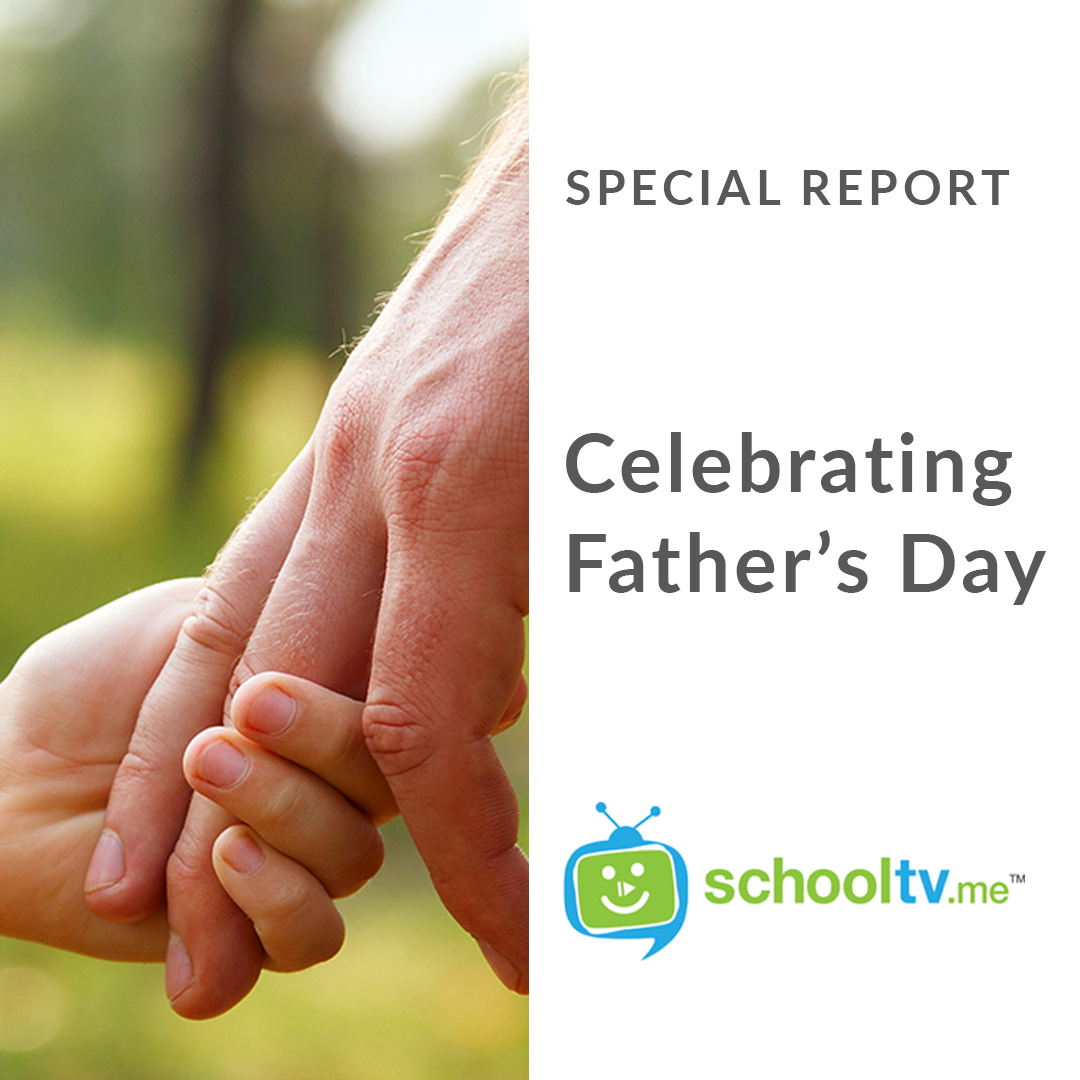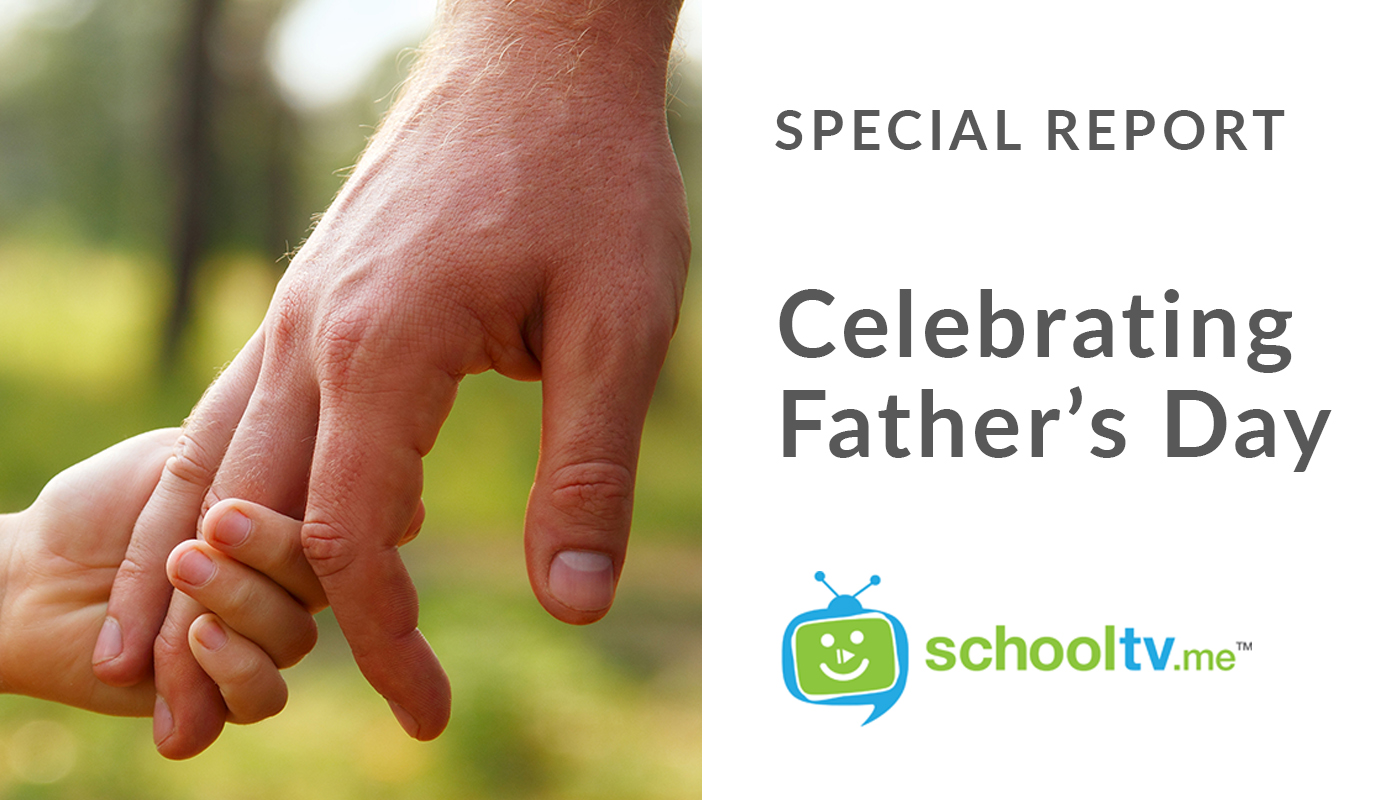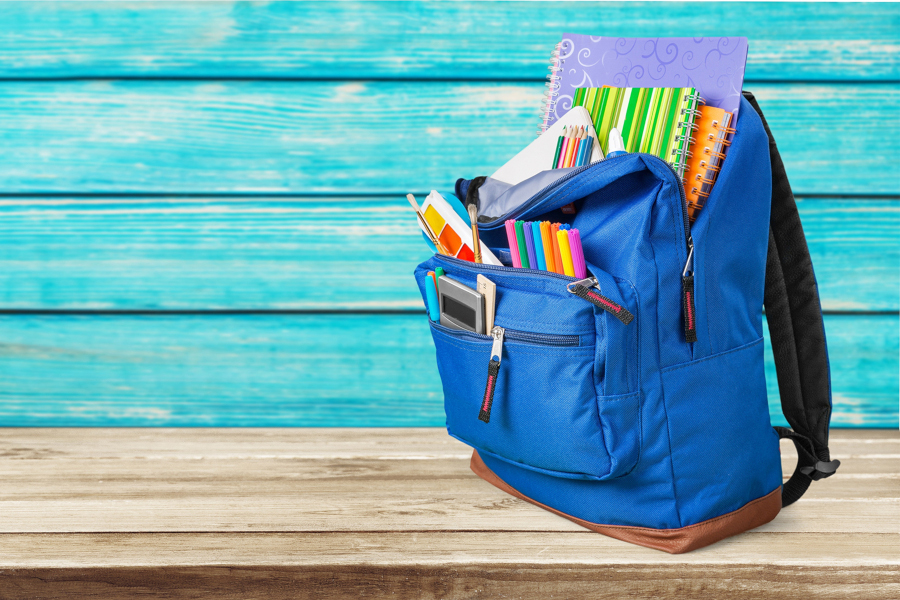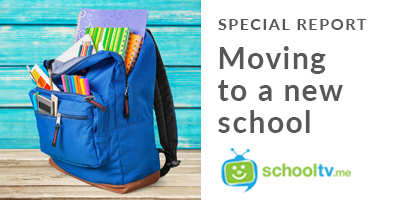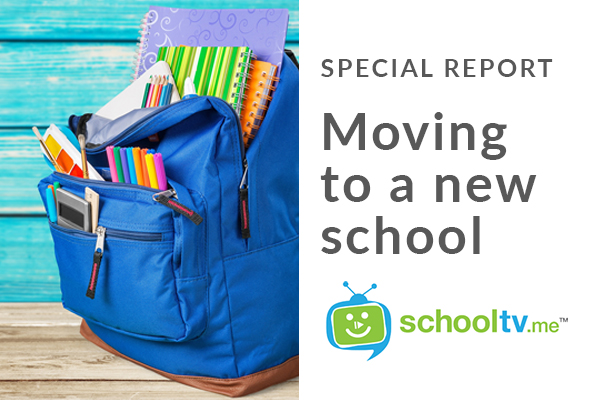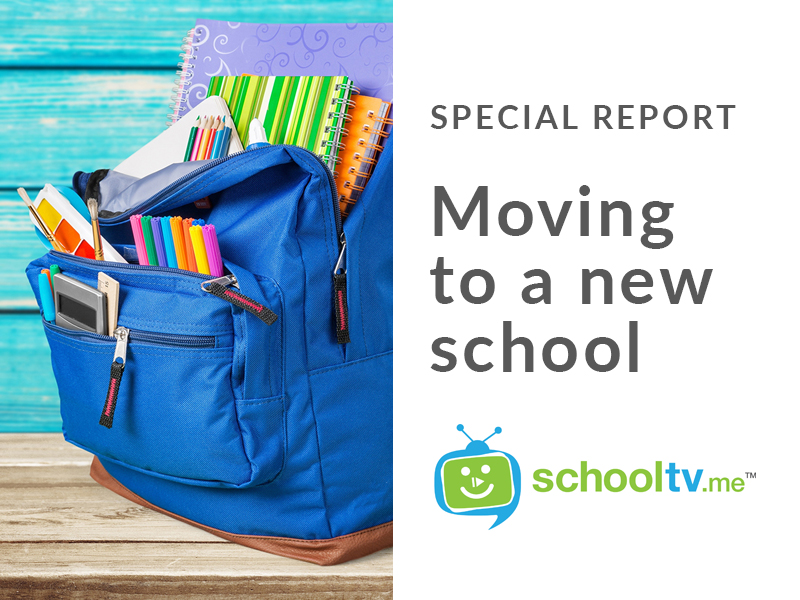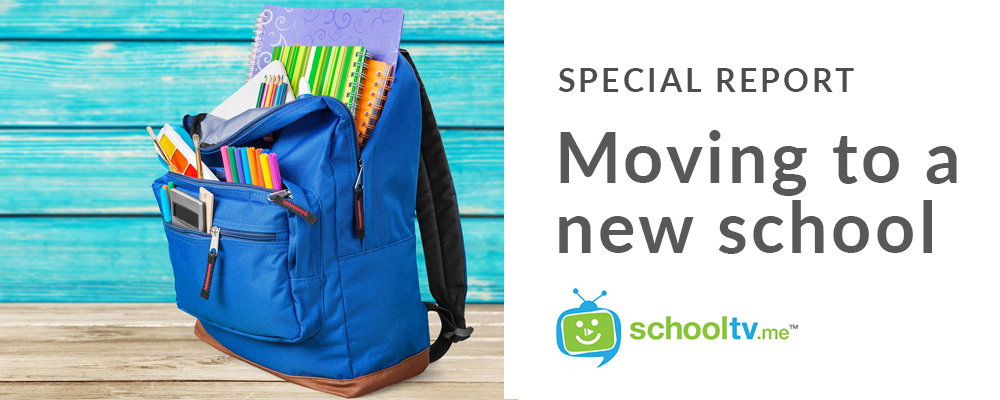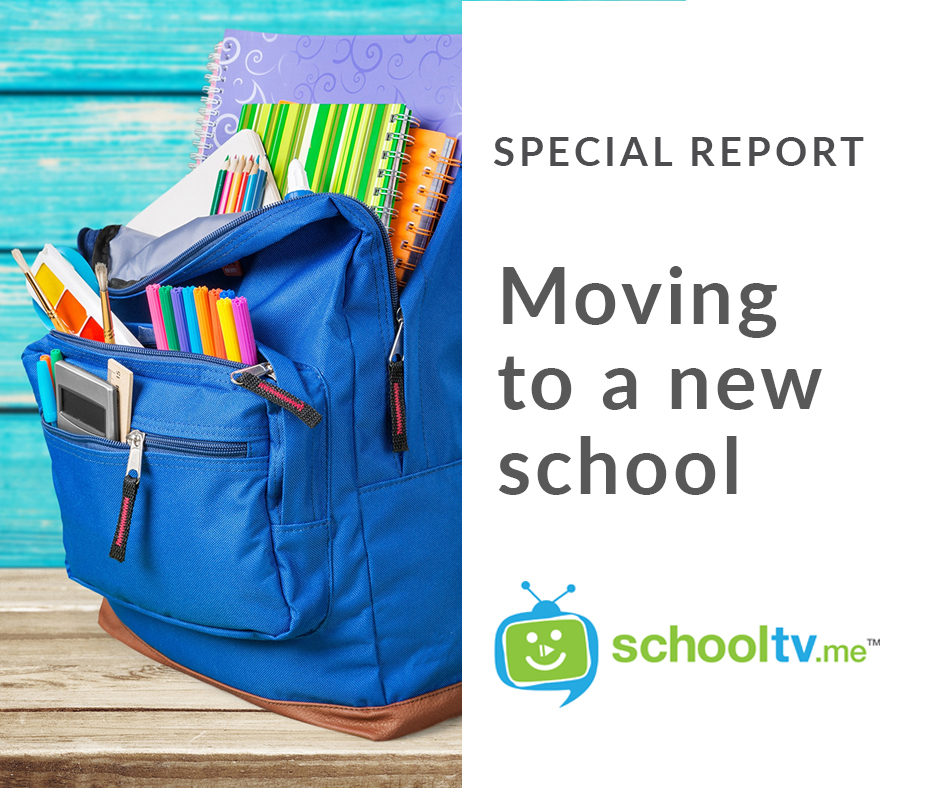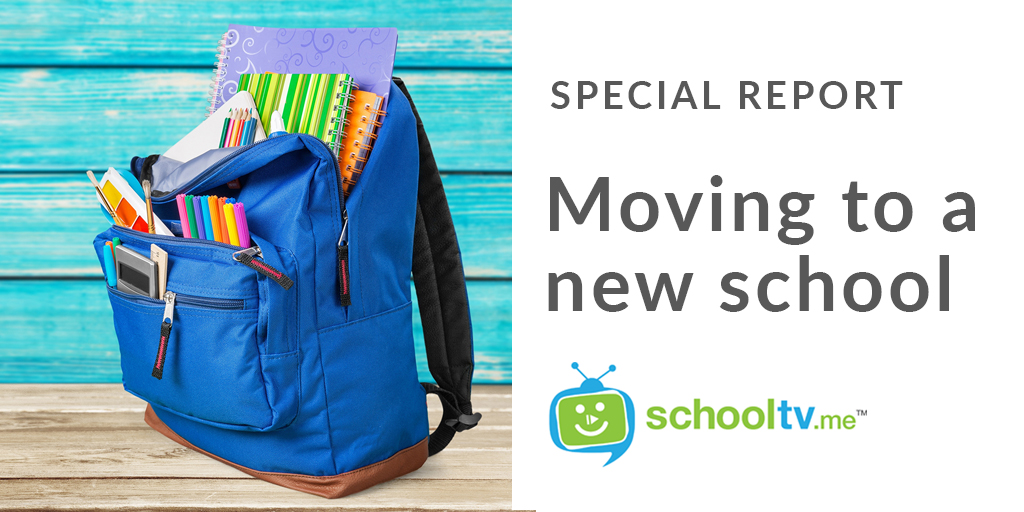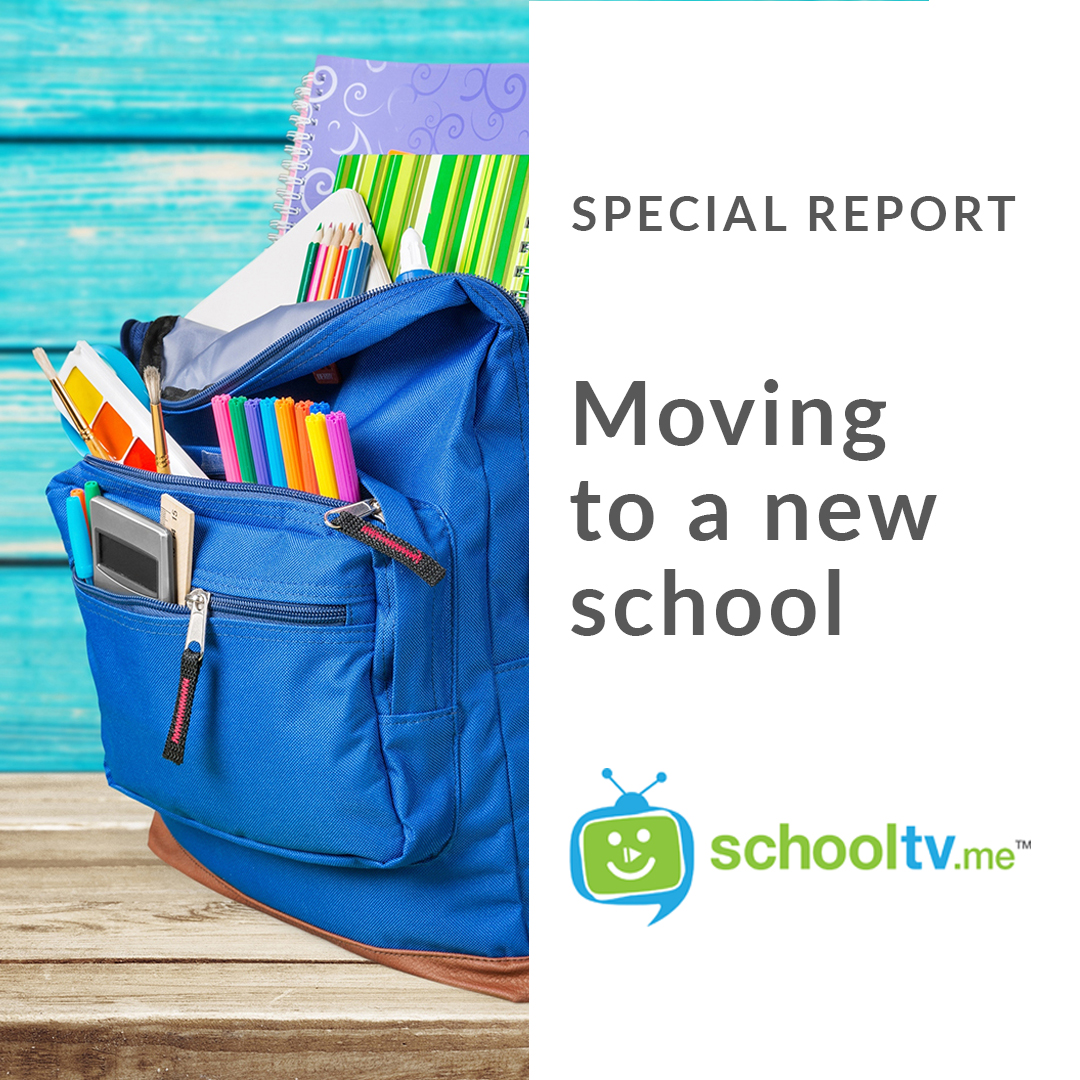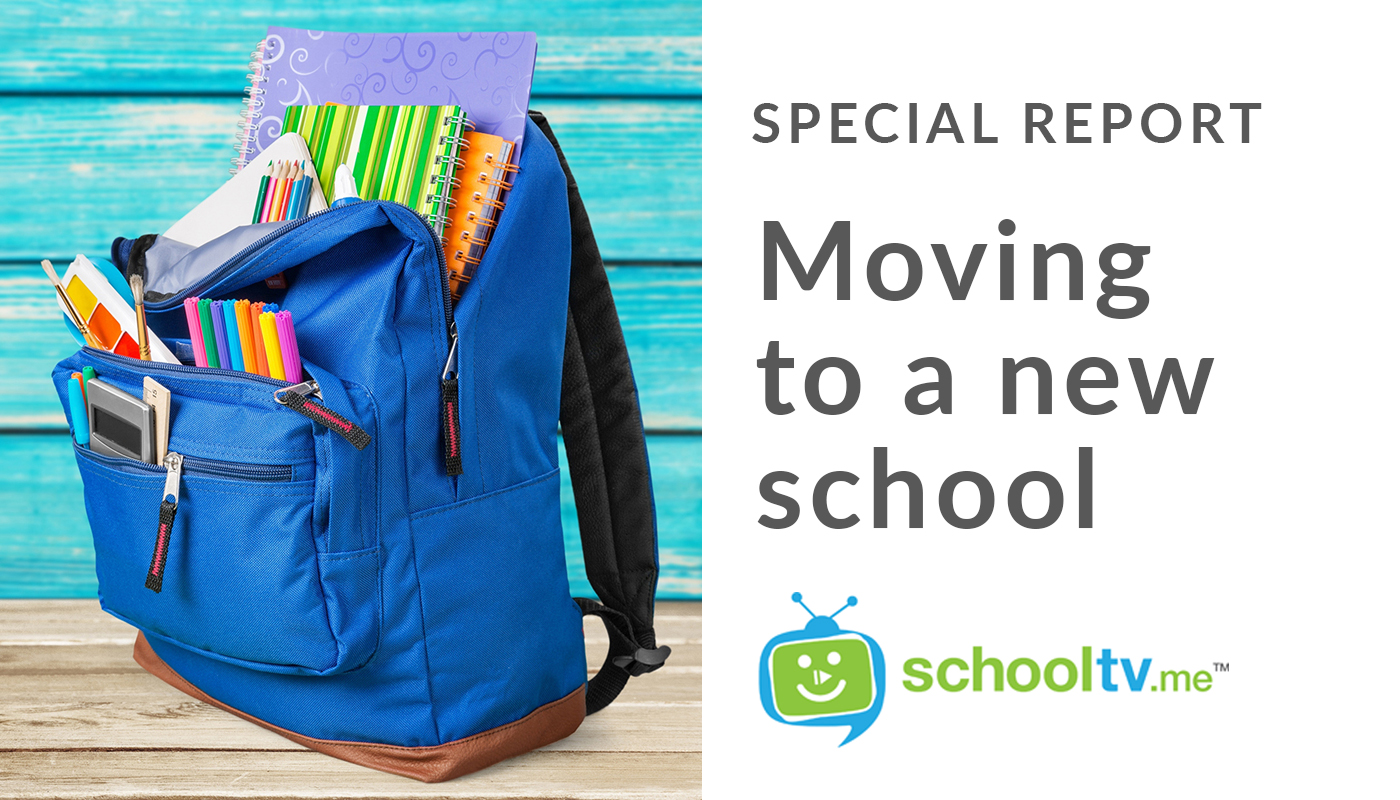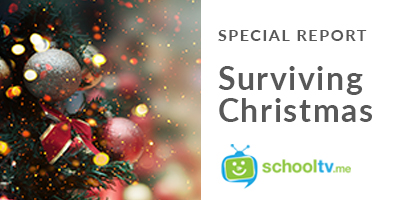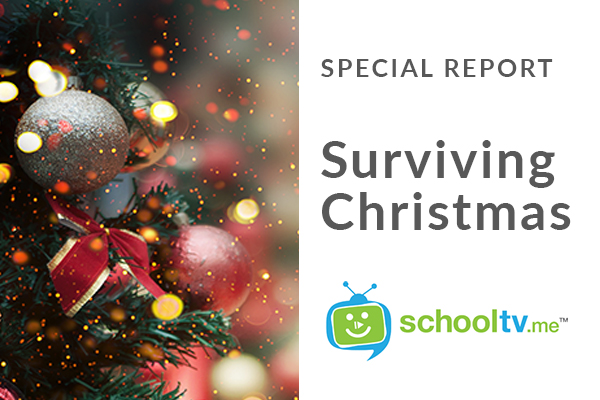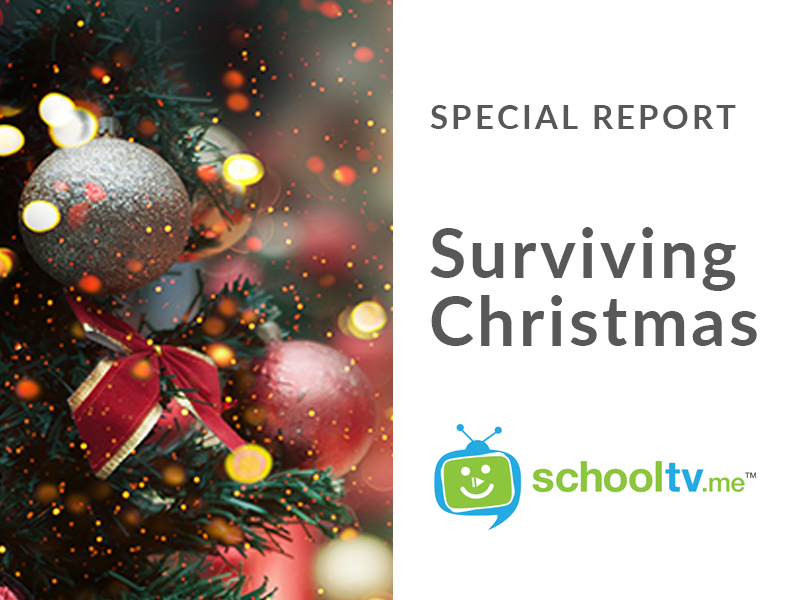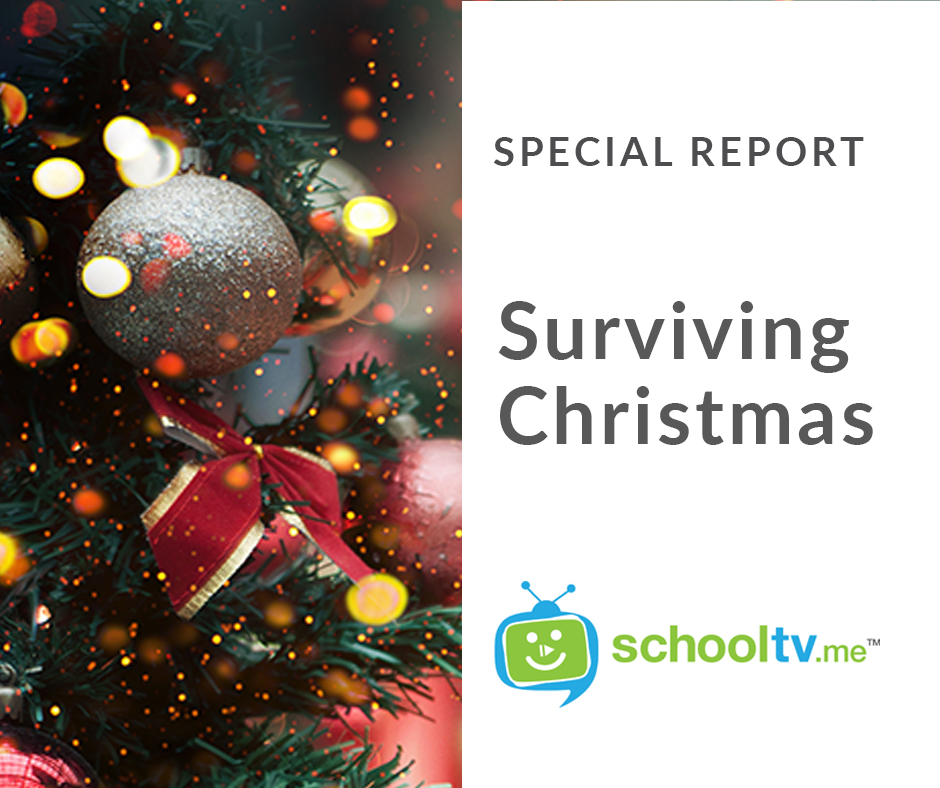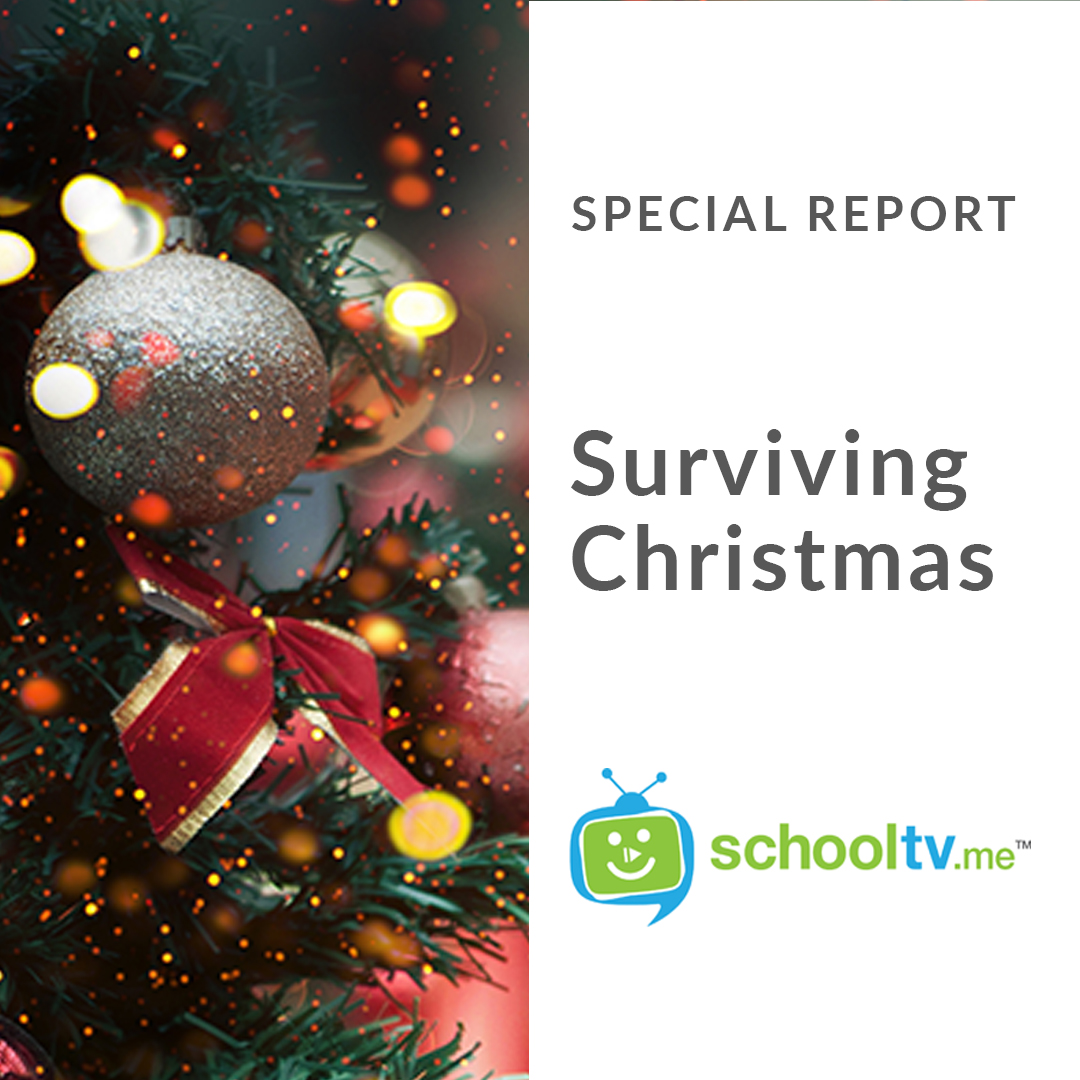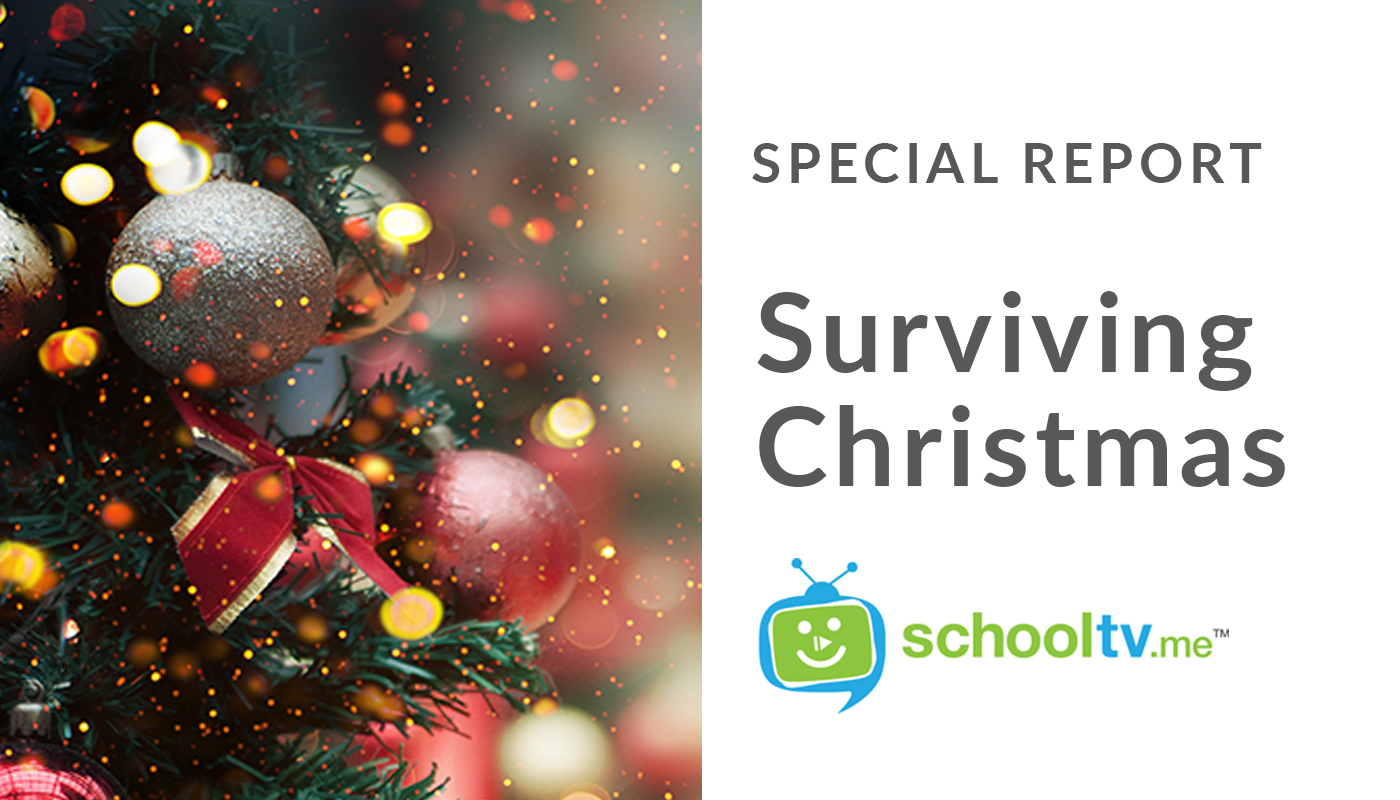Special Reports
Special Reports not only address current day issues that are of troubling to parents and schools, but they also link back to previous editions of SchoolTV. This gives parents a more well rounded approach to understanding the issues concerning today’s youth. In turn, this should then assist parents in deciding which is the best course of action to take to deal with any matters of concern.
A Special Report: Responding to Peer Pressure
Peer pressure is a natural part of growing up. As children and adolescents place greater importance on friendships and belonging, the influence of peers can shape their choices, behaviour and sense of identity. While this influence can be positive, it can also create pressure to conform or take risks, particularly during adolescence.
In today's digitally connected world, peer pressure extends beyond face-to-face interactions. Social media and online communication expose young people to constant comparison and unspoken expectations about how they should look, act and perform. Understanding how peer pressure works, both on and offline, helps families support young people to build confidence, make healthy decisions and stay connected to their own values.
We hope you take time to reflect on the information offered in this Special Report, and as always, we welcome your feedback.
If you do have any concerns about the wellbeing of your child, please contact the school for further information or seek medical or professional help.
Here is the link to your special report:
https://schooltv.me.uk/wellbeing_news/special-report-responding-peer-pressure
A Special Report: Embracing Change & New Beginnings
Change is a natural part of growing up. Whether it's the start of a new school year, moving between year levels, or stepping beyond the school gates for the final time, each transition brings a mix of emotions, presenting both opportunities and challenges. These shifts call on young people to adjust to new routines, navigate unfamiliar environments and develop emotional flexibility. While some may embrace these changes, others may find the disruption unsettling and struggle with the loss of predictability.
Research shows that periods of transition are often linked to heightened anxiety, reduced academic engagement and changes in peer relationships. For families, these periods can also bring added stress. Recognising the emotional and psychological impact of change helps us respond more effectively and supportively.
While change can feel daunting, it also offers valuable opportunities for young people to learn and grow. By normalising uncertainty and encouraging open conversations, we help young people face new beginnings with curiosity rather than fear. When children are surrounded by guidance, encouragement and consistent structure, they're far better equipped to manage life's transitions with confidence and resilience.
We hope you take time to reflect on the information offered in this Special Report, and as always, we welcome your feedback.
If you do have any concerns about the wellbeing of your child, please contact the school for further information or seek medical or professional help.
Here is the link to your special report:
https://schooltv.me.uk/wellbeing_news/special-report-embracing-change-new-beginnings
A Special Report: Parenting Styles
There's no such thing as perfect parenting. But by understanding different parenting styles, we can better support our children in healthier and more effective ways.
Most of us parent as a blend of our own upbringing, lived experiences and external influences such as books, podcasts or parenting websites. And while parenting is always a challenge, it can become even more complex through divorce, separation, blended families, trauma or bereavement. Not to mention life's many other hurdles.
The concept of "parenting styles" was first introduced in the 1960s by Diana Baumrind, a clinical and developmental psychologist. She identified four main categories of parenting. Each style shapes a child's development in different ways and comes with both strengths and challenges.
Although well-intentioned, each parenting approach can have drawbacks in a child's development. Every child is unique, and their needs change as they grow. An authoritative style may suit younger children, but teenagers often require a greater balance of guidance and independence. The goal is to create a secure environment where children feel respected, heard, and supported.
By learning more about the different styles and how they influence children, you can make informed choices about the approach that best suits your family. And remember, styles are not fixed. They can evolve over time as your child grows and their needs change.
We invite you to watch this Special Report and complete the quiz to discover your own parenting style. You might also like to compare your results with your partner's and reflect together on the different approaches you each bring to parenting.
We hope you take time to reflect on the information offered in this Special Report, and as always, we welcome your feedback.
If you do have any concerns about the wellbeing of your child, please contact the school for further information or seek medical or professional help.
Here is the link to your special report:
https://schooltv.me.uk/wellbeing_news/special-report-parenting-styles
A Special Report: World Mental Health Day
World Mental Health Day is marked every year on 10 October as a reminder of the importance of mental health to our overall wellbeing. It is a day that encourages families, schools, workplaces and communities across the globe to start conversations, reduce stigma and highlight the support available for those who may be struggling.
Mental health challenges can affect anyone: children, teens, and adults alike. Recognising this helps us create more compassionate and supportive environments.
Parents and caregivers play a central role in shaping the mental health of their children. World Mental Health Day is an opportunity to pause and reflect on the pressures young people face in today's world and how we can best support them. Whether it's helping children find balance between school, technology, and rest; encouraging open conversations about feelings; or modelling healthy coping strategies ourselves - small steps at home can make a big difference.
By engaging with resources and discussions on this day, families can strengthen their understanding of mental health and contribute to a culture where seeking help is seen as a sign of strength, not weakness.
This Special Report highlights the importance of World Mental Health Day and offers practical suggestions for how your family can acknowledge and support it together.
We hope you take time to reflect on the information offered in this Special Report, and as always, we welcome your feedback.
If you do have any concerns about the wellbeing of your child, please contact the school for further information or seek medical or professional help.
Here is the link to your special report:
https://schooltv.me.uk/wellbeing_news/special-report-world-mental-health-day
A Special Report: Wellbeing Barometer Survey 2025/26
The Wellbeing Barometer survey is an invaluable tool for schools, providing critical insights into the mental health and wellbeing of young people. This annual survey identifies areas of concern, highlights resilience and adaptability in students, and emphasises the importance of preventative strategies to promote positive outcomes.
Participation in this survey is strongly encouraged, as it offers a comprehensive view of students' experiences, challenges, and achievements. By capturing a detailed understanding of young people's experiences, the survey supports a tailored approach to enhancing their mental, emotional, and social wellbeing. It helps to identify strengths and areas for improvement, as well as pinpoint opportunities for early intervention.
The survey is part of an ongoing longitudinal study, and we encourage you to take a few moments to complete the survey for each of your children. Responses remain anonymous and should be based on your observations over the last 12 months. By working together, we can reduce the long-term impact of mental illness and make a meaningful difference to the lives of our young people for a brighter future.
Please reflect on the information offered in this Special Report, and as always, we welcome your feedback. If this raises any concerns for you or your child, please reach out to the school or seek professional medical advice.
We hope you take time to reflect on the information offered in this Special Report, and as always, we welcome your feedback.
If you do have any concerns about the wellbeing of your child, please contact the school for further information or seek medical or professional help.
Here is the link to your special report:
https://schooltv.me.uk/wellbeing_news/special-report-wellbeing-barometer-survey-202526
A Special Report: Shaping Healthy Masculinity
In today's fast-moving world, many boys are struggling to find direction. Even well-meaning online searches about fitness, confidence or relationships can lead them to content that promotes rigid or unhealthy ideas about masculinity. The critically acclaimed TV show 'Adolescence' has brought fresh attention to this issue, highlighting how boys are often exposed to messages that glorify toughness and dominance, while dismissing empathy and emotional openness.
These outdated beliefs can limit emotional growth and impact how boys relate to others - with real consequences in schools, homes and communities. That's why it's more important than ever to guide boys with care, clarity and connection.
By offering healthier role models, safe spaces to talk, and encouraging respectful friendships - especially across genders - we can help boys develop the confidence, empathy and relationship skills they need to thrive.
This special report calls for a cultural shift and advocates for curiosity-driven dialogue that builds trust and critical thinking. The goal is to raise boys who are not just resistant to harmful influences, but actively capable of questioning and rejecting them.
We hope you take time to reflect on the information offered in this Special Report, and as always, we welcome your feedback.
If you do have any concerns about the wellbeing of your child, please contact the school for further information or seek medical or professional help.
Here is the link to your special report:
https://schooltv.me.uk/wellbeing_news/special-report-shaping-healthy-masculinity
A Special Report: Living in Multicultural Environments
Boarding schools are often a melting pot of multiculturalism and ethnic diversity. Therefore, living away from home can present challenges other than just a longing to be back with family and friends. Missing your culture, language and community can also play an intrinsic part.
Students come together to learn and co-habit in surroundings that are sometimes unfamiliar and daunting. Assimilating to boarding school can be a difficult time, especially for students whose home environments may be vastly different to their new surroundings. It can often result in a period of adjustment and transition. Ensuring all students feel connected and have a sense of belonging during this time is crucial to their long-term academic and health outcomes.
Feeling that sense of belonging is a fundamental human need. It is therefore important for children to learn at an early age how to respect and embrace differences between races and cultures, rather than judge them. Parents and caregivers play a vital role in fostering a cultural literacy and awareness providing a deeper understanding of international perspectives and an appreciation for the fact that things are done differently all over the world.
This Special Report emphasises the importance of discussing diversity and multiculturalism to ensure all students feel supported to be their most authentic self and accepting of others.
We hope you take time to reflect on the information offered in this Special Report, and as always, we welcome your feedback.
If you do have any concerns about the wellbeing of your child, please contact the school for further information or seek medical or professional help.
Here is the link to your special report:
https://schooltv.me.uk/wellbeing_news/special-report-living-multicultural-environments
A Special Report: Social Media & Comparison Culture
Young people today are growing up in a world where exposure to other people's lives is constant. Through social media and other platforms, they are regularly presented with curated highlights - from flawless holiday photos and academic milestones to the latest fashion trends and fitness achievements. This continuous stream of idealised content fuels what is known as comparison culture, where self-worth is often measured by how someone stacks up against others.
For children and adolescents, who are still figuring out who they are, this culture can be particularly damaging. Constantly comparing their appearance, achievements, or social standing to friends, influencers, and even strangers can lead to unrealistic expectations and a skewed sense of self-worth. This relentless need to measure up can contribute to feelings of inadequacy, self-doubt, and anxiety - undermining both confidence and emotional wellbeing.
It's vital that parents and caregivers understand how deeply comparison culture can influence a child's self-perception and sense of value. Left unchecked, it can foster perfectionism and a dependence on external validation, where a 'like' or comment becomes the measure of their worth.
The good news is, families have a powerful role to play in helping young people navigate these challenges. This Special Report will help you empower your child to build the resilience and confidence needed to navigate today's comparison-driven world and embrace their own unique path.
We hope you take time to reflect on the information offered in this Special Report, and as always, we welcome your feedback.
If you do have any concerns about the wellbeing of your child, please contact the school for further information or seek medical or professional help.
Here is the link to your special report:
https://schooltv.me.uk/wellbeing_news/special-report-social-media-comparison-culture
A Special Report: Healthy Study Habits
In today's world, where distractions are abundant and the pressure to excel is high, guiding children to develop healthy study habits is more important than ever. As students aspire to achieve academic success, the cornerstone of that achievement lies not just in their intelligence or drive, but in the study habits they cultivate.
It's essential for students to recognise that good study habits aren't merely about spending extra hours hitting the books. It's more about quality over quantity and having a more balanced approach. Emphasising the value of a routine is essential. Consistent study times establish a sense of structure and discipline, turning studying into a natural part of their daily routine rather than a burdensome task.
Additionally, how students approach their study sessions is equally important. Taking regular breaks is a crucial part of this process in maintaining focus and preventing burnout.
Maintaining a healthy lifestyle that includes sufficient sleep, a balanced diet, and consistent physical activity are indispensable elements that will significantly impact your child's ability to study effectively. Fostering these healthy habits is one of the most valuable gifts we can offer children, paving the way for a lifetime of learning and achievement.
This Special Report will help you support your young person as they embark on studying for exams.
We hope you take time to reflect on the information offered in this Special Report, and as always, we welcome your feedback.
If you do have any concerns about the wellbeing of your child, please contact the school for further information or seek medical or professional help.
Here is the link to your special report:
https://schooltv.me.uk/wellbeing_news/special-report-healthy-study-habits
A Special Report: Navigating AI Relationships
Despite governments globally moving towards raising the minimum age for social media access due to mounting concerns about the negative effects on youth mental health and wellbeing, there's now an even newer challenge on the horizon - the rise of romantic and companion AI bots. These virtual companions are becoming increasingly popular with young people, raising serious questions about privacy, ethics, and the future of relationships in the digital age.
The rise of AI-powered relationships is offering a new frontier in human interaction. Initially emerging in the gaming world, AI companionship has evolved into mainstream culture, with apps providing personalised experiences that range from platonic friendships to romantic encounters. These interactions can blur the boundaries between real and virtual relationships, creating confusion and potential psychological harm.
Criminologists warn that children as young as 12 are accessing dating apps, often bypassing age restrictions, exposing them to sexual content and predatory behaviour. Researchers have also found that many adolescents are turning to virtual partners for validation, risking unhealthy emotional attachments that can affect real-life relationships.
As AI reshapes social dynamics, it's crucial to stay informed and engaged. While AI can enhance education and creativity, it also presents challenges around privacy, mental health, and misinformation.This Special Report will help you foster an open dialogue and balanced approach to help young people navigate this evolving digital landscape.
We hope you take time to reflect on the information offered in this Special Report, and as always, we welcome your feedback.
If you do have any concerns about the wellbeing of your child, please contact the school for further information or seek medical or professional help.
Here is the link to your special report:
https://schooltv.me.uk/wellbeing_news/special-report-navigating-ai-relationships
A Special Report: Wellbeing Barometer Survey: 2024 - 2025
The Wellbeing Barometer survey has proven to be an invaluable tool for schools, providing insights into the state of youth mental health and wellbeing with a new survey being released each year. The results focus on areas of concern and highlights areas of resilience and the adaptability of students, in addition to emphasising the necessity of prevention strategies.
Participating in the yearly survey will assist in identifying areas of strength and concern, as well as pinpointing opportunities for early intervention. Previously gathered information has helped support families as they navigate difficult conversations that enable understanding and foster connections to build relationships.
This survey is part of an ongoing, longitudinal study, with the results being instrumental in tailoring support for students and their families. Participation is strongly encouraged, as it provides a comprehensive view of students' experiences, challenges, and achievements over the past year. Its aim is to capture a comprehensive picture of young people's lives, allowing for a tailored approach to enhance mental and emotional wellbeing.
We encourage you to take a few moments to complete a survey for each of your children. This will help us determine the nature and extent of your concerns and how best to support families in the months ahead. Responses remain anonymous and will only be reported on an aggregated basis. You are asked to base your responses on observations made in the last 12 months.
Acquiring the skills for future independence, taking healthy risks, and giving young people the opportunity to emancipate from parents, are key developmental tasks that are essential if we are to stave off the impact of mental illness in the future.
We hope you take time to reflect on the information offered in this Special Report, and as always, we welcome your feedback.
If you do have any concerns about the wellbeing of your child, please contact the school for further information or seek medical or professional help.
Here is the link to your special report:
https://schooltv.me.uk/wellbeing_news/special-report-wellbeing-barometer-2024-2025
A Special Report: Trauma Recovery
Trauma in children significantly disturbs their sense of safety and normalcy, leading to substantial emotional and behavioural changes. Such disturbances often result from exposure to traumatic events, which may be exacerbated by continuous media coverage. This exposure can trigger stress, anxiety, and trauma, with varying recovery timelines due to the unpredictable nature of trauma's impact. Observing young people grappling with these effects can be highly distressing for parents and caregivers.
It's important to establish a nurturing environment to help restore a child's sense of security to help promote resilience. Active involvement in their recovery is essential, as is recognising the unique, personalised needs of each child in responding to trauma. Depending on their age, children may present with different symptoms, such as regressive behaviours in younger ones or withdrawal and agitation in older children and teens. It is important to monitor and manage the type of information children may access to reduce their emotional distress.
The brain stores traumatic events as powerful emotional memories, influencing behaviour through mechanisms beyond a child's conscious awareness. By providing young people with support and equipping them with coping mechanisms to handle uncertainty, parents and carers can greatly enhance a child's capacity to recover and build long-term emotional resilience.
This Special Report will help you identify a child experiencing trauma and how you can support them to overcome it.
We hope you take time to reflect on the information offered in this Special Report, and as always, we welcome your feedback.
If you do have any concerns about the wellbeing of your child, please contact the school for further information or seek medical or professional help.
Here is the link to your special report:
https://schooltv.me.uk/wellbeing_news/special-report-trauma-recovery
A Special Report: Smokeless Tobacco Products
The evolving nicotine landscape requires parents and caregivers to stay informed to protect young people from these emerging threats. Snus and nicotine pouches are gaining popularity among young people as smokeless tobacco (SLT) products. Both products are discreetly placed under the upper lip, allowing nicotine absorption through the gums.
Health authorities are urging proactive measures to curb this growing trend and calling on regulators to implement controls before these products become as widespread as vapes. The high nicotine levels in these products pose serious health risks, including nicotine addiction, cardiovascular disease, gum disease, tooth decay, and even nicotine poisoning. Researchers highlight the detrimental effects of nicotine on developing brains, linking its use to depression, anxiety, ADHD symptoms, and an increased risk of addiction to other drugs.
The marketing of snus and nicotine pouches targets young audiences through social media influencers, raising concerns about their increasing popularity among school students. And like vapes, they come in various flavours and strengths, with unregulated nicotine levels leading to inconsistent and misleading labelling. It is clear that SLT products contain not only nicotine, but also other chemicals with unknown long-term effects.
This Special Report will help you become aware of the potential risks of smokeless tobacco products and guide you in age-appropriate discussions with your child.
We hope you take time to reflect on the information offered in this Special Report, and as always, we welcome your feedback.
If you do have any concerns about the wellbeing of your child, please contact the school for further information or seek medical or professional help.
Here is the link to your special report:
https://schooltv.me.uk/wellbeing_news/special-report-smokeless-tobacco-products
A Special Report: Celebrating IDAHOBIT
We possess a profound ability to shape our children's attitudes and beliefs, embedding values of acceptance, inclusivity, and respect for all.
The International Day Against Homophobia, Biphobia, Intersexism, and Transphobia (IDAHOBIT), celebrated each year on May 17th, emphasises the critical need to educate children about diversity and inclusivity. Inaugurated in 2004 by the World Health Organization, this day is a global call to promote tolerance and combat discrimination against the LGBTQIA+ community.
Instilling respect and acceptance for people of all sexual orientations and gender identities in children is crucial. Celebrating IDAHOBIT helps families communicate a strong stance against discrimination, highlighting the importance of diversity and the damaging effects of stereotypes and biases. These prejudices often arise from the media, societal interactions, and peer influences, necessitating proactive efforts from parents and caregivers to counteract and discuss these issues.
Creating inclusive environments supports diversity and plays a vital role in raising awareness and demonstrating solidarity with LGBTQIA+ students and community members. It is a commitment to creating a world free from prejudice and discrimination, instilling values of empathy, respect and inclusivity.
This Special Report will help you fostering acceptance, empowering young people to become compassionate and informed advocates for equality.
We hope you take time to reflect on the information offered in this Special Report, and as always, we welcome your feedback.
If you do have any concerns about the wellbeing of your child, please contact the school for further information or seek medical or professional help.
Here is the link to your special report:
https://schooltv.me.uk/wellbeing_news/special-report-celebrating-idahobit
A Special Report: Eating Anxiety
The complexity of eating anxiety stems from a combination of social, psychological, and environmental factors. Young people may develop this anxiety due to social pressures related to eating in front of others, fears about body image, or due to more ingrained issues such as eating disorders. Additionally, cultural norms or dietary restrictions can also play significant roles, as can direct experiences like bullying or teasing related to food choices or eating habits.
Whilst not a formally recognised condition, eating anxiety is a genuine and often overwhelming experience that can significantly hinder a young person's ability to participate in everyday activities comfortably. This condition can lead to serious nutritional deficiencies and social withdrawal, impacting overall health and academic performance.
Recognising and addressing eating anxiety is crucial for parents, carer, and educators. Through education, policy changes, and community support, we can help young people manage their anxieties and improve their relationship with food, thereby enhancing their overall well-being and social interactions.
This Special Report will help you understand how best to support a child experiencing anxiety around eating.
We hope you take time to reflect on the information offered in this Special Report, and as always, we welcome your feedback.
If you do have any concerns about the wellbeing of your child, please contact the school for further information or seek medical or professional help.
Here is the link to your special report:
https://schooltv.me.uk/wellbeing_news/special-report-eating-anxiety
A Special Report: Toxic Achievement Culture
Toxic achievement culture is characterised by the entanglement of self-worth, achievement and the relentless pursuit of academic or extracurricular success — at any cost! This phenomenon goes beyond the mere quest for success. it embeds a belief in students that their merit is exclusively tied to their achievements, often propelled by intense external pressures from families, schools, and society.
Some students are overfilling their schedules with activities aimed at "getting ahead”. However, the consequences are proving to be detrimental on students' mental and physical health resulting in burnout and heightened levels of stress. This culture is also being aggravated by parental expectations, peer competition and a relentless comparison ethos often driven by social media.
There is nothing wrong with having ambition, but it's crucial to ensure that this desire doesn't push our young people into a toxic cycle of achievement and make them feel that they must achieve in order to matter. The relentless drive to excel is leading many students to prioritise accolades over genuine learning and personal growth, often at the expense of their own wellbeing and interpersonal relationships. As adult carers, we need to advocate for a more balanced and holistic approach to achievement, emphasising the importance of resilience, wellbeing, and the pursuit of diverse interests.
This Special Report will help you understand the signs of toxic achievement, and how to address them so as to teach students how to adopt a better work/life balance. We hope you take a moment to reflect on the information offered, and as always, we welcome your feedback. If this raises any concerns for you, a loved one or the wellbeing of your child, please consider seeking medical or professional help.
We hope you take time to reflect on the information offered in this Special Report, and as always, we welcome your feedback.
If you do have any concerns about the wellbeing of your child, please contact the school for further information or seek medical or professional help.
Here is the link to your special report:
https://schooltv.me.uk/wellbeing_news/special-report-toxic-achievement-culture
A Special Report: Gambling & Young People
The digital era has made gambling more accessible, and certain factors are elevating the risk of problematic gambling among young people. A new grey area is emerging, with smartphones at their fingertips blurring the boundaries between gambling and entertainment, especially within the realms of video games and social media. The current generation of young people are growing up in an unprecedented time and research highlights that a significant percentage of adolescents are involved in gambling activities.
Reports of young people gambling are frequent with many experiencing adverse consequences such as diminished academic performance and strained relationships. Today’s youth are growing up in a digital age characterised by constant connectivity, and the gambling industry has evolved significantly during their formative years. Simulated gambling, such as in video games, can further increase the likelihood of teenagers transitioning to real-money gambling and developing future gambling-related problems.
It's crucial to foster open discussions about positive media choices to help children navigate through responsible online gaming and gambling. By encouraging a balanced approach to screen time and promoting alternative activities, will help set some clear boundaries to avoid potential gambling-related issues.
This Special Report provides guidance on how to empower young people to make responsible choices in this digital age.
We hope you take time to reflect on the information offered in this Special Report, and as always, we welcome your feedback.
If you do have any concerns about the wellbeing of your child, please contact the school for further information or seek medical or professional help.
Here is the link to your special report:
https://schooltv.me.uk/wellbeing_news/special-report-gambling-young-people
A Special Report: Discussing War & Conflict
Children are frequently exposed to distressing news through the 24-hour news cycle and social media. These experiences can provoke anxiety, especially in young minds still forming their worldviews. Parents and caregivers should be mindful of overexposure to such content as it can lead to symptoms similar to post-traumatic stress disorder. Children’s responses to trauma can vary, from being strong emotional reactions to being indifferent. It can leave strong emotional imprints that can affect a child's behaviour and perception of danger.
Children need reassurance about their safety as they navigate uncertain times. Tailor conversations to your child's age and emotional maturity. Younger children benefit from simplified explanations focusing on peace, empathy, and cooperation, while older children can delve into historical events, root causes of conflict, and international relations complexities.
Before discussing these topics with your child, it is also important to assess your own emotions and comfort level. By staying calm and providing physical comfort will help your child regulate their own emotions.
In challenging times, compassionate adults, including parents and caregivers, play a crucial role in helping children cope with anxiety and providing hope and understanding in our complex world.
This Special Report provides guidance on how to tackle this difficult topic and helping children understand there is still hope in our complex world.
We hope you take time to reflect on the information offered in this Special Report, and as always, we welcome your feedback.
If you do have any concerns about the wellbeing of your child, please contact the school for further information or seek medical or professional help.
Here is the link to your special report:
https://schooltv.me.uk/wellbeing_news/special-report-discussing-war-conflict
A Special Report: The Cost of Living Crisis
In our ever-changing economic landscape, parents and caregivers are increasingly faced with the task of broaching the subject of growing expenses with their children. Although shielding young people from life's challenges is a natural instinct, there is a growing consensus that addressing real-world problems, including financial uncertainties, can actually nurture resilience and understanding in children. Striking the right balance between protecting and educating becomes crucial for parents and caregivers aiming to empower their children.
To effectively introduce the topic of finances, parents should be mindful of the timing and setting of the conversation. Opting for a relaxed and receptive moment, can lay the foundation for a productive dialogue. The use of straightforward and age-appropriate language is key when explaining intricate financial concepts to children.
Maintaining transparency about necessary adjustments to the family budget holds significant weight. Encouraging children to actively participate in devising creative solutions for saving money and making thoughtful spending choices can foster a genuine sense of responsibility.
By capitalising on the opportunity to educate children about financial literacy and focussing the discussion on intangible values that transcend monetary concerns, parents can help children appreciate the comprehensive nature of life's challenges.
This Special Report provides guidance on how to approach the conversation to not only build trust, but also equip young people with the resilience needed to navigate an increasingly complex world.
We hope you take time to reflect on the information offered in this Special Report, and as always, we welcome your feedback.
If you do have any concerns about the wellbeing of your child, please contact the school for further information or seek medical or professional help.
Here is the link to your special report:
https://schooltv.me.uk/wellbeing_news/special-report-cost-living-crisis
A Special Report: Social Media Influencers
Social media influencers have become powerful individuals who often shape the opinions and beliefs of others due to strong connections with their audiences. In today's fast-paced digital world, attention has become a valuable commodity.
However, the impact of social media influencers on youth mental health is a growing concern, most recently, the controversial actions and statements of Andrew Tate. His rise to fame has made him a polarising figure, amassing a significant following of mostly young males. Educators and families have raised urgent concerns about the damaging nature of Tate’s content, worried that his messages may radicalise students and create a generation of young men with regressive and harmful beliefs.
Young people often compare themselves to the idealised lives presented by influencers, leading to feelings of inadequacy, low self-worth and dissatisfaction. Social media algorithms may also expose them to inappropriate or harmful content such as explicit material, promotion of harmful behaviours, or distorted perceptions of body image or mental health.
It is important to guide a young person’s social media use and promote open communication. Be curious to comprehend why they might be drawn to radical influencers, like Andrew Tate, and actively seek understanding as part of the solution. While not all influencers have a negative impact, parents play a vital role in ensuring a balanced approach to social media. By actively modelling kindness, respect and positive values, parents can help tackle the sway of radical influencers and be part of the solution to countering unhealthy masculinity.
This Special Report provides guidance on how to respond to misinformation and disinformation, instead encouraging critical thinking and emphasising the value of real-life connections.
We hope you take time to reflect on the information offered in this Special Report, and as always, we welcome your feedback.
If you do have any concerns about the wellbeing of your child, please contact the school for further information or seek medical or professional help.
Here is the link to your special report:
https://schooltv.me.uk/wellbeing_news/special-report-social-media-influencers
A Special Report: Elimination of Racial Discrimination
International Day for the Elimination of Racial Discrimination is observed and celebrated annually on 21 March all over the world. It is an opportunity to reflect on the importance of promoting diversity, equity and inclusion in society. As a parent or caregiver, it is crucial to teach your child about the importance of respecting and celebrating different cultures, ethnicities and backgrounds.
Support your child in having a clear understanding of racial harmony by modelling inclusive and respectful behaviour, encouraging empathy, appreciating the experiences of others, and speaking up against racism. Teaching children about different cultures and having open conversations about race and discrimination can help them to develop a strong sense of moral and ethical values.
While progress has been made, racialised communities and religious minorities continue to face racism and discrimination every day. By raising awareness and encouraging dialogue and understanding the importance of cultural humility and inclusiveness, can shine a light on how far we’ve come and how much further we still have to go. These shared experiences can help children build trust and openness to different perspectives.
This Special Report hopes to instil positive values and create an opportunity to start a conversation with your child about understanding diversity and multiculturalism.
We hope you take time to reflect on the information offered in this Special Report, and as always, we welcome your feedback.
If you do have any concerns about the wellbeing of your child, please contact the school for further information or seek medical or professional help.
Here is the link to your special report:
https://schooltv.me.uk/wellbeing_news/special-report-elimination-racial-discrimination
A Special Report: Sextortion
You may not be familiar with the term, but 'sextortion' is a form of blackmail where someone threatens to share intimate images of you unless you give in to their demands. It has been an issue for more than a decade, with many adults falling victim to this type of online crime. More recently though, it has been reported that there has been a higher rate of adolescent males falling victim, but that is not to say that young females are not also targeted.
Across the globe, organised criminal gangs are using social media, chat apps, instant messaging platforms and online games to target and connect with their victims. Recently, there has been a 400% increase in this type of crime being reported to police in Australia alone with these figures being replicated in most western countries. Any child that uses an online account to connect on social media, chat apps, instant messaging platforms or online games needs to understand the dangers associated with engaging with random people that they don't know personally. Therefore, it is vitally important for adult carers to be aware of this serious issue and to start having an age appropriate conversation with their young person as early as possible to help protect them from online offenders making demands.
Even though your young person's online account may be set to private, random people can still message your child. Managing devices can be difficult especially with older teens, but it is important to weigh up the risks and dangers. Sadly, even good kids who never make a poor decision elsewhere in their life, can and do make poor choices online.
This Special Report explains how your young person can fall victim to such a crime and what action to take to support them.
We hope you take time to reflect on the information offered in this Special Report, and as always, we welcome your feedback.
If you do have any concerns about the wellbeing of your child, please contact the school for further information or seek medical or professional help.
Here is the link to your special report:
https://schooltv.me.uk/wellbeing_news/special-report-sextortion
A Special Report: Respectful Language
In today's world, it is common to hear socially offensive language on the streets, on social media channels, streaming services and in some forms of modern music. While swearing is becoming more common and less taboo, the use of derogatory language or the act of swearing at someone, or about someone, is a form of verbal violence. It transgresses the usual rules of social interaction by impinging on an individual's self-image and sense of dignity.
It is becoming apparent that some young people are being influenced by the language they hear. Proliferating the use of swear words can sometimes normalise, glamorise and desensitise their impact for kids who may misunderstand the true meaning of some derogatory terms. Whilst some students may use swearing or derogatory terms as a misguided attempt at belonging, others may use it simply because they are still learning how to moderate their language and are not accustomed to making adjustments to suit different situations.
Although many schools enforce a zero-tolerance policy when it comes to swearing and derogatory language, parents need to also play an important part in enforcing this approach. Parents and carers can be proactive in monitoring what their children are viewing or being exposed to. Discussing the use of words or the origin of some derogatory terms and gaining insight into the reason behind their child's use of such language can help prevent inappropriate or disrespectful language filtering into the classroom or the school yard, which is turn helps to build more tolerant, safe and connected communities.
This Special Report offers a number of guidelines to help manage a suitable approach when discussing the importance of respectful language.
We hope you take time to reflect on the information offered in this Special Report, and as always, we welcome your feedback.
If you do have any concerns about the wellbeing of your child, please contact the school for further information or seek medical or professional help.
Here is the link to your special report:
https://schooltv.me.uk/wellbeing_news/special-report-respectful-language
A Special Report: Managing Overwhelm
Due to the pandemic, the world we now live in is a very different place. The hyperconnected nature of our current environment means that we are constantly being reminded of the challenges we face via numerous media and social media channels. Our connectivity to the digital world exposes us to a barrage of messages that can leave us feeling overwhelmed. As a result, many children and their parents are reporting higher levels of stress and anxiety.
Our brains have not evolved fast enough to adapt to this digital landscape. The combination of constant access to information and having little control over the situations presented, can be stressful and overwhelming. It is therefore important for adult carers to check in with their children and be aware of what information they may have been exposed to. It may not necessarily be the information itself that is harmful, but more their inability to process and make sense of it. Providing children with the skills and strategies to cope will enable them to flourish and thrive, socially, emotionally and academically.
The blueprint for parenting, based on our own experiences, is no longer fit for purpose in raising kids as citizens of tomorrow. This can be inherently stressful and overwhelming, not only for parents and carers, but children alike. If left untreated or unmanaged, constant stress and anxiety can lead to a number of behavioural issues or health consequences.
This Special Report suggests a number of strategies to help manage any feelings of overwhelm that you or your child may be experiencing.
We hope you take time to reflect on the information offered in this Special Report, and as always, we welcome your feedback.
If you do have any concerns about the wellbeing of your child, please contact the school for further information or seek medical or professional help.
Here is the link to your special report:
https://schooltv.me.uk/wellbeing_news/special-report-managing-overwhelm
A Special Report: Celebrating Mother's Day
Mother's Day originated from humble beginnings in 1908 as a simple tradition to honour all mothers, living and deceased. However, it did not take long for florists, confectioners and card companies to jump onboard and commercialise the day, much to the disappointment of its founder, Ann Jarvis.
Today, Mother's Day is an annual reminder to say thanks to our mum, or other motherly figure, who plays an important role in our lives. It is a day to express our gratitude and love towards the women who have dedicated their time, energy, and love to raise and support us. Whether it's a simple gesture like a card, a bunch of flowers, or a heartfelt message, Mother's Day is an opportunity to show our mothers how much we cherish and admire them. It's a time to reflect on the love, sacrifices, and unwavering support that our mothers provide unconditionally.
Mothers will often put the needs of others above their own, so it is paramount to remind them to take care of themselves, especially when it comes to their mental health. Research has shown that women experience some mental health conditions more so than men and at much higher rates. There are many factors that can impact a woman's wellbeing physically and emotionally. Seeking effective treatment can enable her to engage more readily in everyday activities and fulfil the needs of her children and family.
This Special Report highlights that Mother's Day is not only a celebration, but also a reminder of the vital role mothers play in the developmental growth of her children and the impact this has on shaping our society.
We hope you take time to reflect on the information offered in this Special Report, and as always, we welcome your feedback.
If you do have any concerns about the wellbeing of your child, please contact the school for further information or seek medical or professional help.
Here is the link to your special report:
https://schooltv.me.uk/wellbeing_news/celebrating-mothers-day
A Special Report: Transition to High School
All transitions are important, but the transition into high school is particularly unique. Successful transitions rely on a combination of social, emotional and practical factors. Being well prepared is key and should be seen as a gradual process rather than a one-off event.
Starting high school can feel exciting and challenging at the same time. For some young people, this period of change may heighten any pre-existing mental health concerns. Parents and carers may need to be vigilant in monitoring their teenager's mood and behaviour as they adjust to their new routine and environment.
The shift into high school can also bring uncertainty, which may leave some students feeling more anxious than usual. During this time, it's important for parents and carers to be mindful, supportive and realistic in their expectations.
This Special Report offers strategies to help support students and their families as they navigate the challenges of high school.
We hope you take time to reflect on the information offered in this Special Report, and as always, we welcome your feedback.
If you do have any concerns about the wellbeing of your child, please contact the school for further information or seek medical or professional help.
Here is the link to your special report:
https://schooltv.me.uk/wellbeing_news/special-report-transition-high-school
A Special Report: Celebrating Father’s Day
For many years now, the role of fathers has changed and evolved. During the industrial revolution, fathers were often considered detached and distant due to working long hours in factories. However, today things have changed dramatically with many dads being celebrated for being sensitive, caring and more hands-on.
Recent studies have shown that children benefit greatly from having fathers who are present and interacting in everyday activities. This has transformed the understanding of how fathers shape children’s lives from the start, challenging conventional ideas of parenthood and gender.
Research also suggests that fathers influence their sons and daughters in different ways, which is especially true during their transition to adolescence. Engaging in regular physical activities can play a key role in influencing children to learn self-control, face challenges, regulate emotions and take manageable risks.
In this Special Report, fathers will learn about the positive impact they can have on their child’s mental health and wellbeing, whilst also ensuring they indulge in a little self-care.
We hope you take time to reflect on the information offered in this Special Report, and as always, we welcome your feedback.
If you do have any concerns about the wellbeing of your child, please contact the school for further information or seek medical or professional help.
Here is the link to your special report:
https://schooltv.me.uk/wellbeing_news/celebrating-fathers-day
A Special Report: Moving to a New School
Moving to a new school is a big deal! Your child is going to meet lots of new people and be thrown into new situations. That’s bound to make them feel lots of different emotions. They may feel worried and anxious, but also excited and happy – all at the same time!
It is considered to be one of the most important transition periods of a student’s life and can present some significant psychological challenges for both students and parents.
Making new friends, learning new routines, discovering new environments, accepting new cultures and adjusting to new learning practices is all part of the process. Some children will sail through this period of change, whilst others may need a bit more guidance. It is important to give your child the chance to feel comfortable in their new space. This may take a few months, but ensure you keep the lines of communication open and check in regularly with your child to see how they are settling in.
In this Special Report, parents and care givers will be presented with a number of strategies that can be deployed to help ensure a smooth transition.
We hope you take time to reflect on the information offered in this Special Report, and as always, we welcome your feedback.
If you do have any concerns about the wellbeing of your child, please contact the school for further information or seek medical or professional help.
Here is the link to your special report:
https://schooltv.me.uk/wellbeing_news/moving-new-school
A Special Report: Surviving Christmas
Many people see Christmas as a wonderful time of celebration and an opportunity to spend time with family and friends. However, there are some that view it as a time of stress and hardship. This may be due to a combination of things: financial pressures, relationship issues and, quite often, loneliness, making it a very challenging time.
Often the true meaning of Christmas can be lost due to commercial exploitation, but there are a number of things you can do to create a magical Christmas, without the financial burden. Creating or maintaining traditions can contribute to a sense of comfort and belonging.
Unfortunately for some, there is also an ugly side to Christmas. Support organisations often report an increase in the number of calls from people seeking help due to their inability to cope during this time. If you, or a loved one, is finding that it is all too much, then it is important to reach out to a trusted friend, family member or medical professional.
In this Special Report, parents and care givers will be presented with a number of ideas on how to achieve a stress-free Christmas and where to seek help should you need it.
We hope you take time to reflect on the information offered in this Special Report, and as always, we welcome your feedback.
If you do have any concerns about the wellbeing of your child, please contact the school for further information or seek medical or professional help.
Here is the link to your special report:
https://schooltv.me.uk/wellbeing_news/special-report-surviving-christmas


